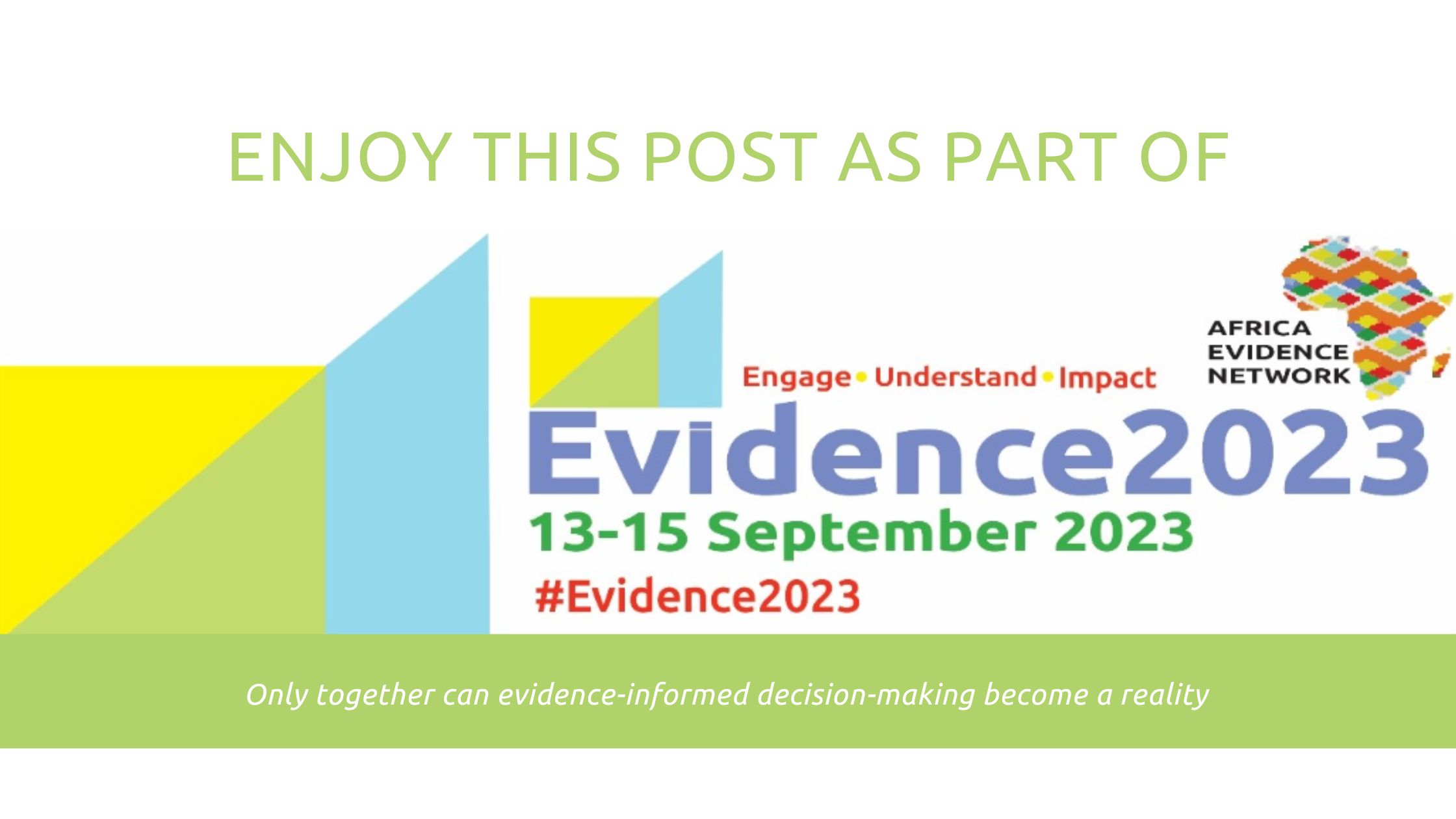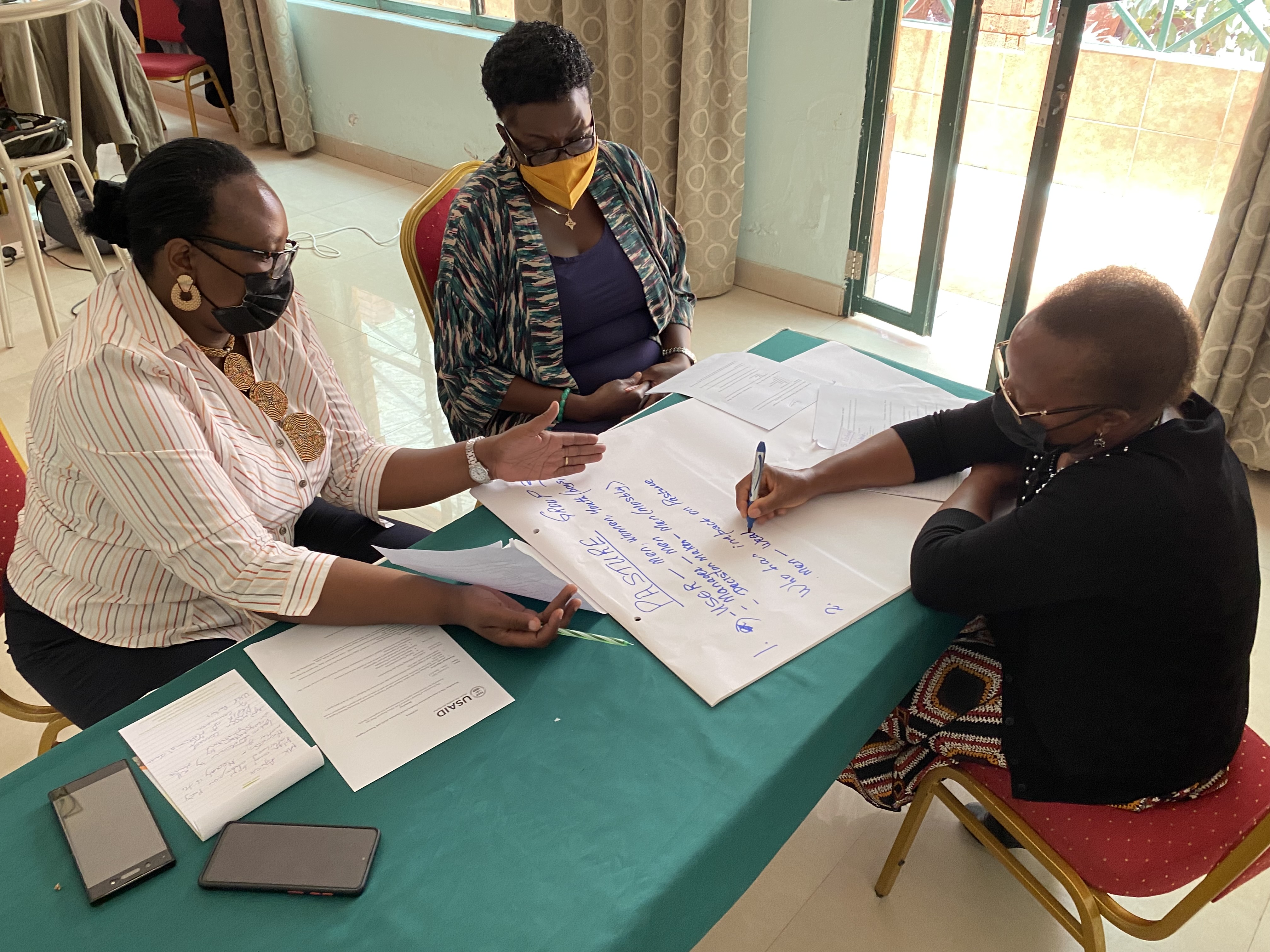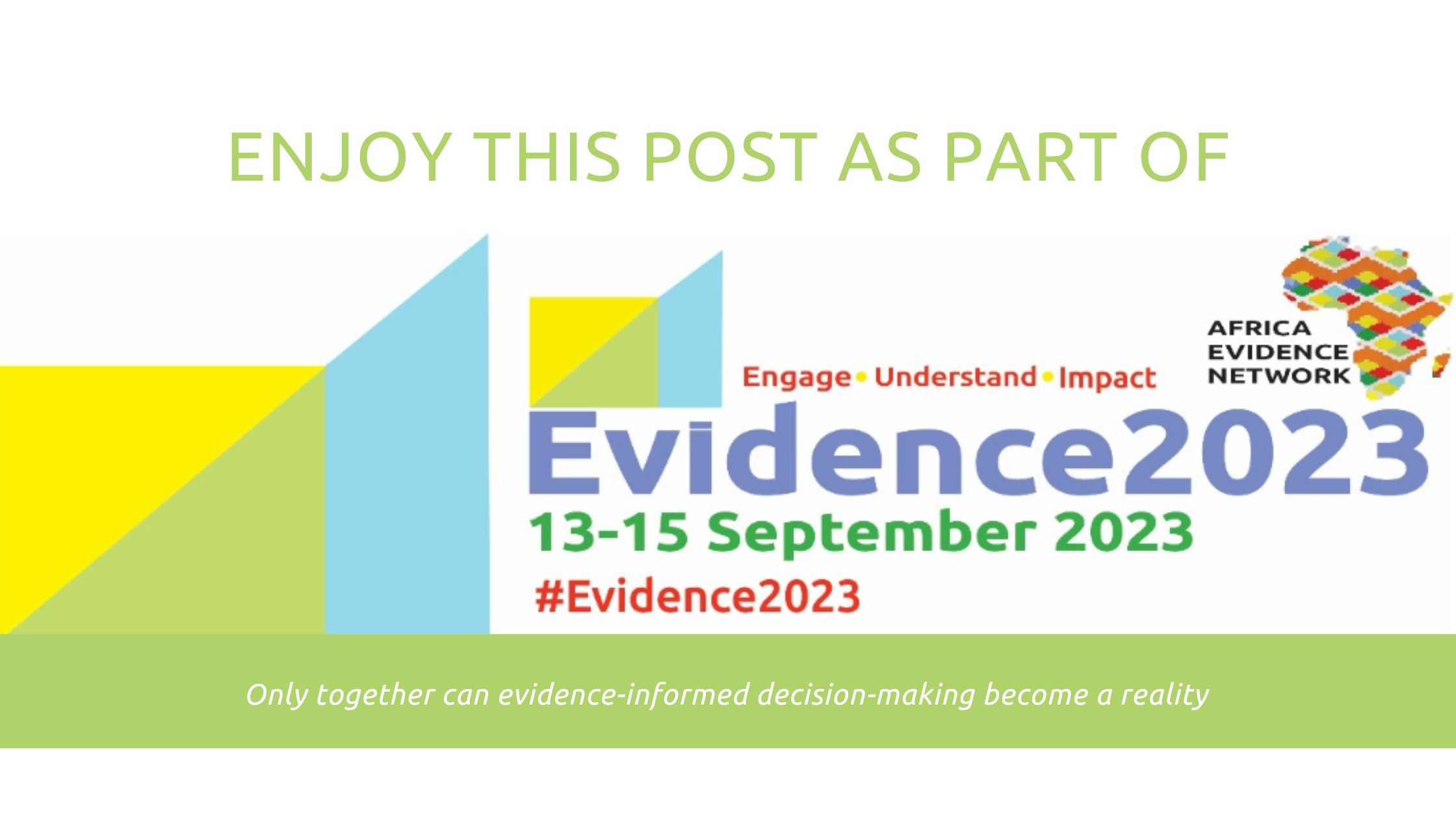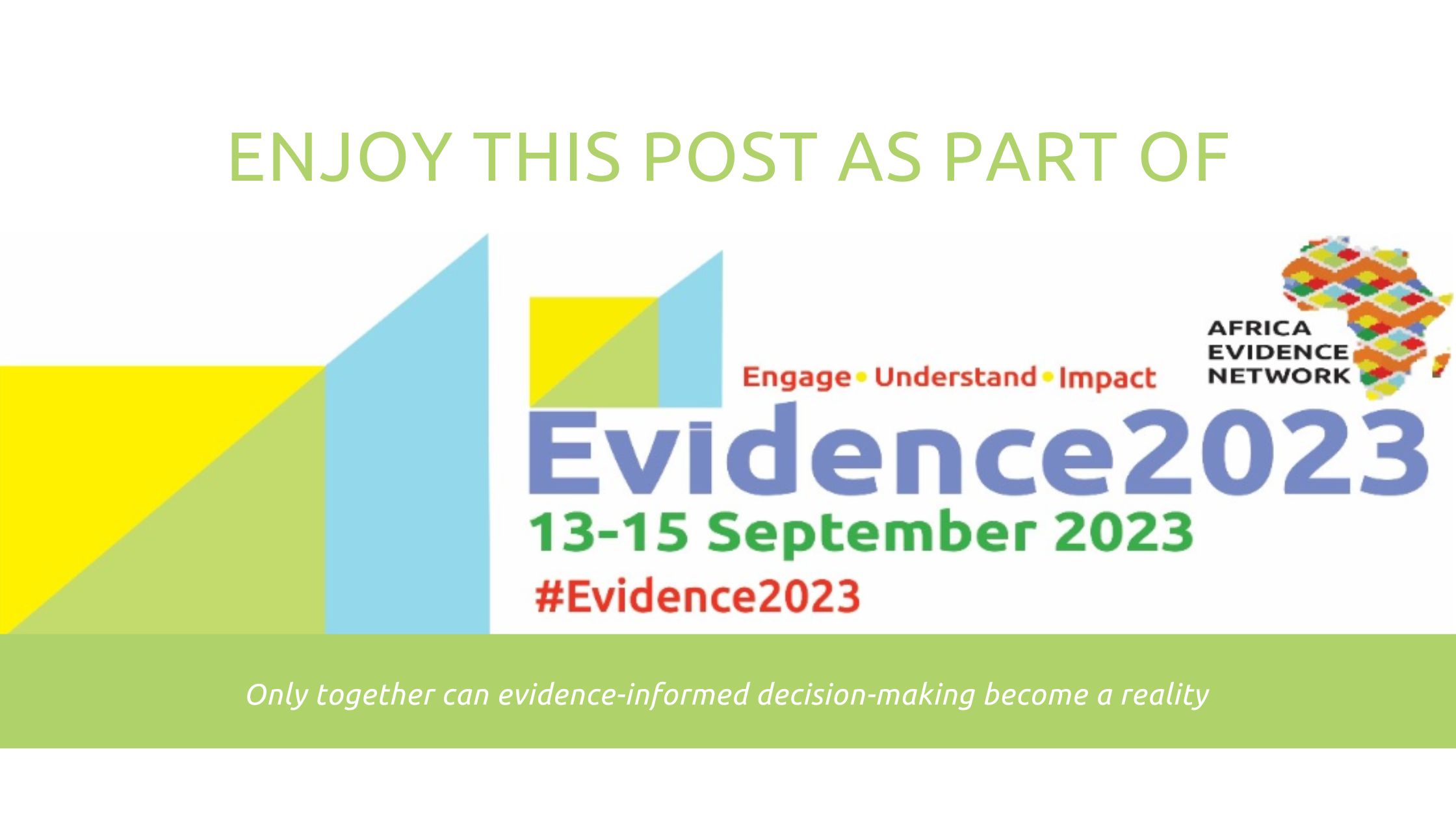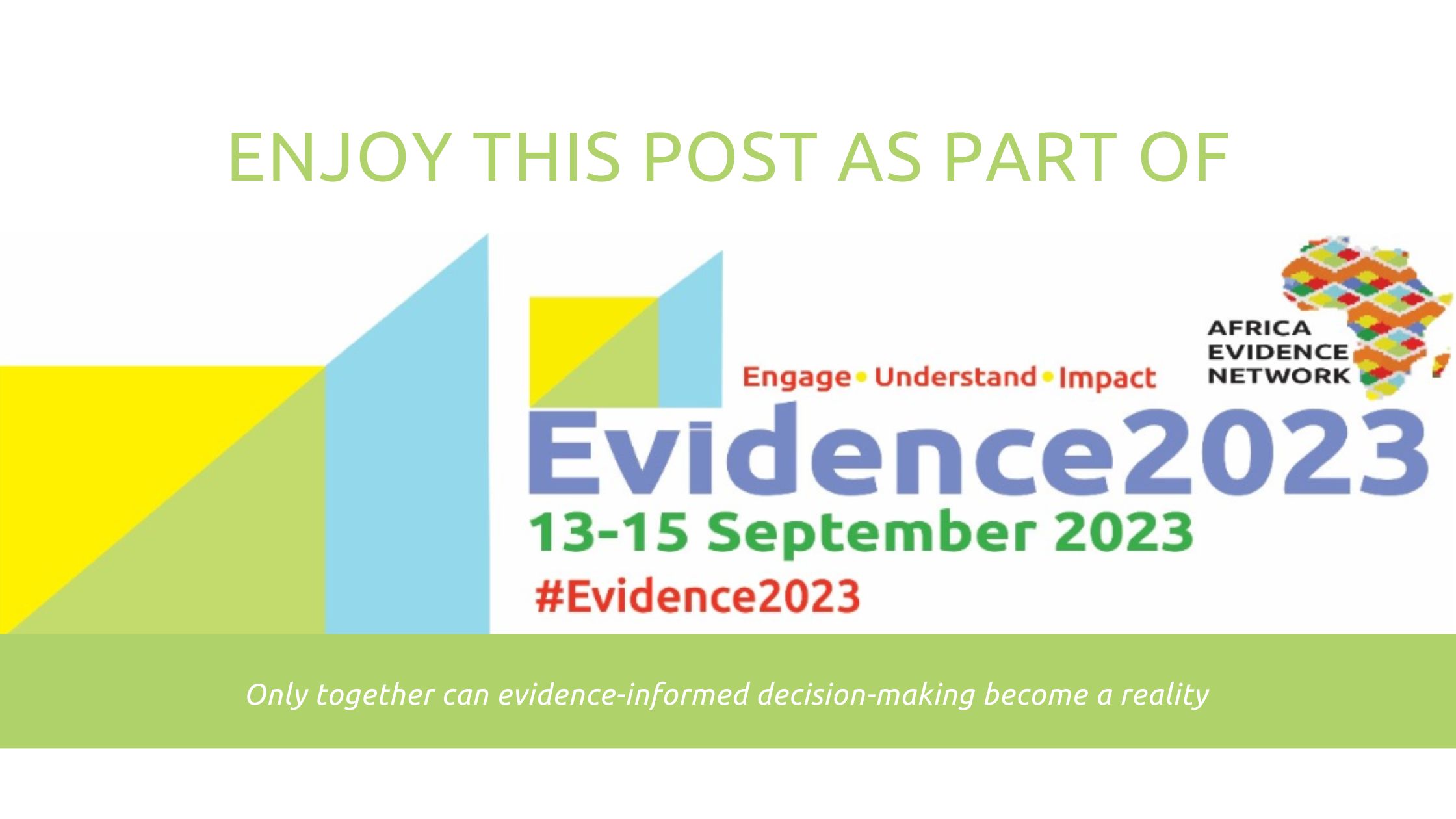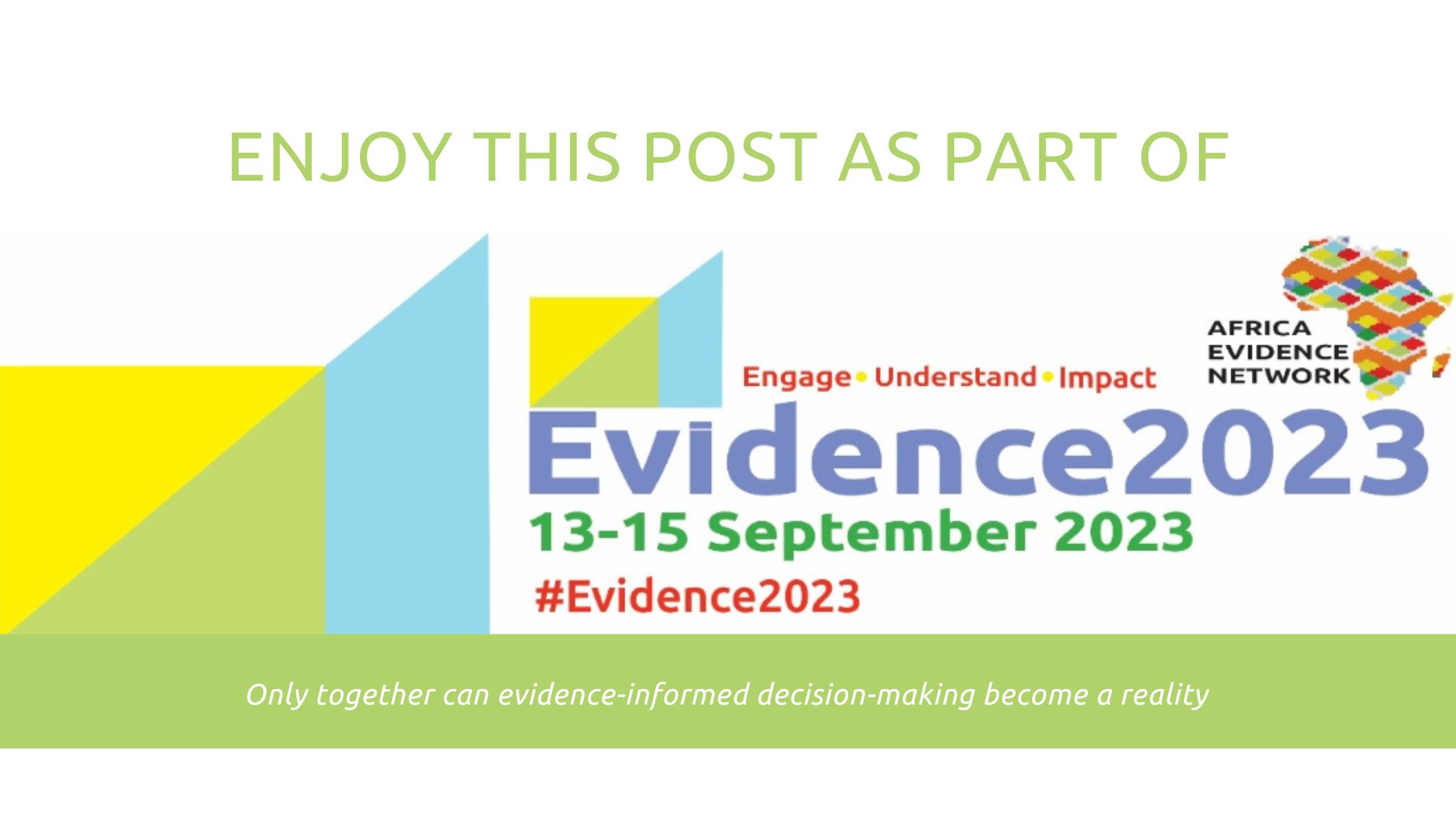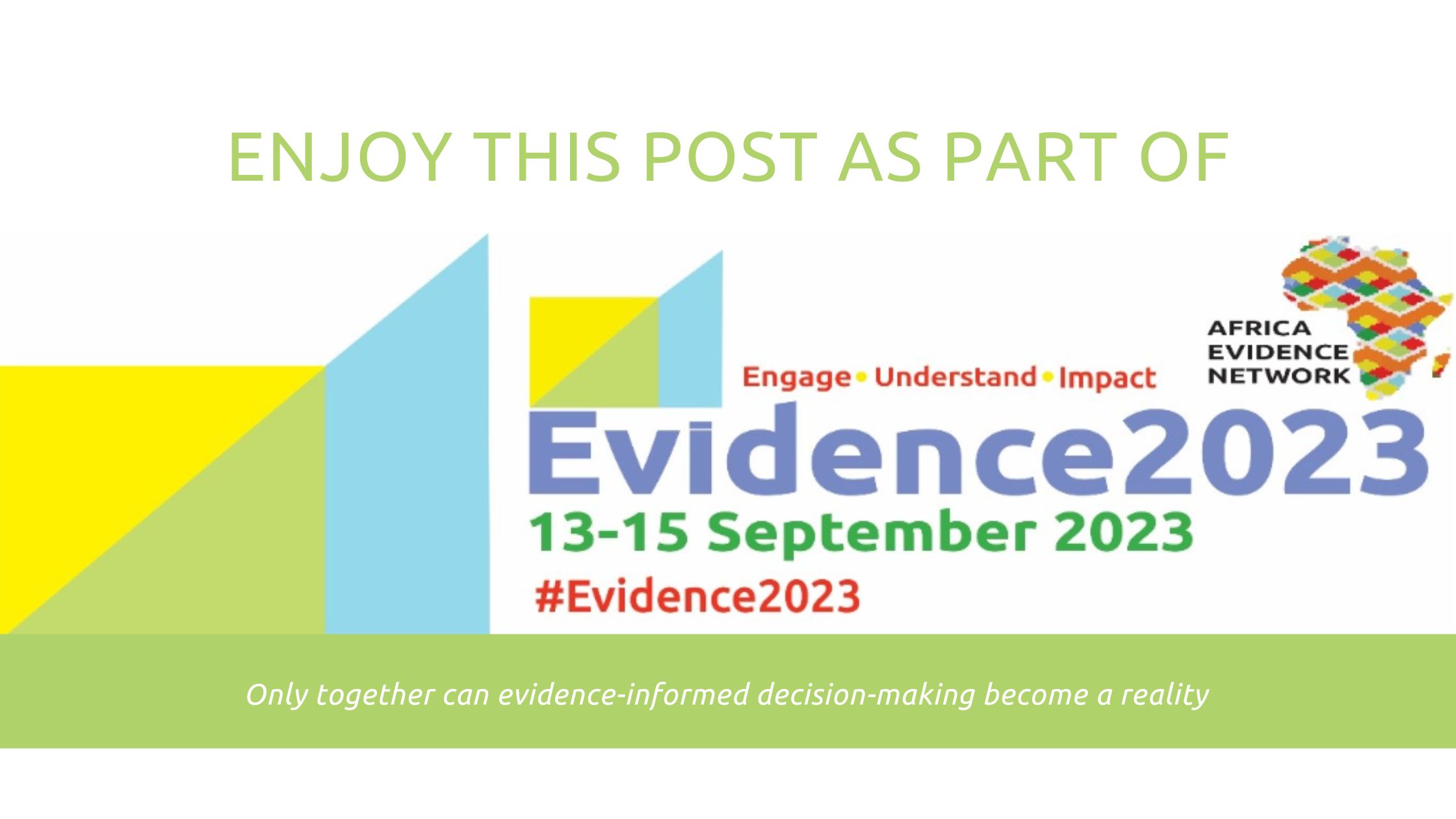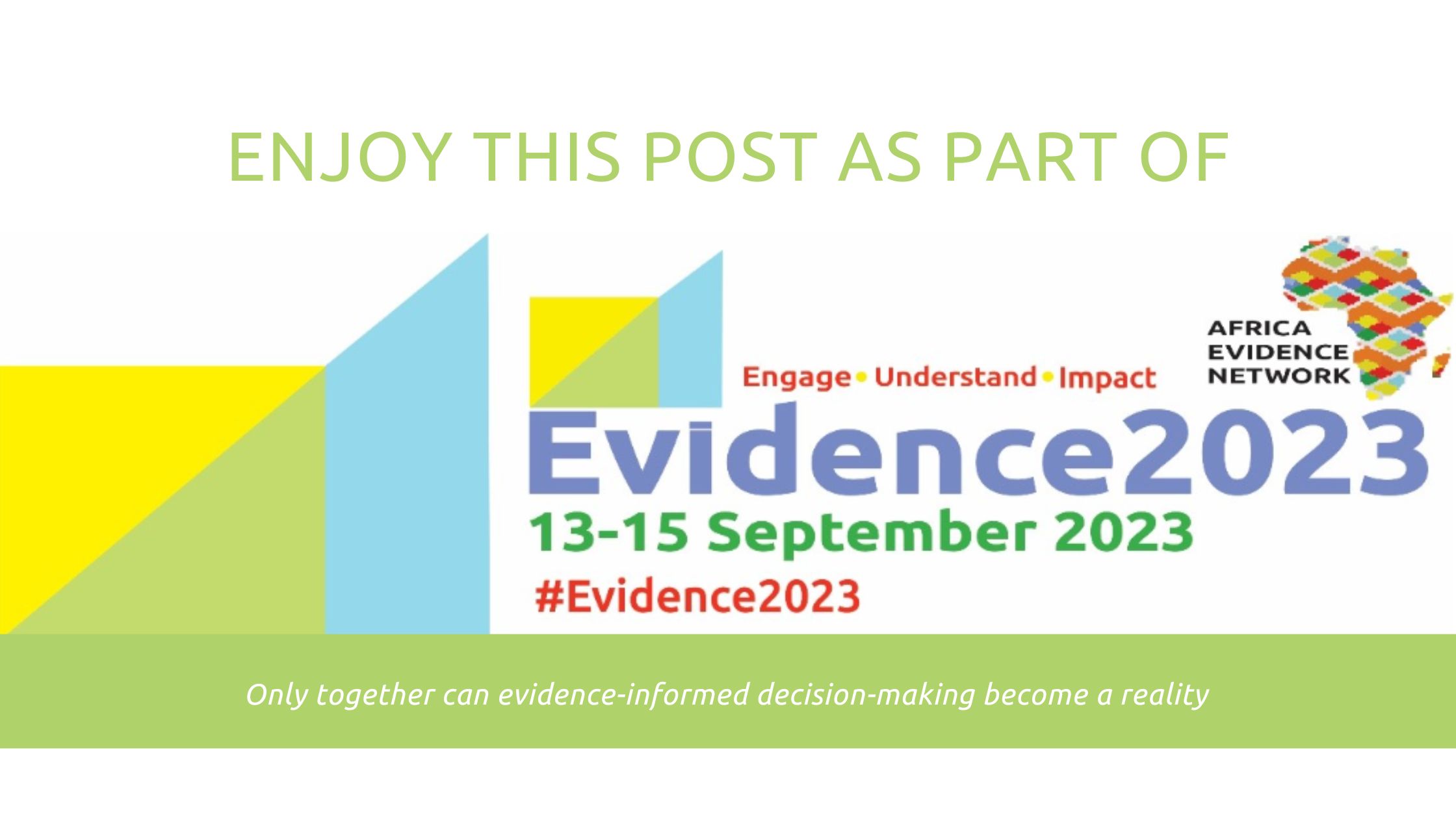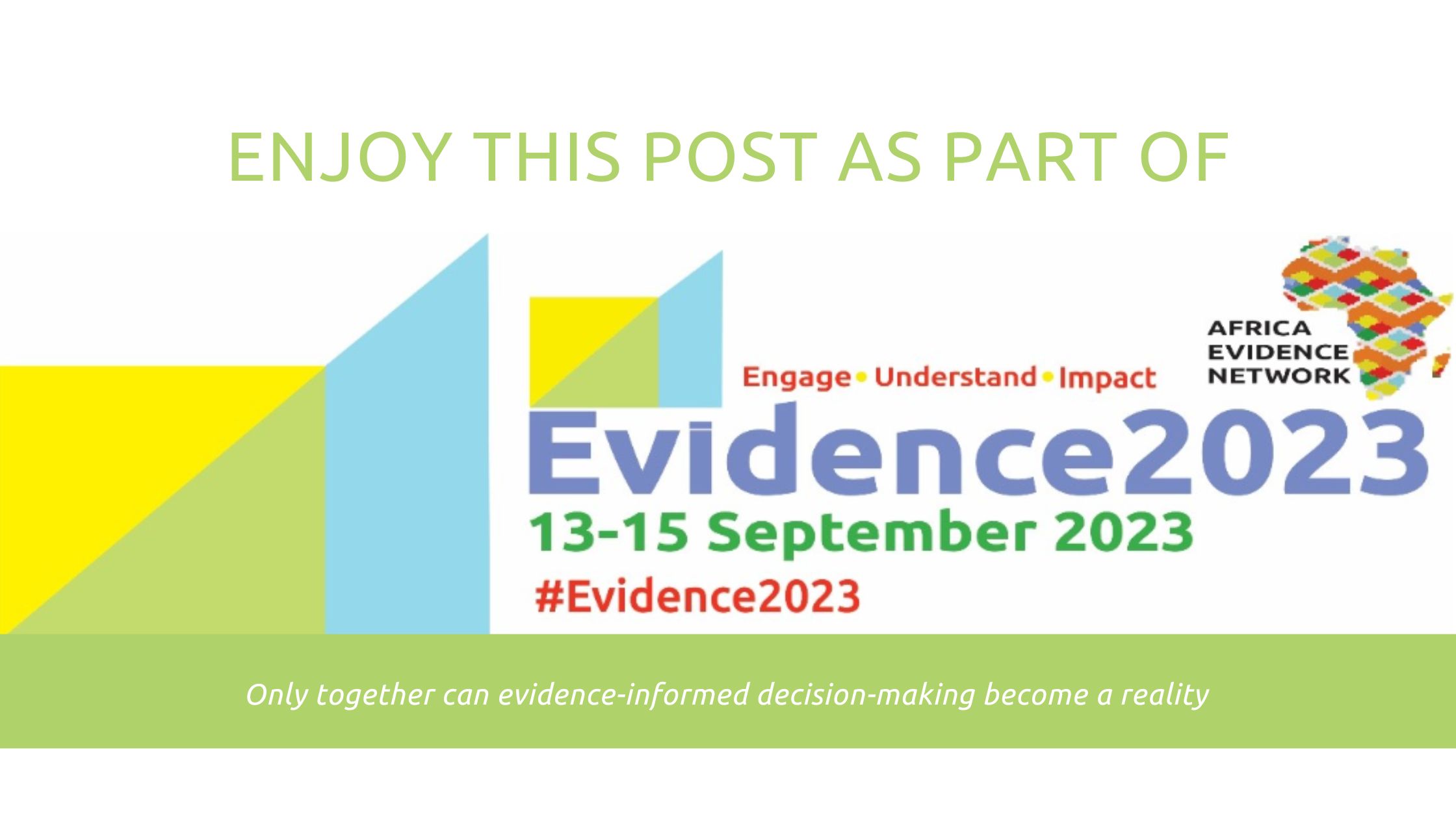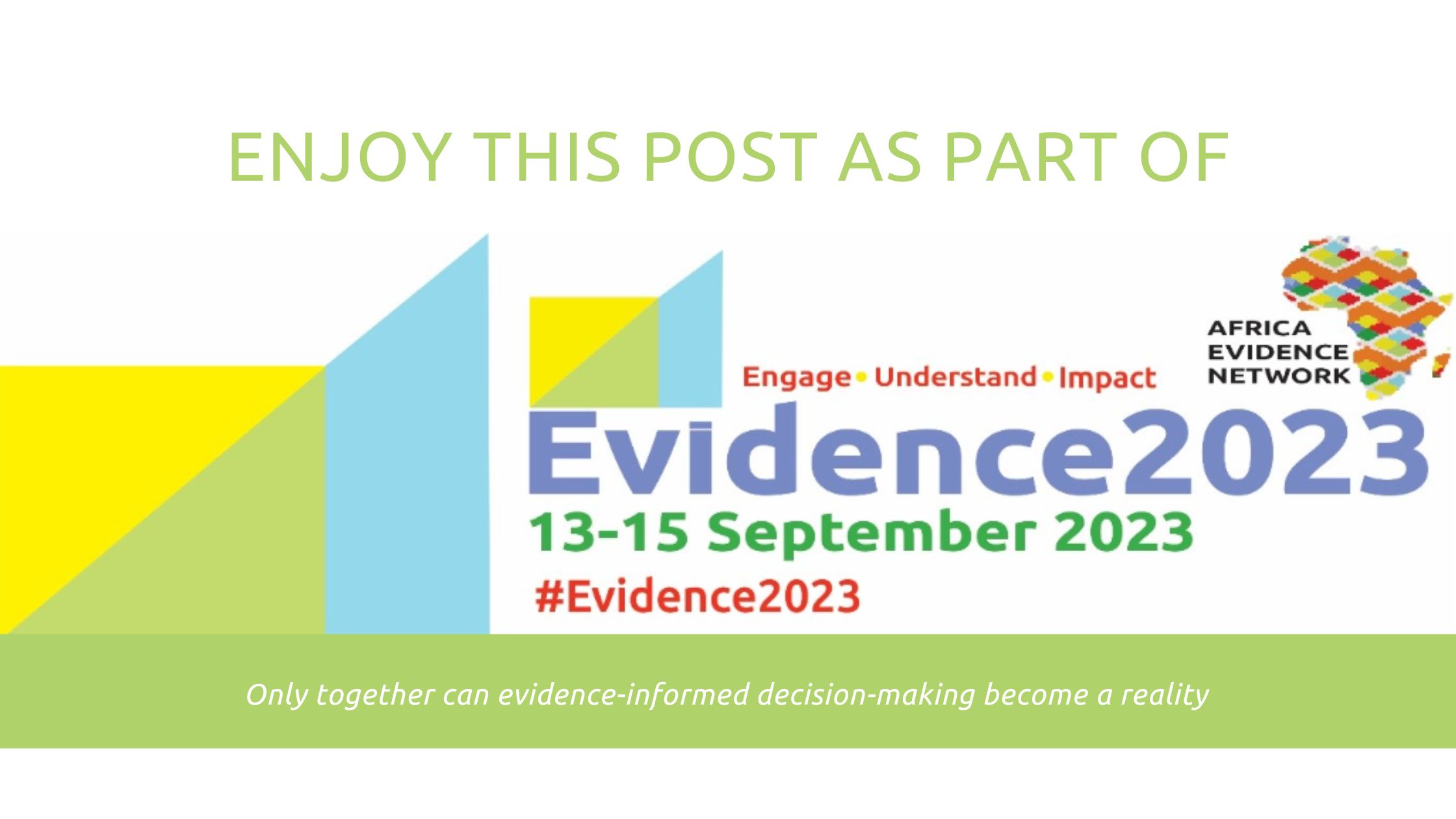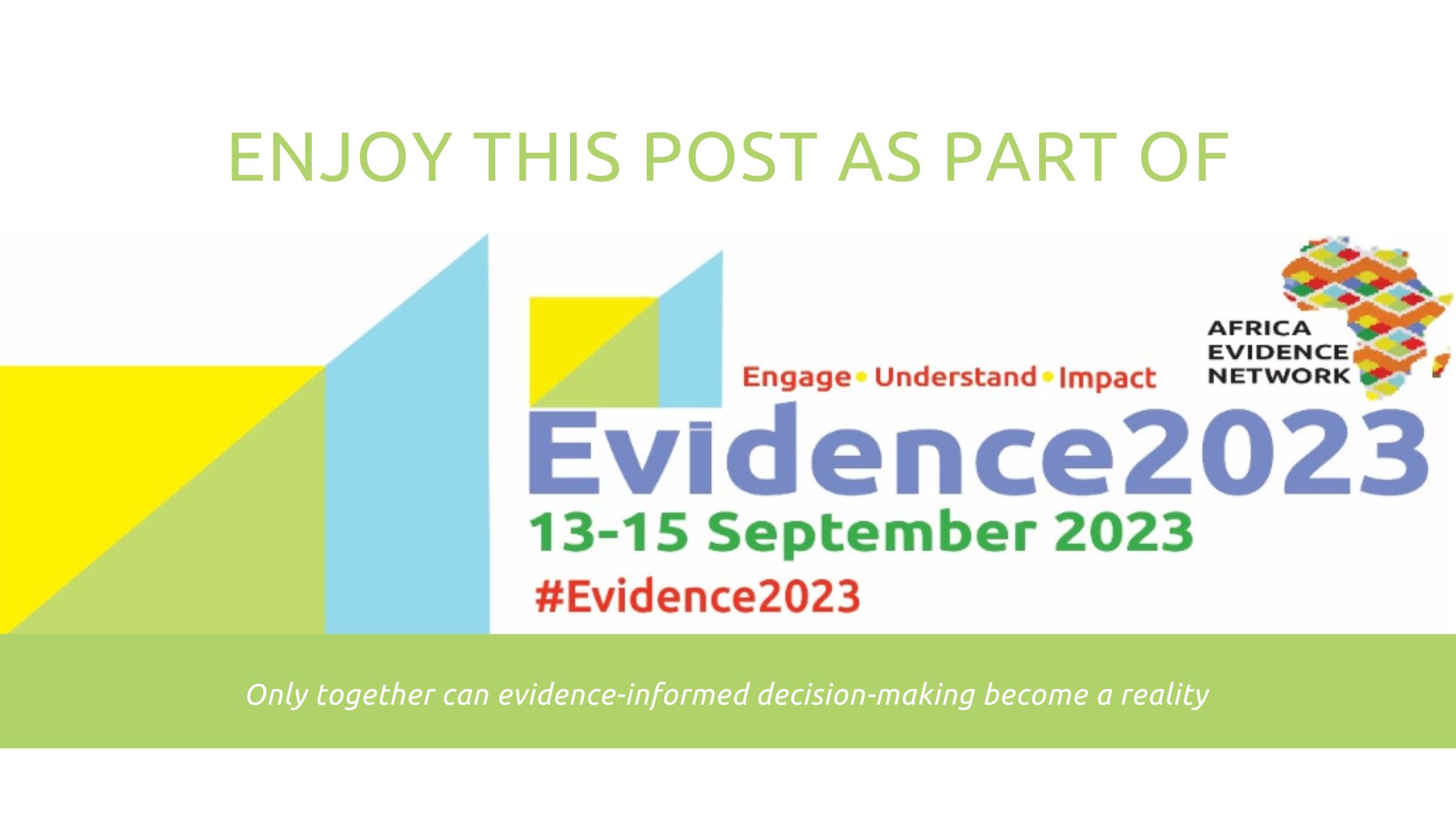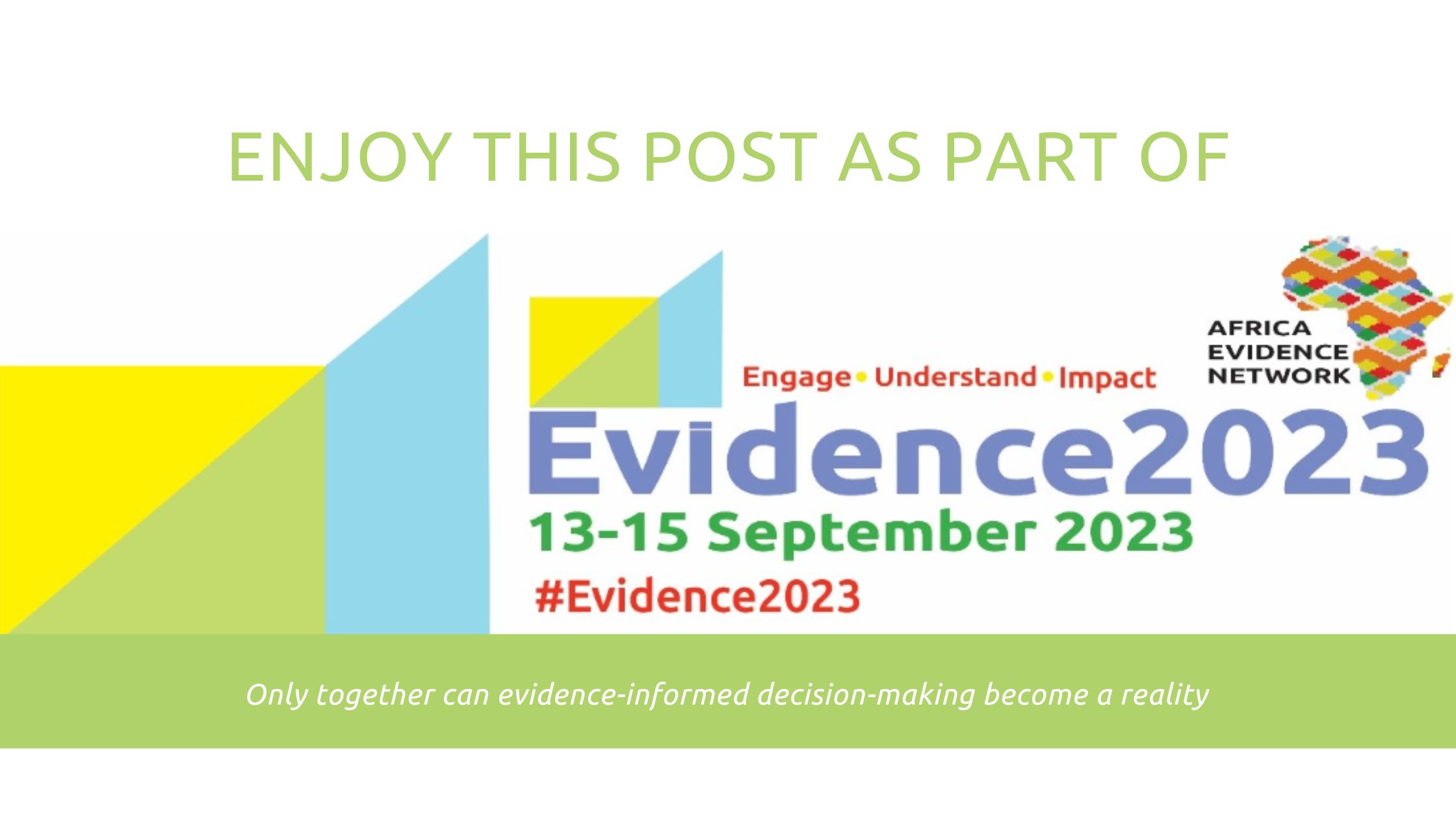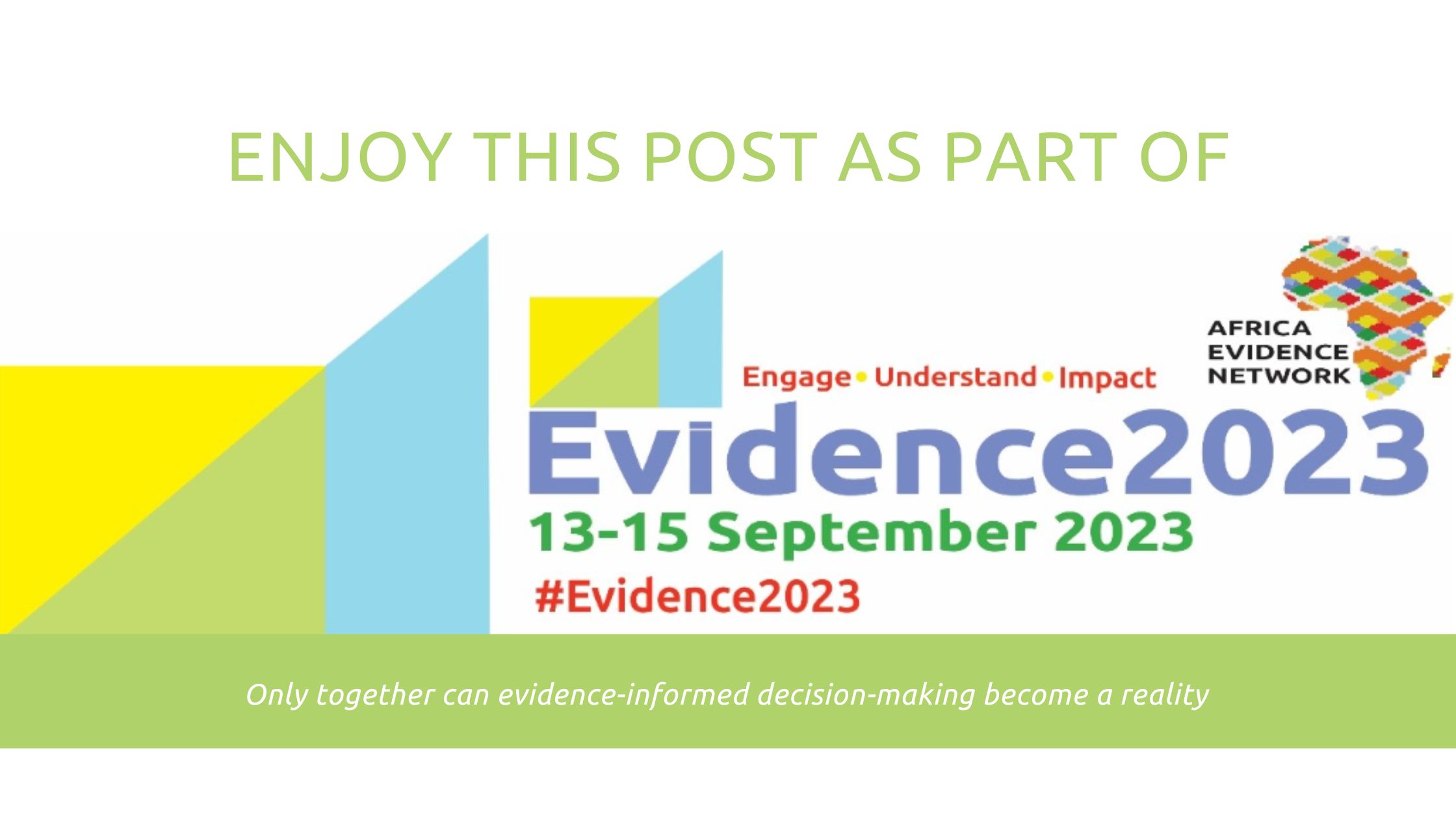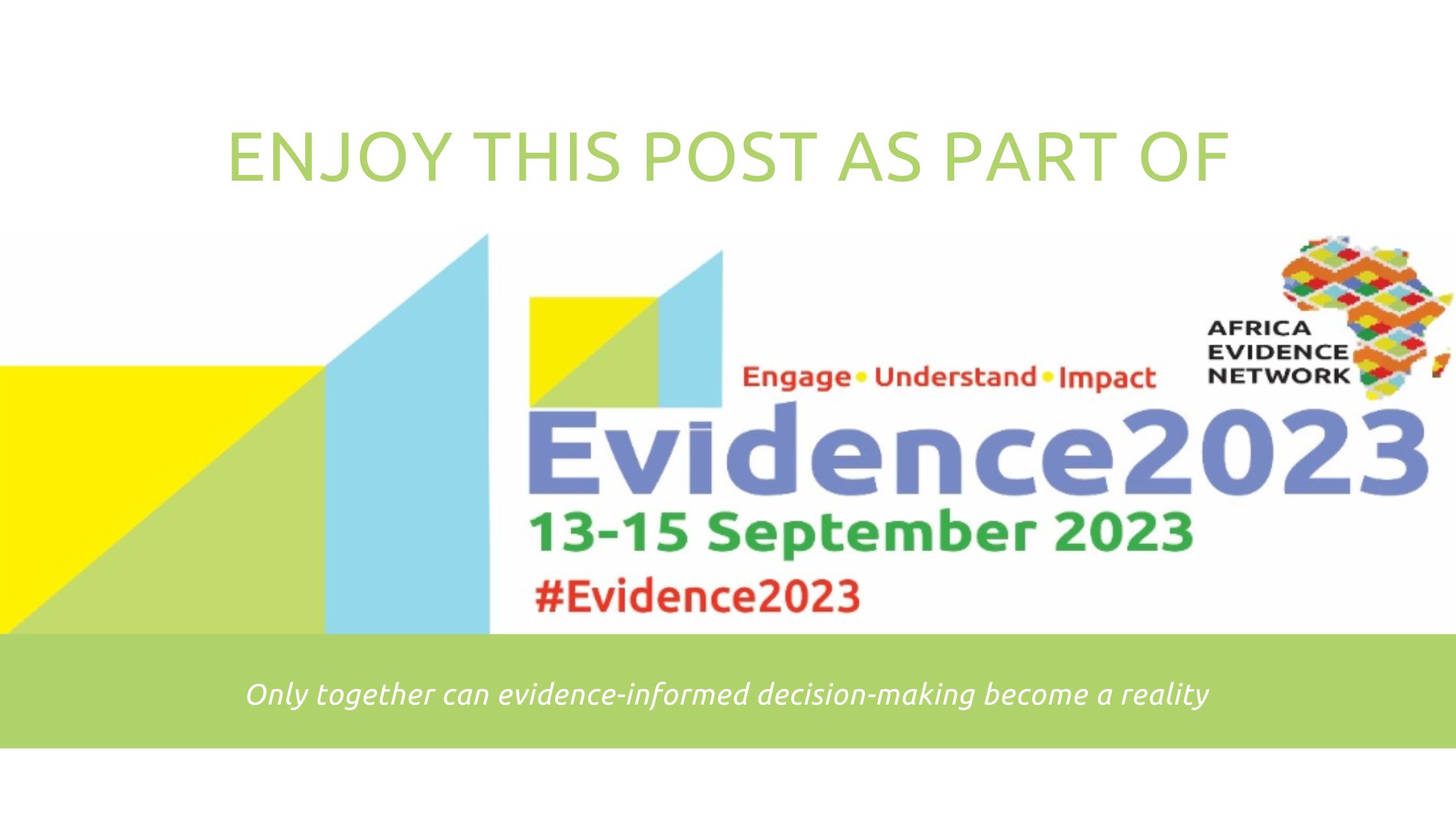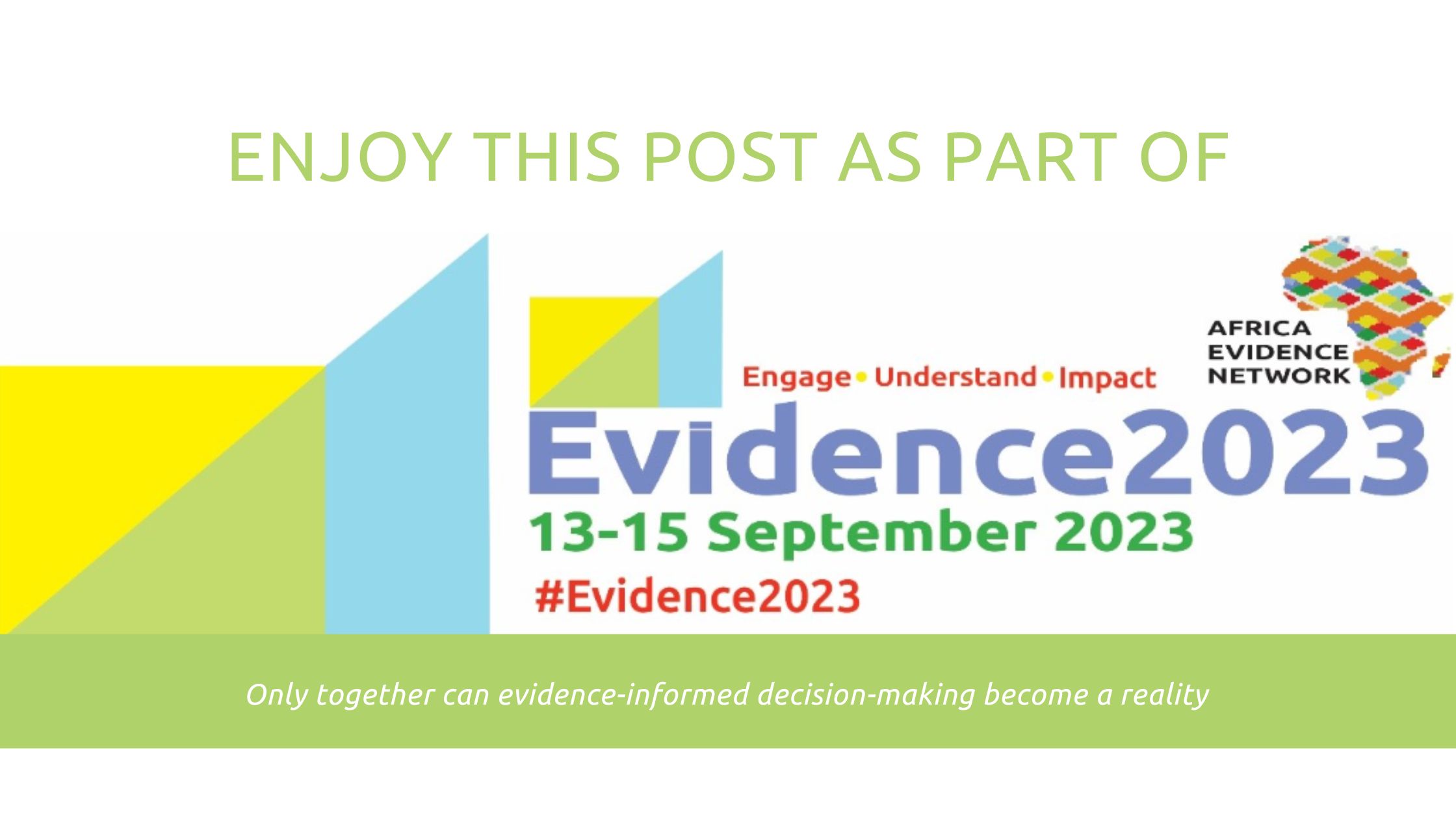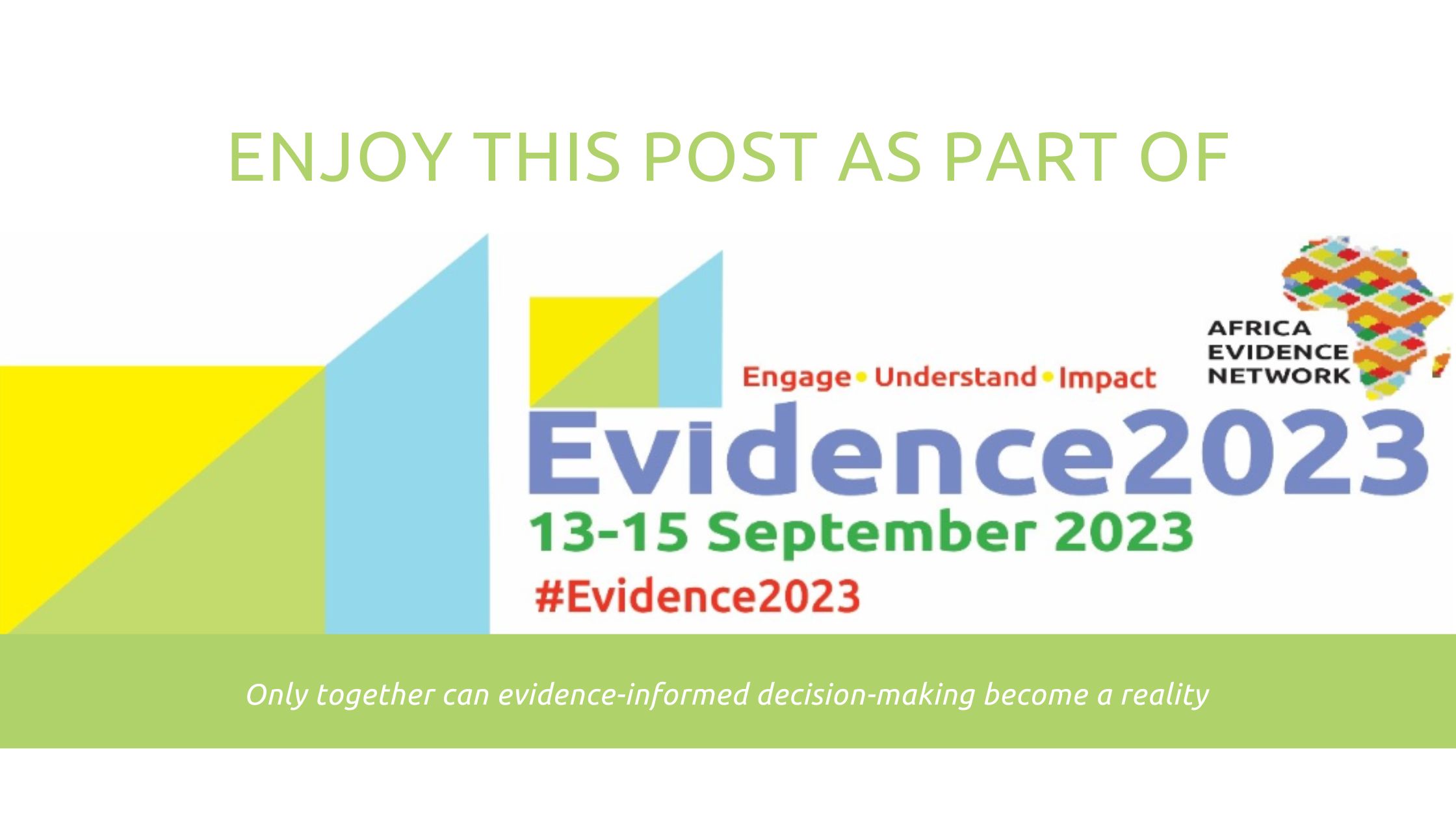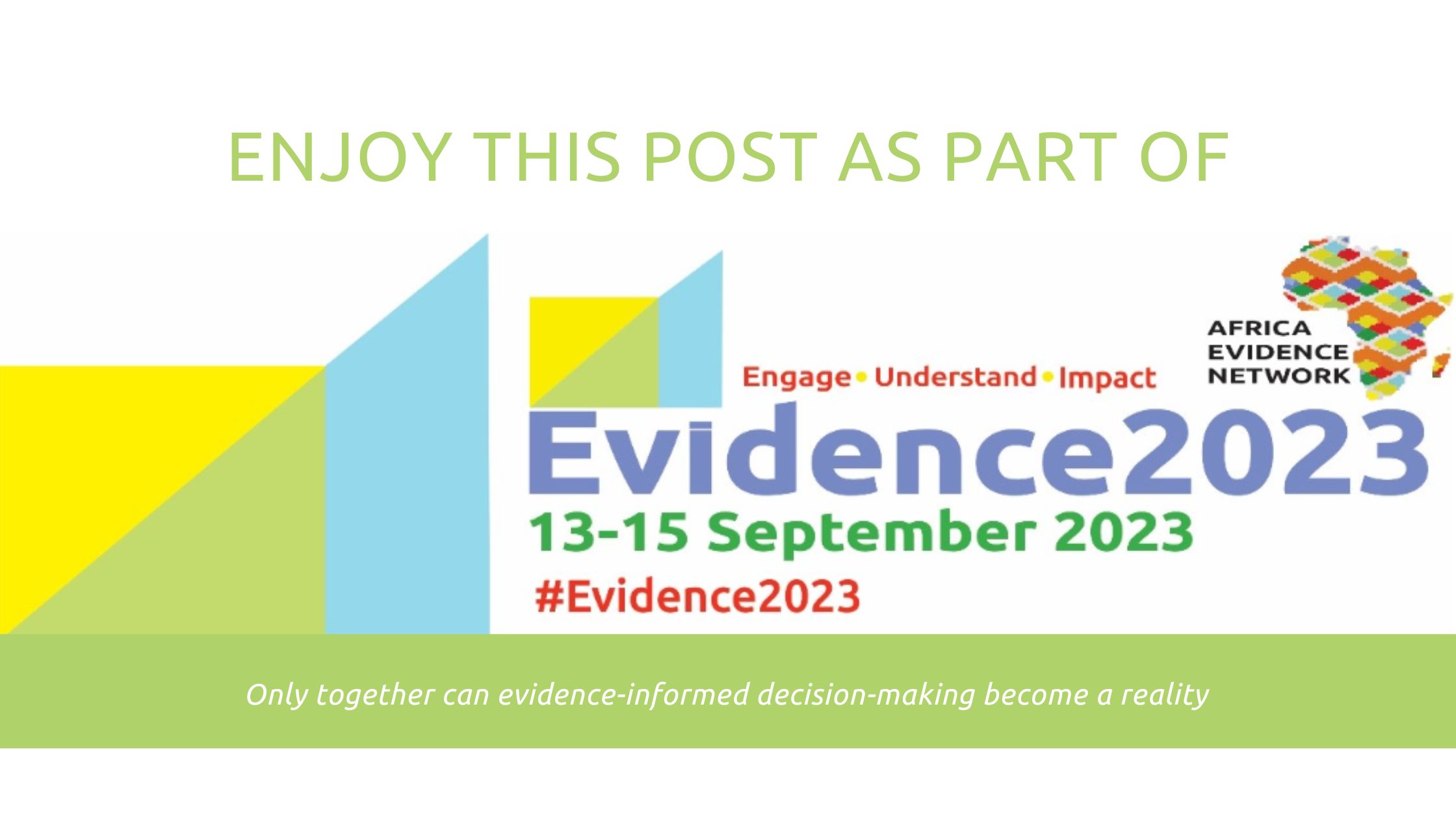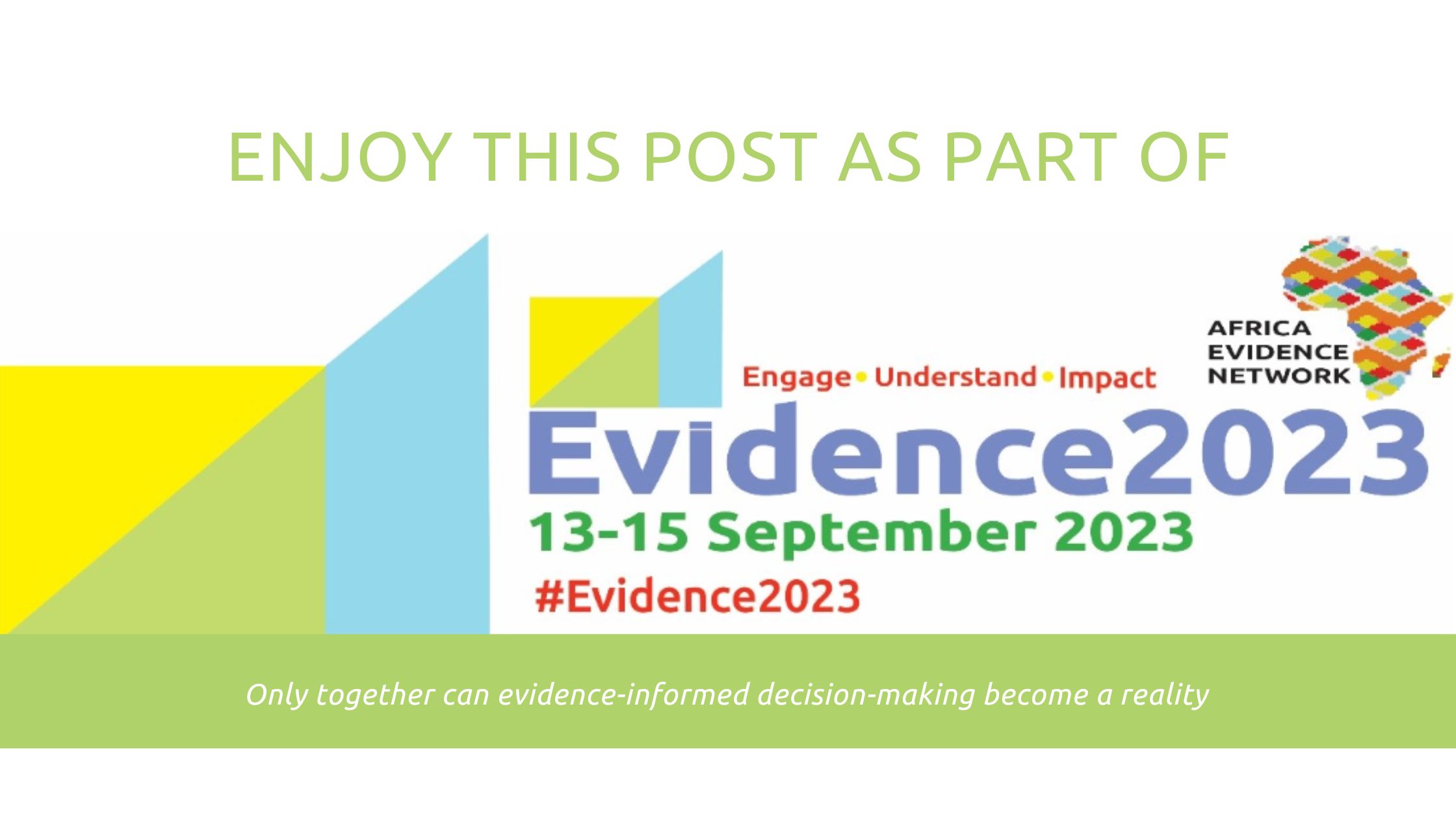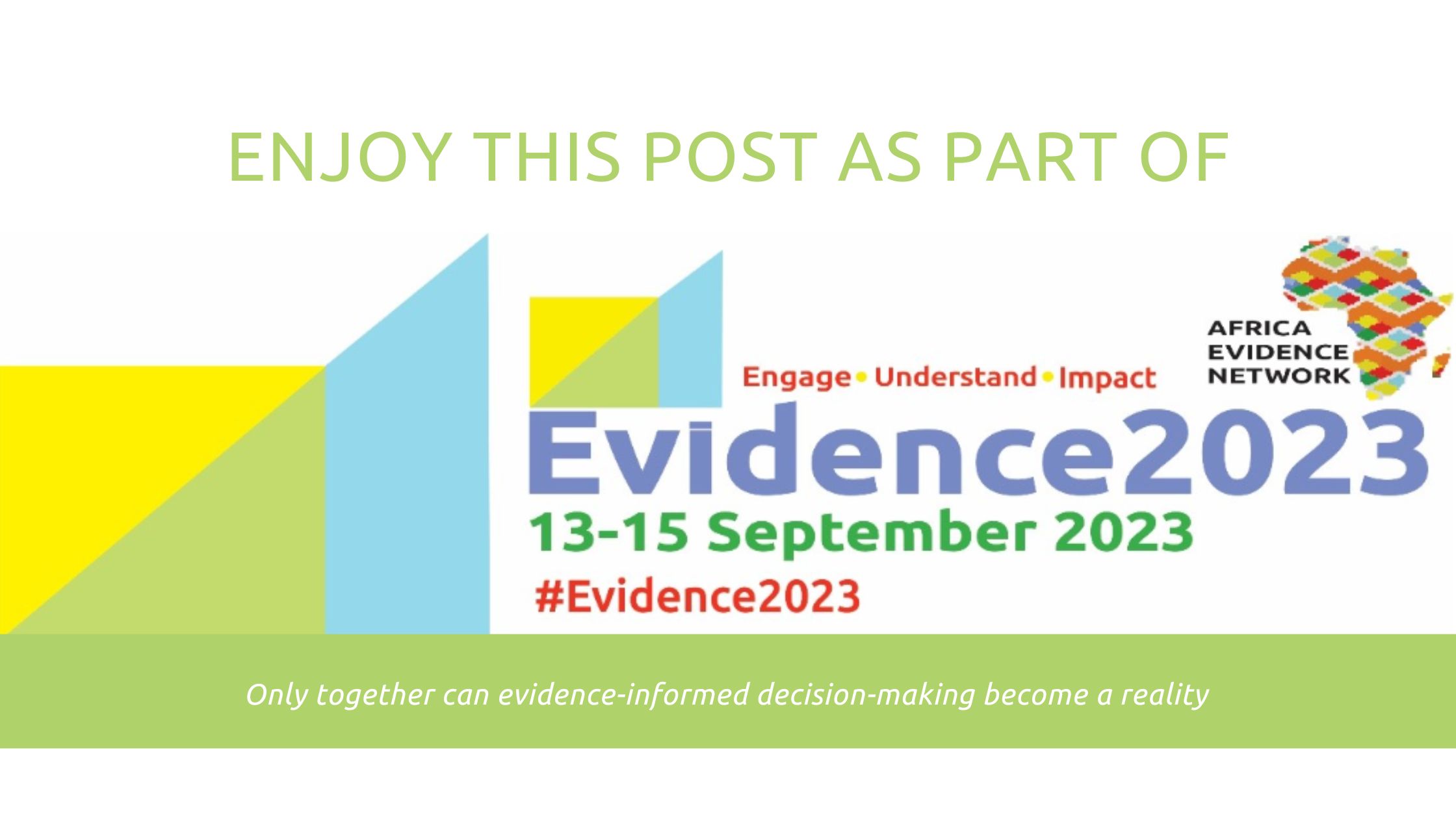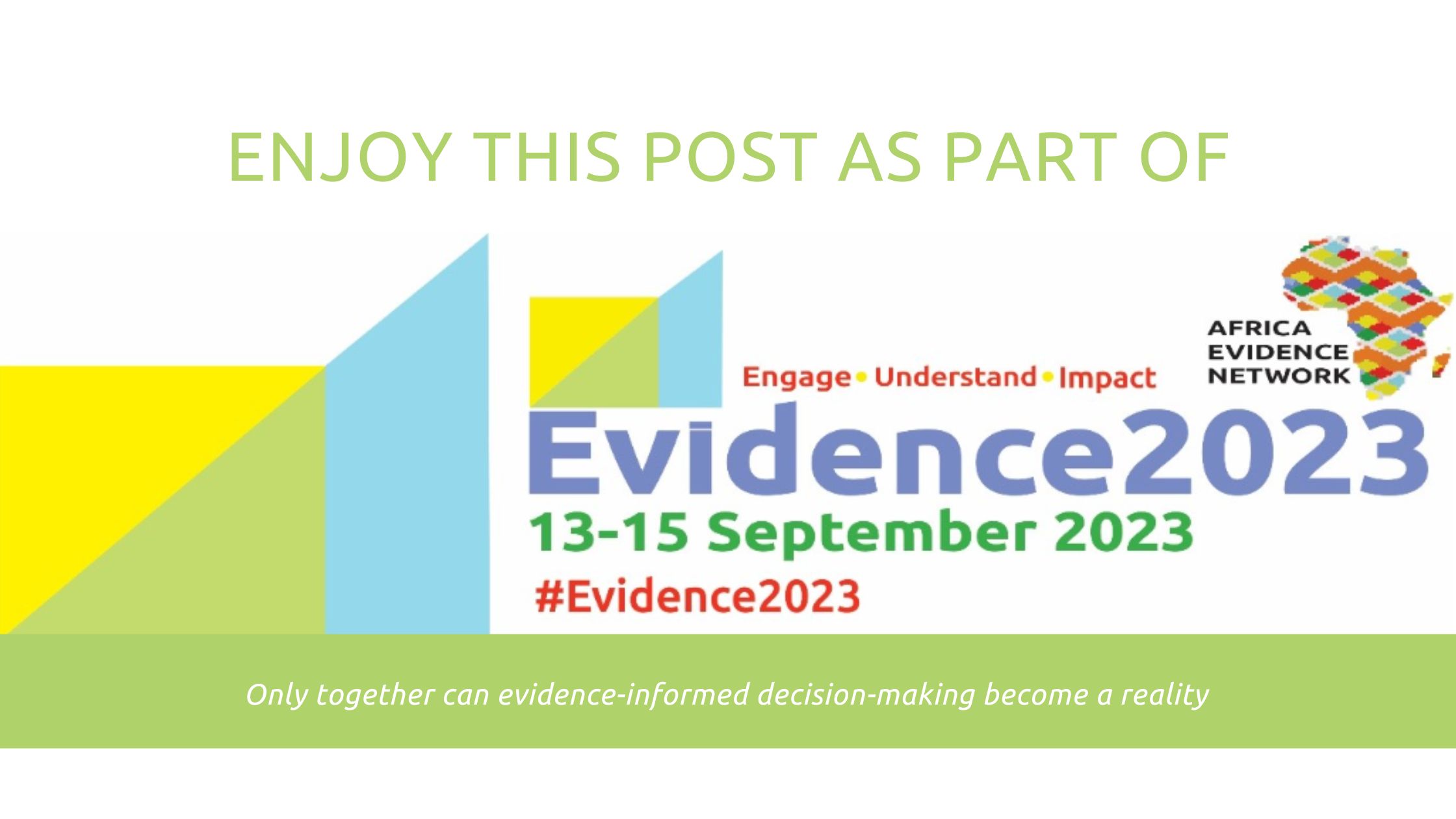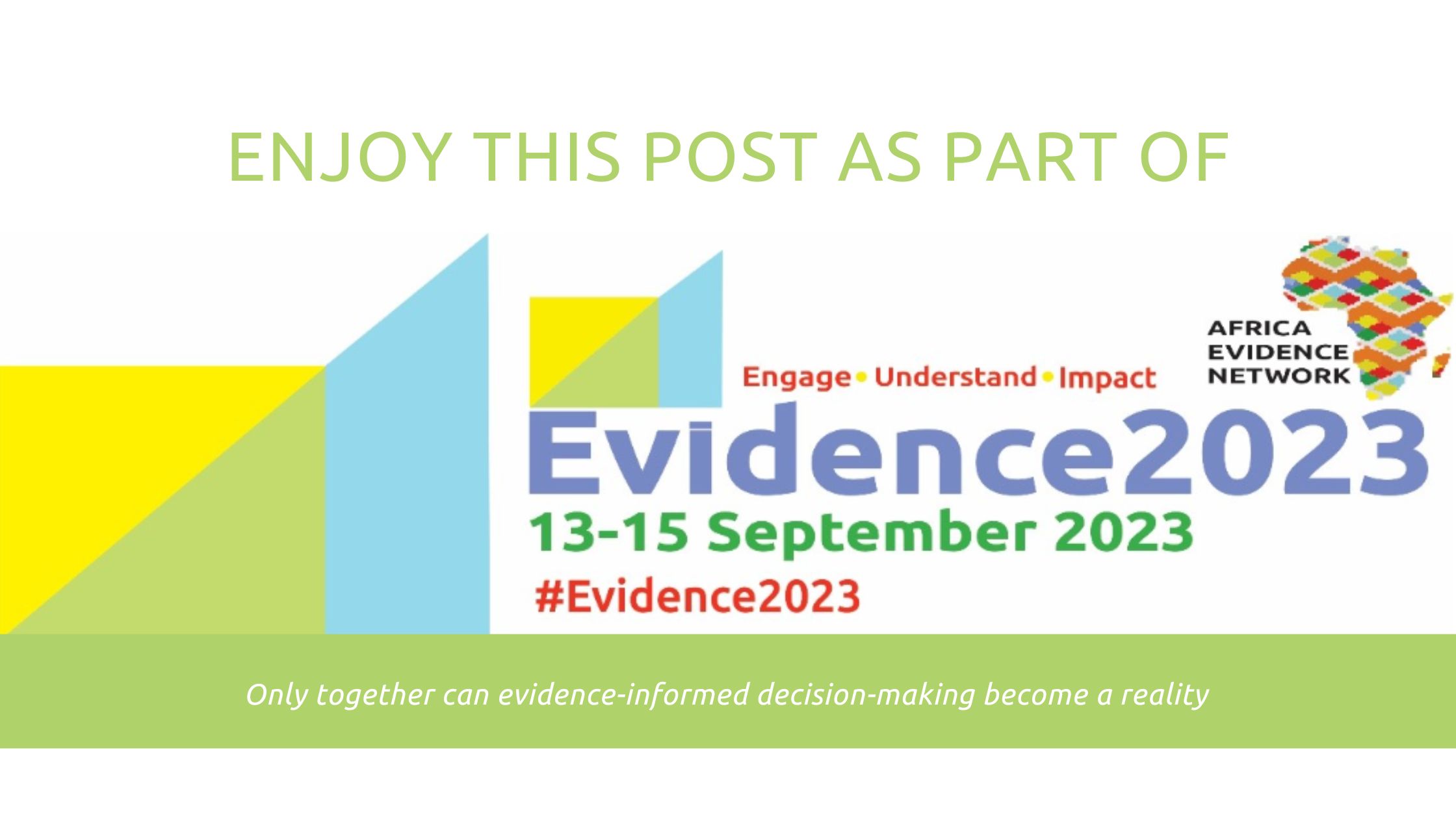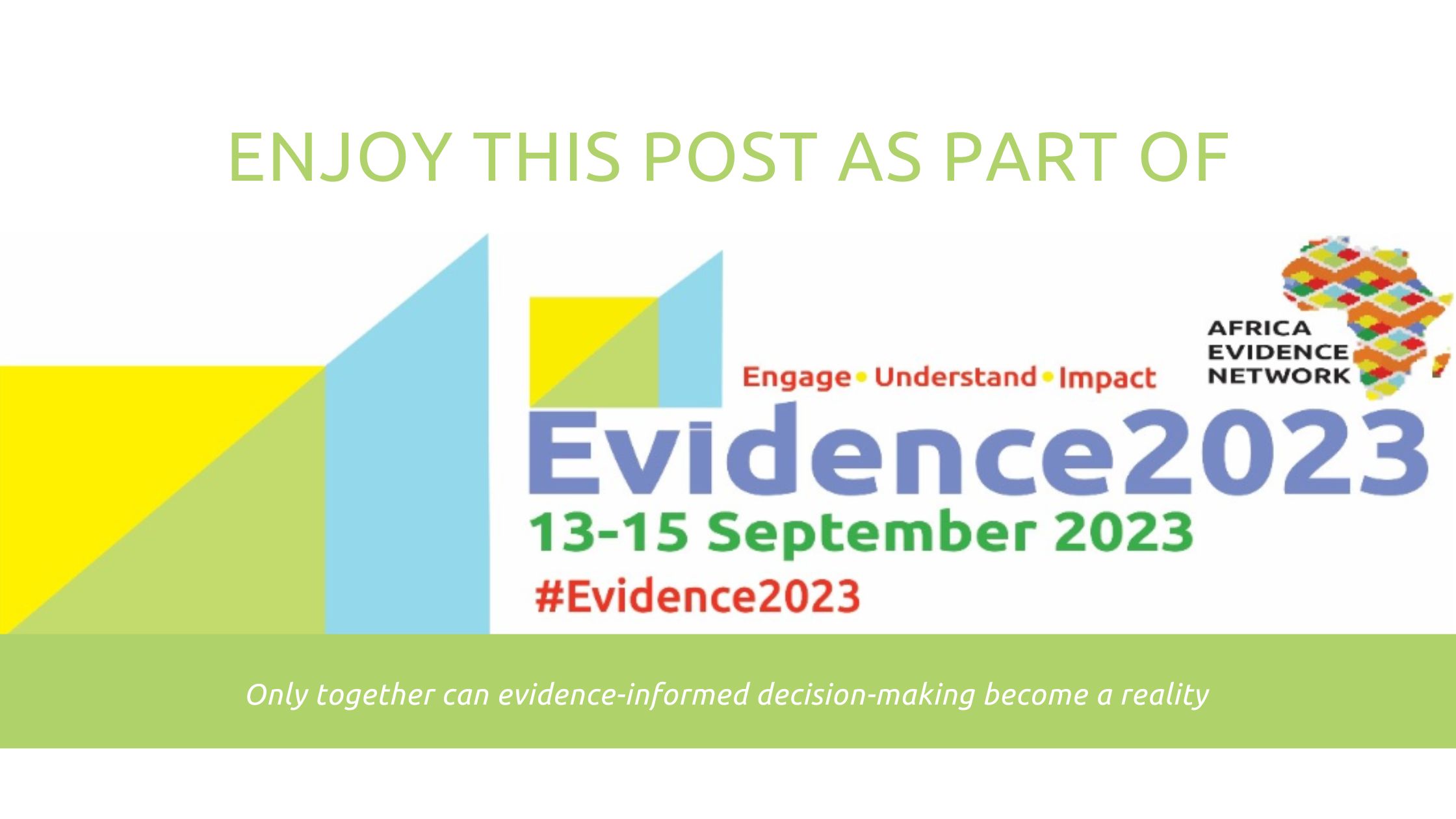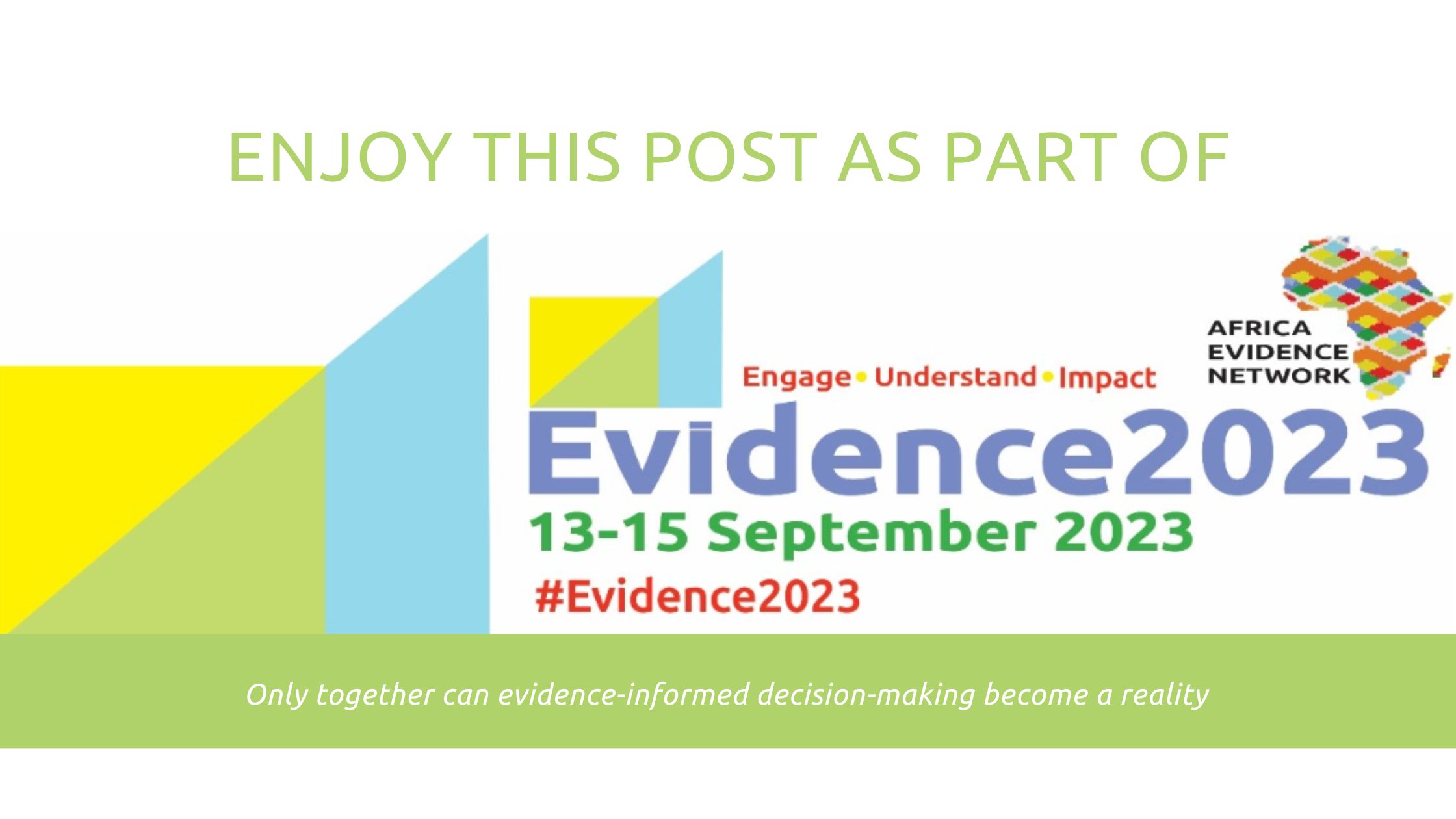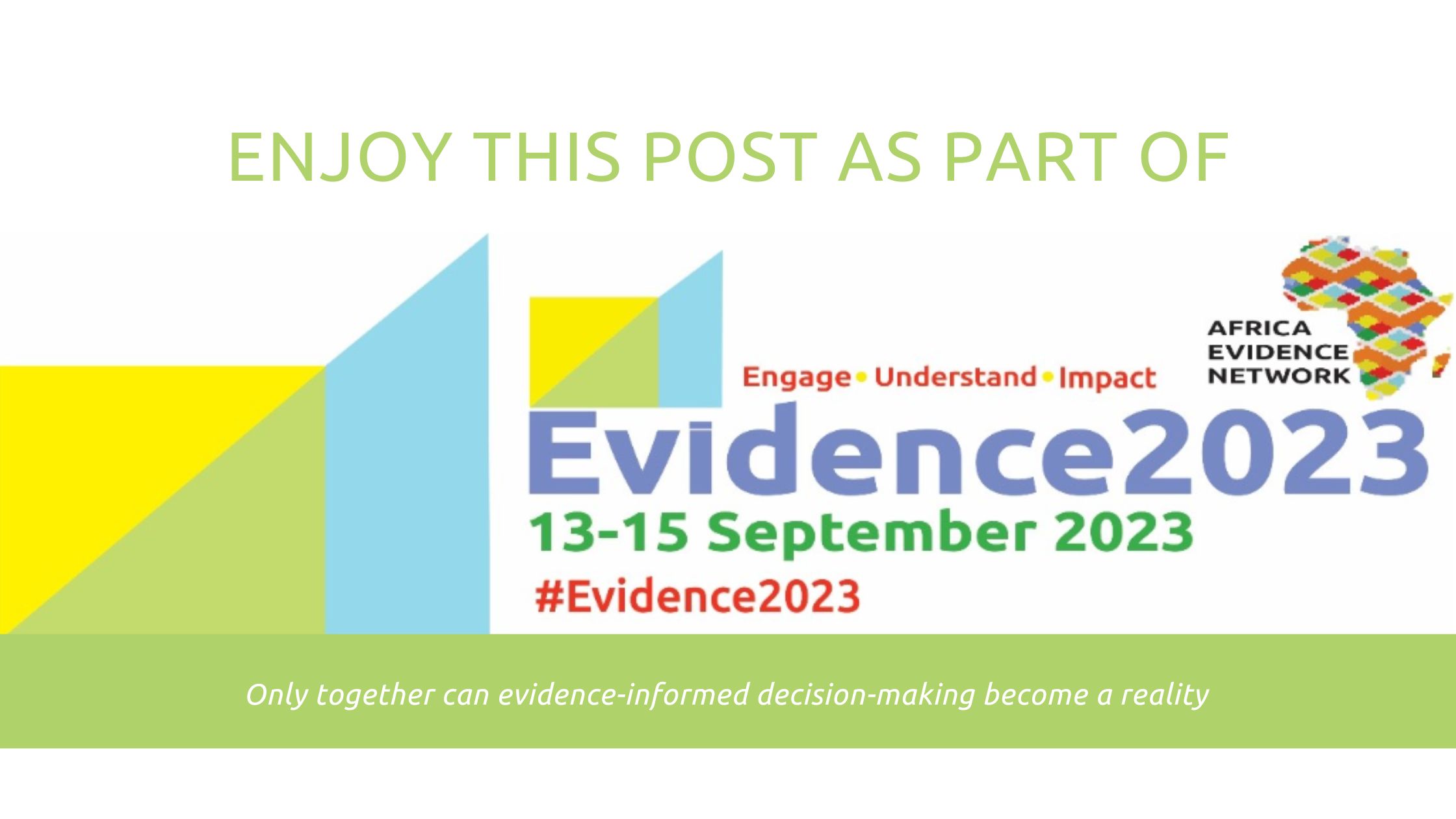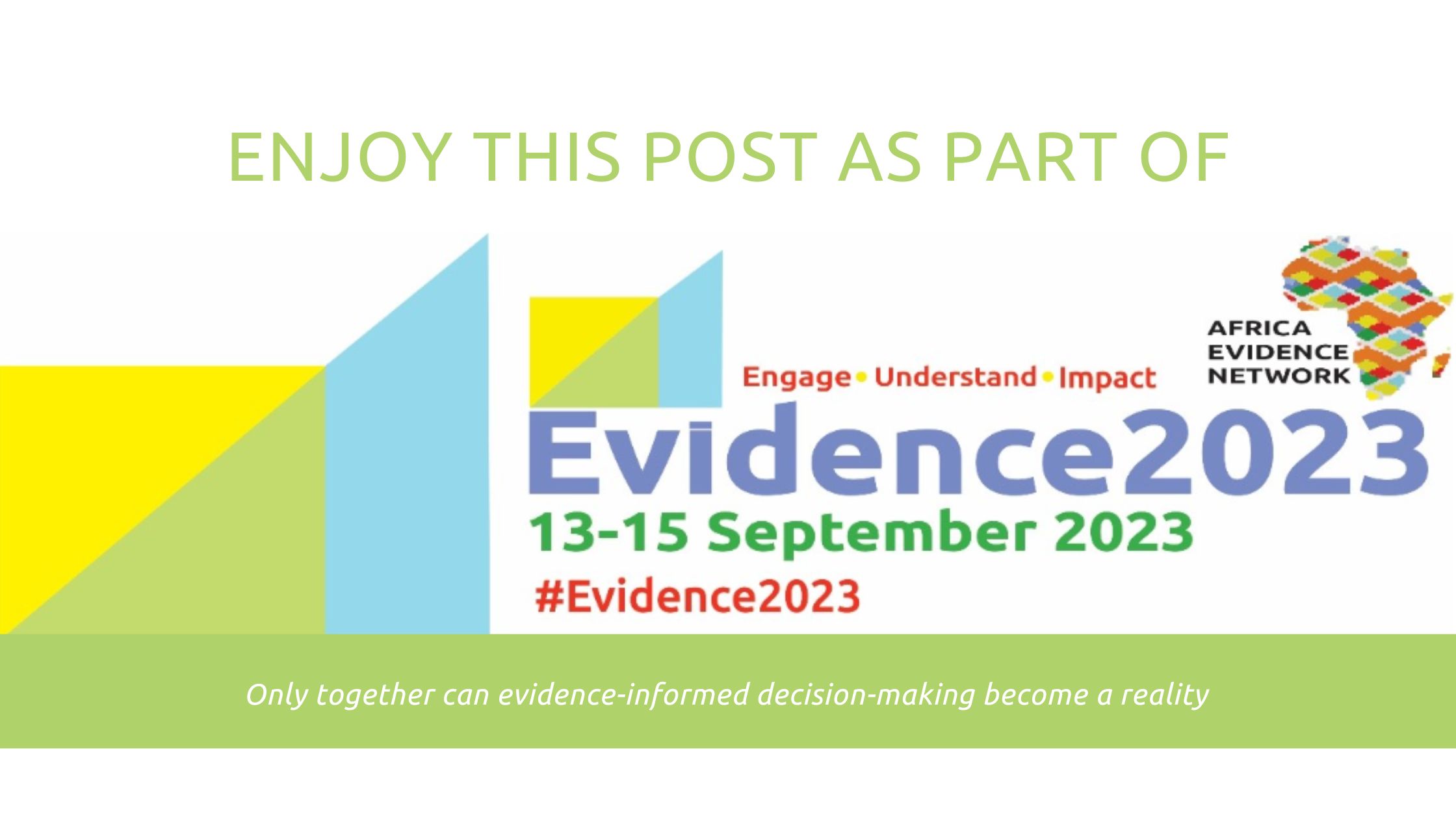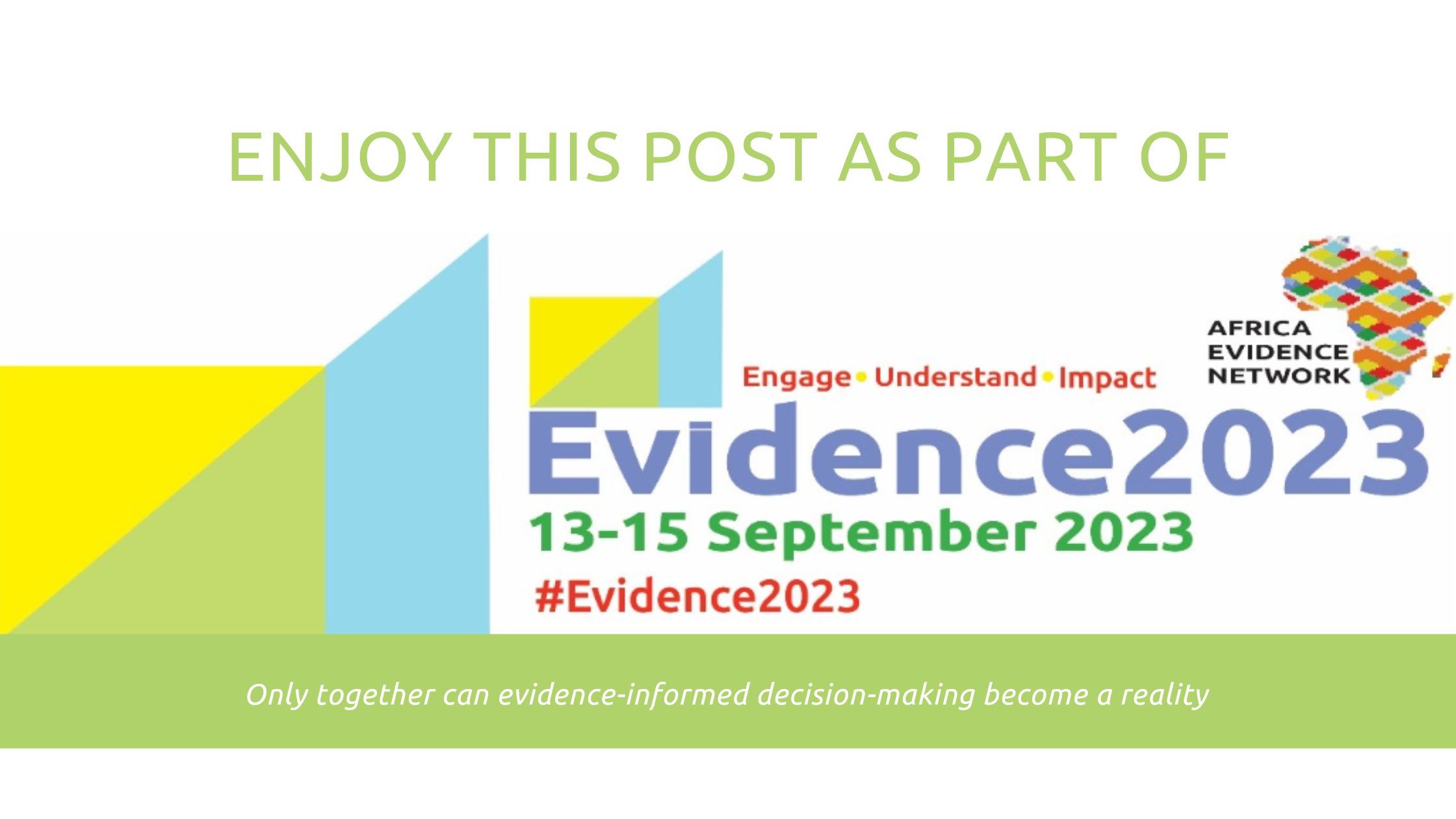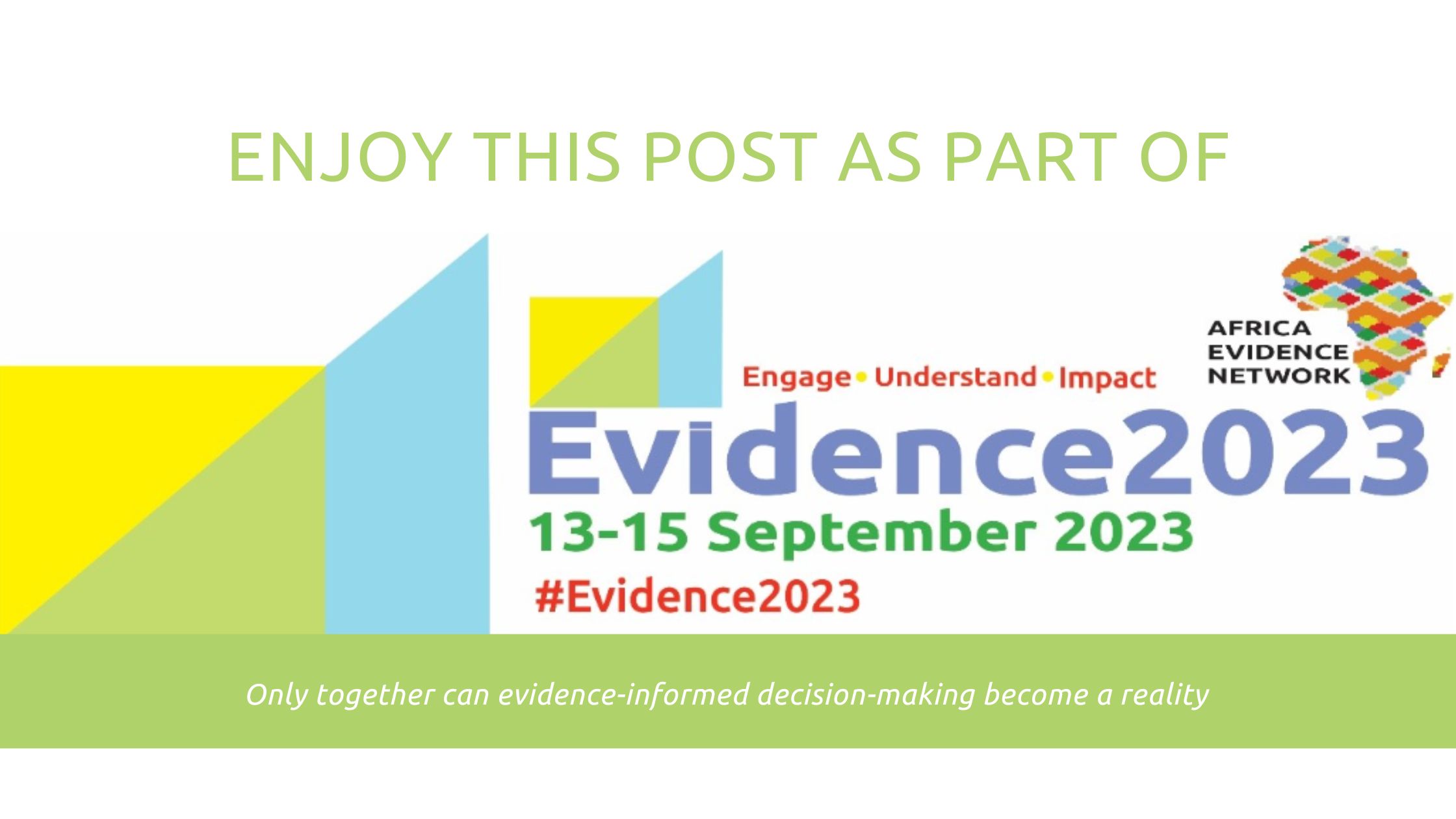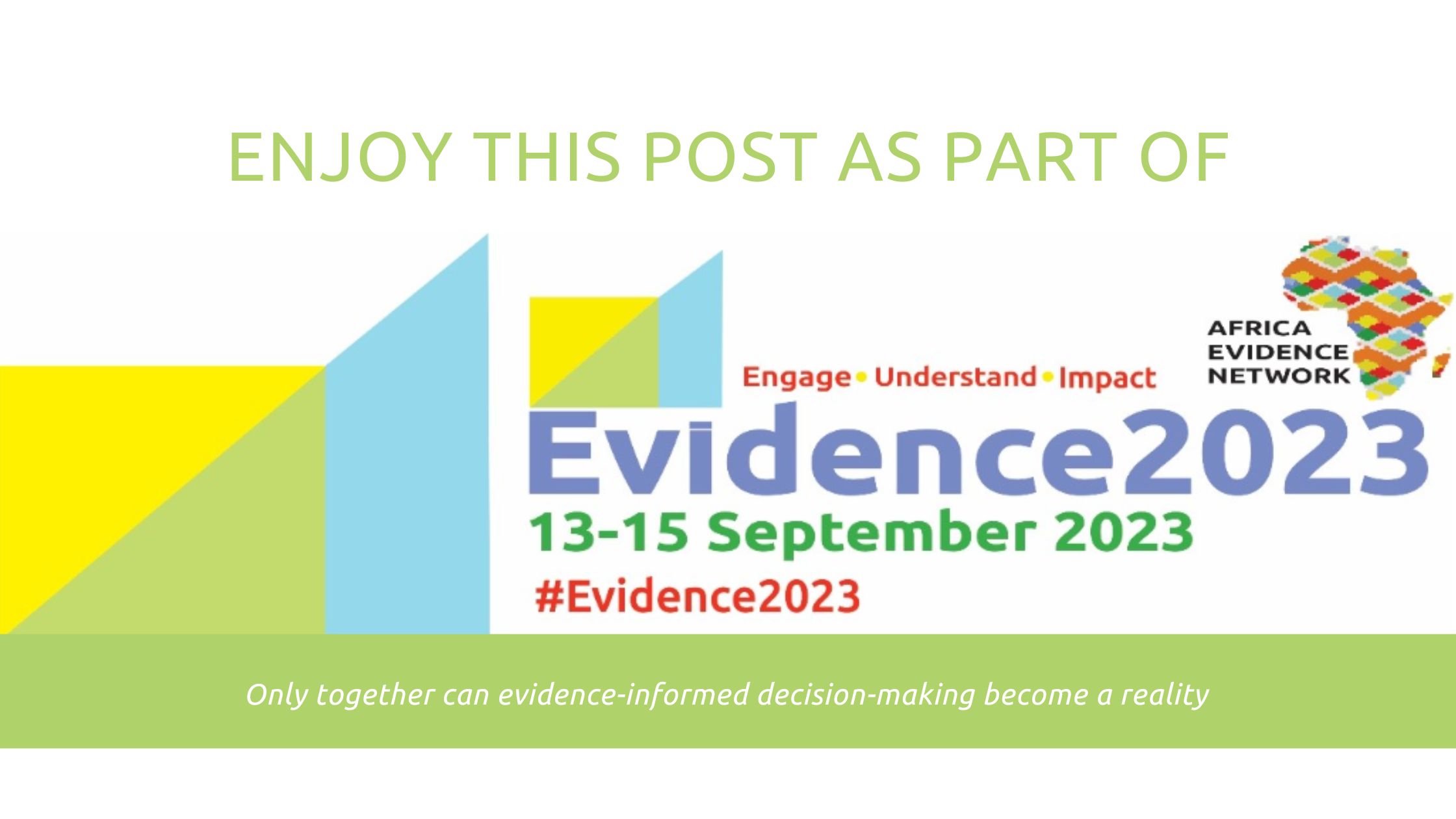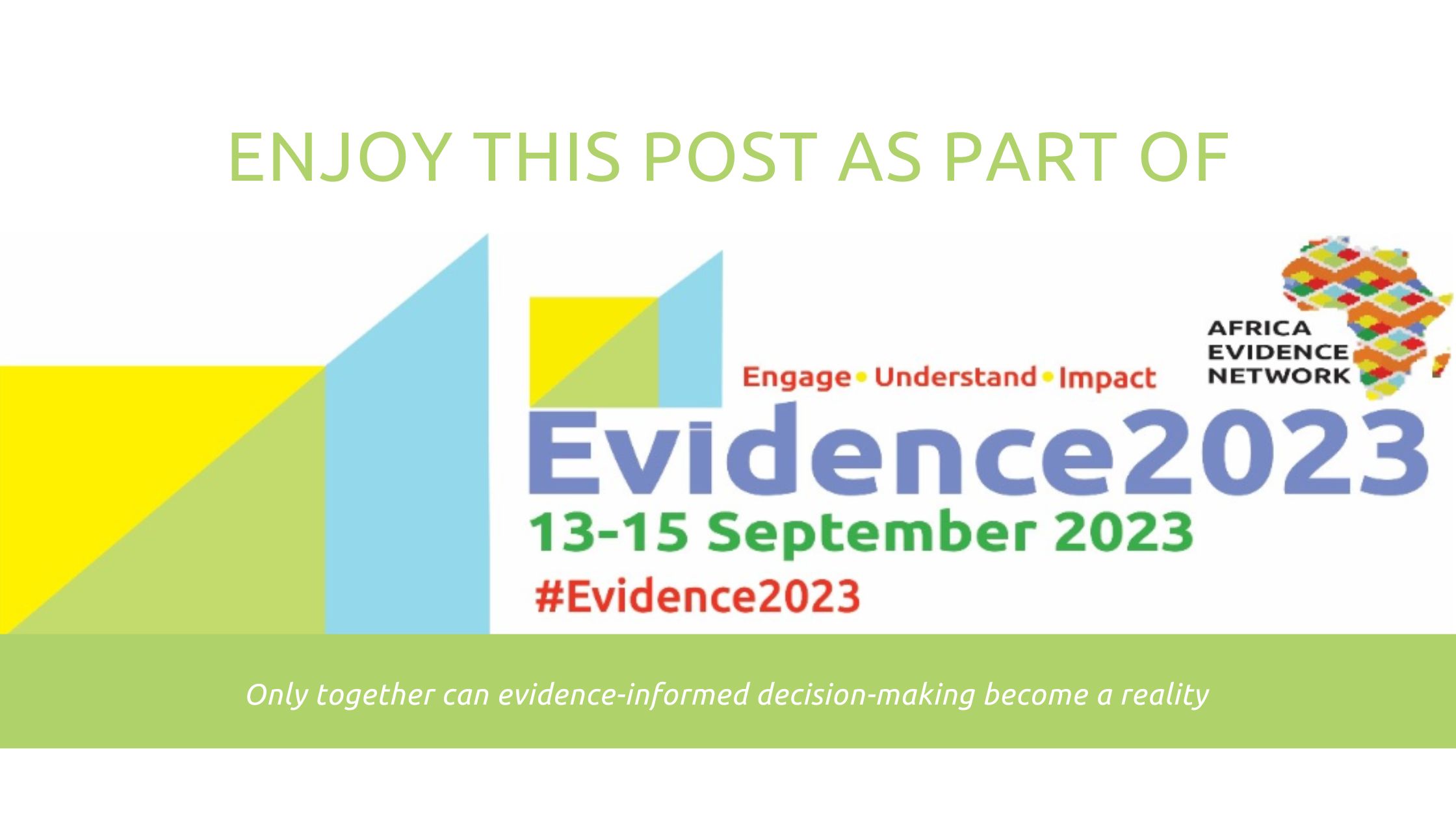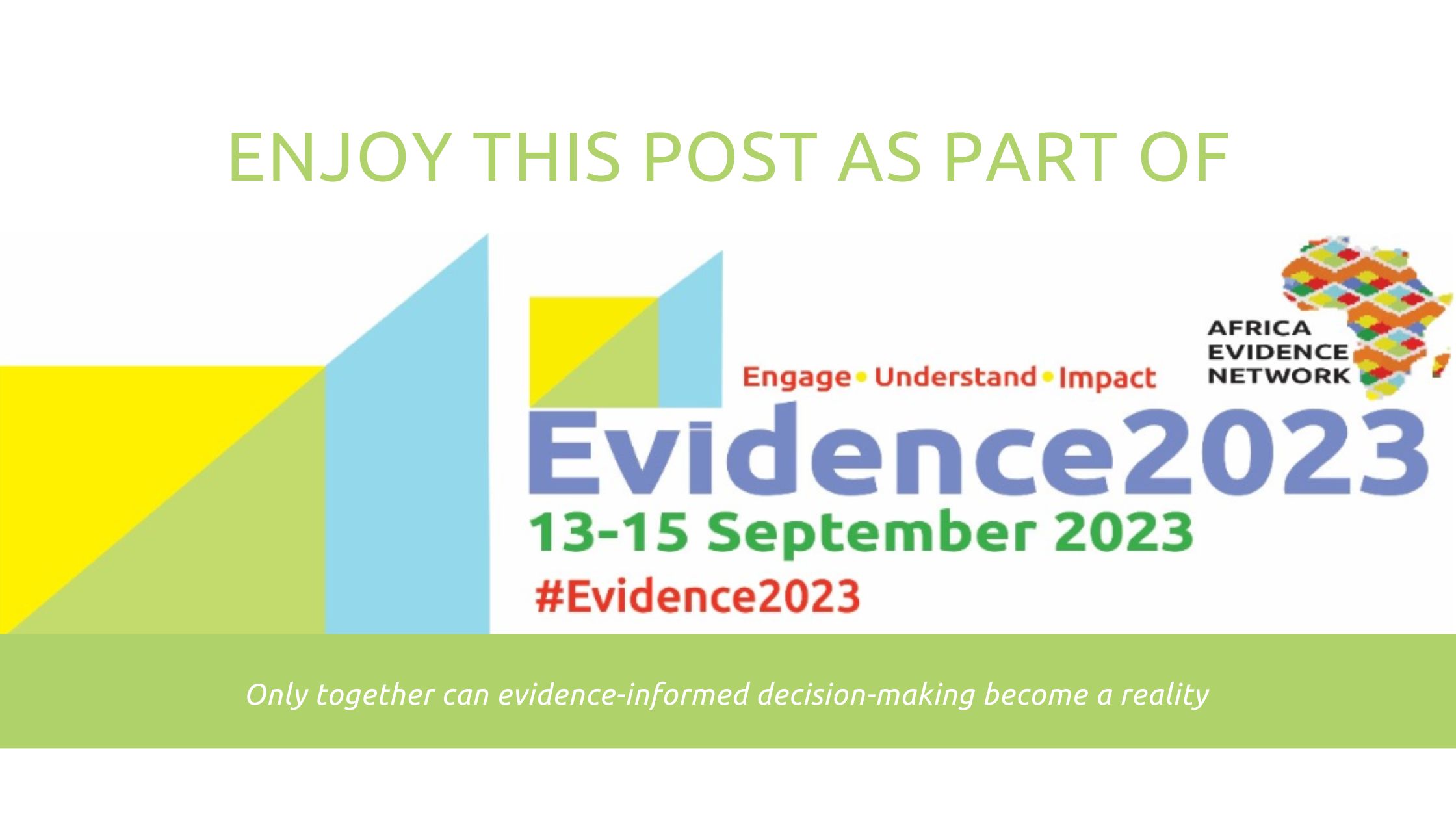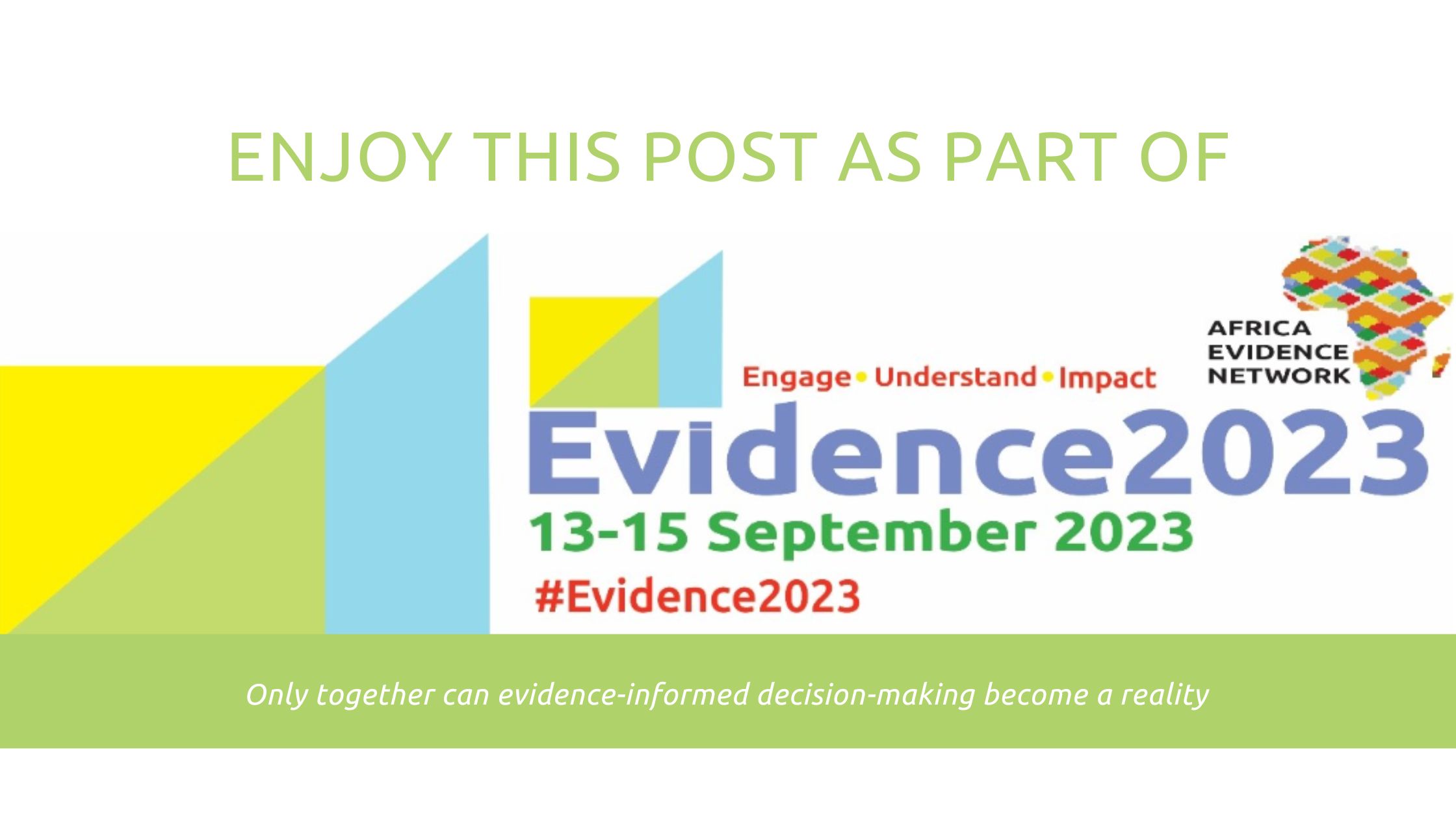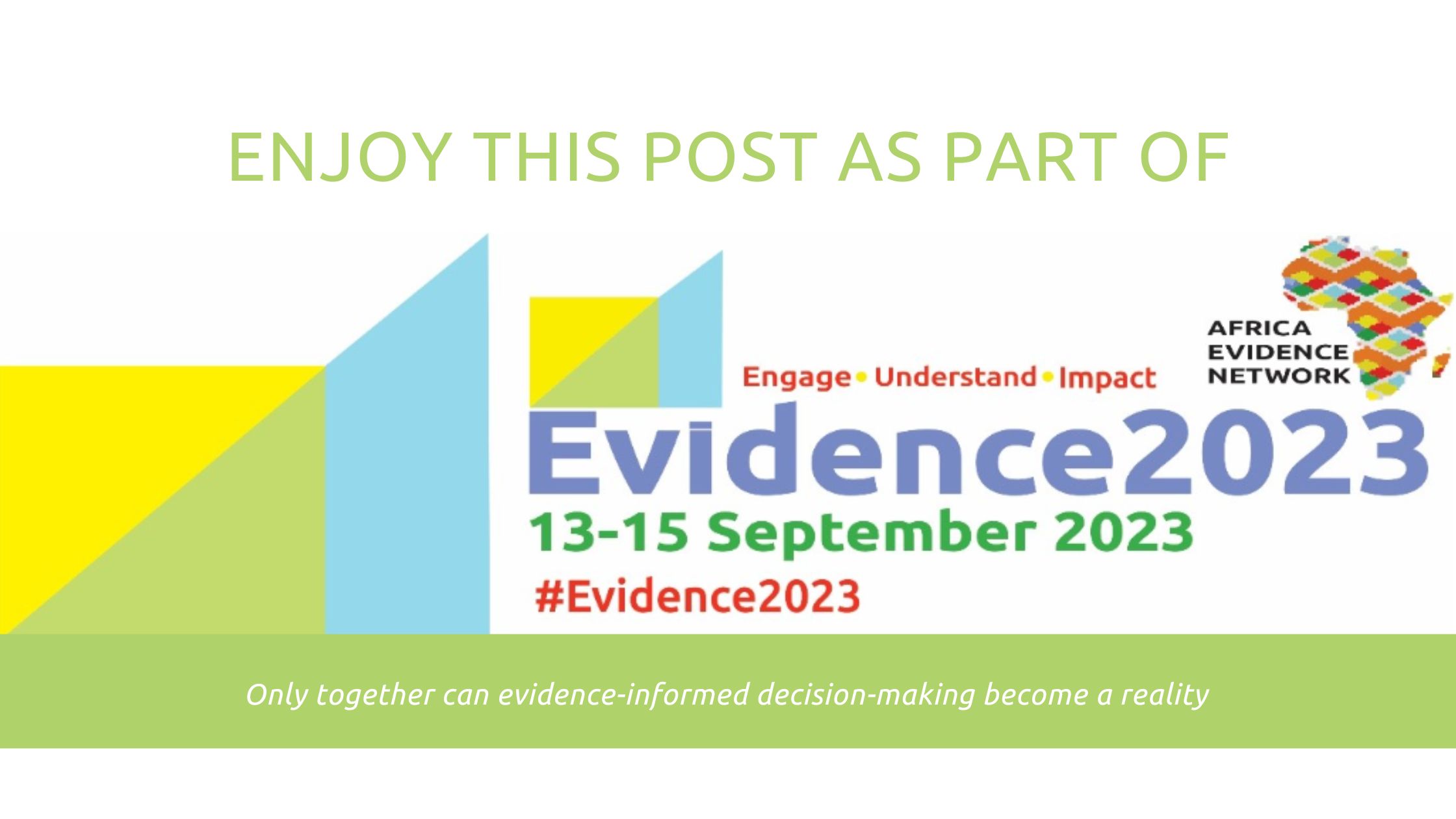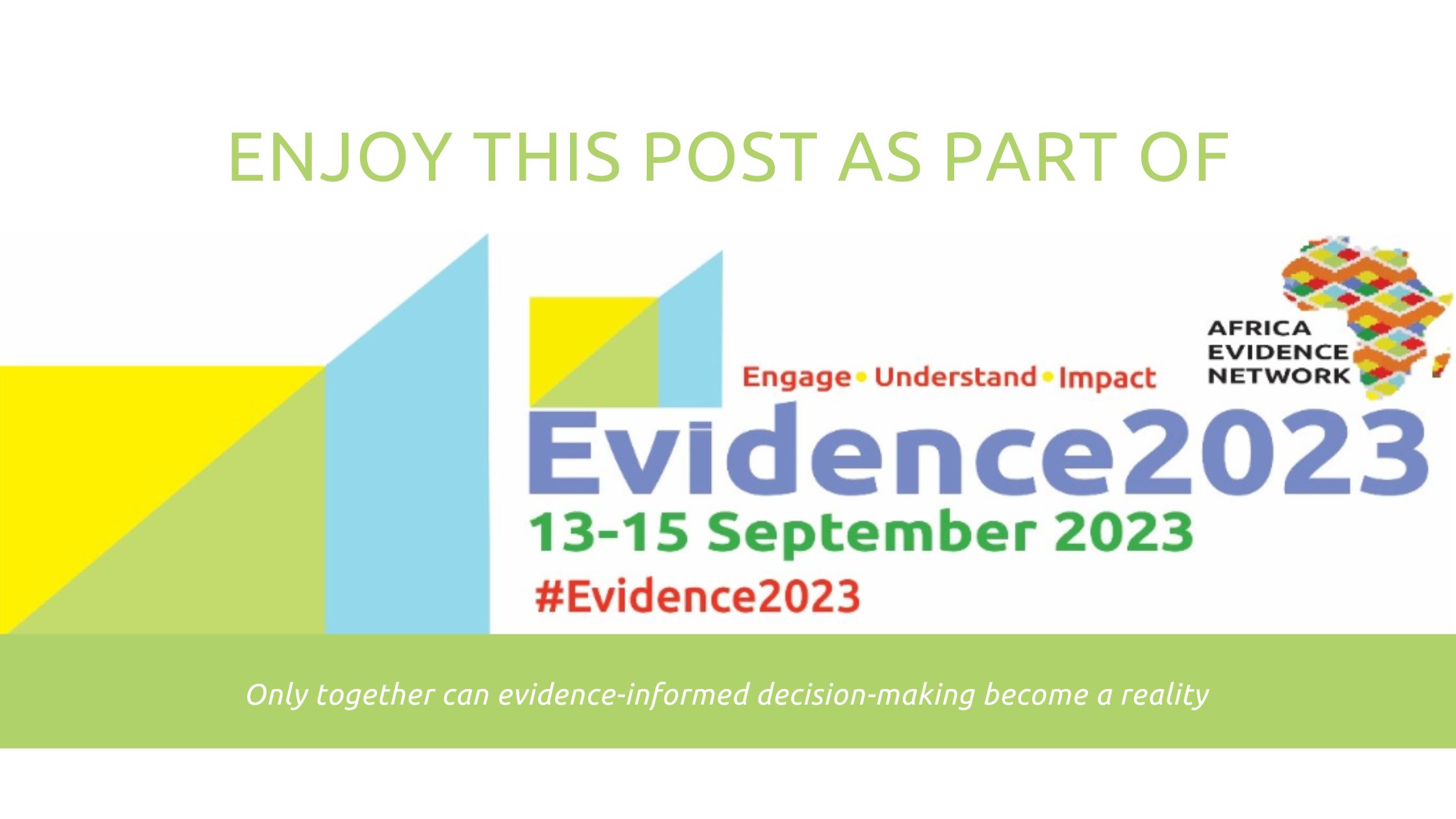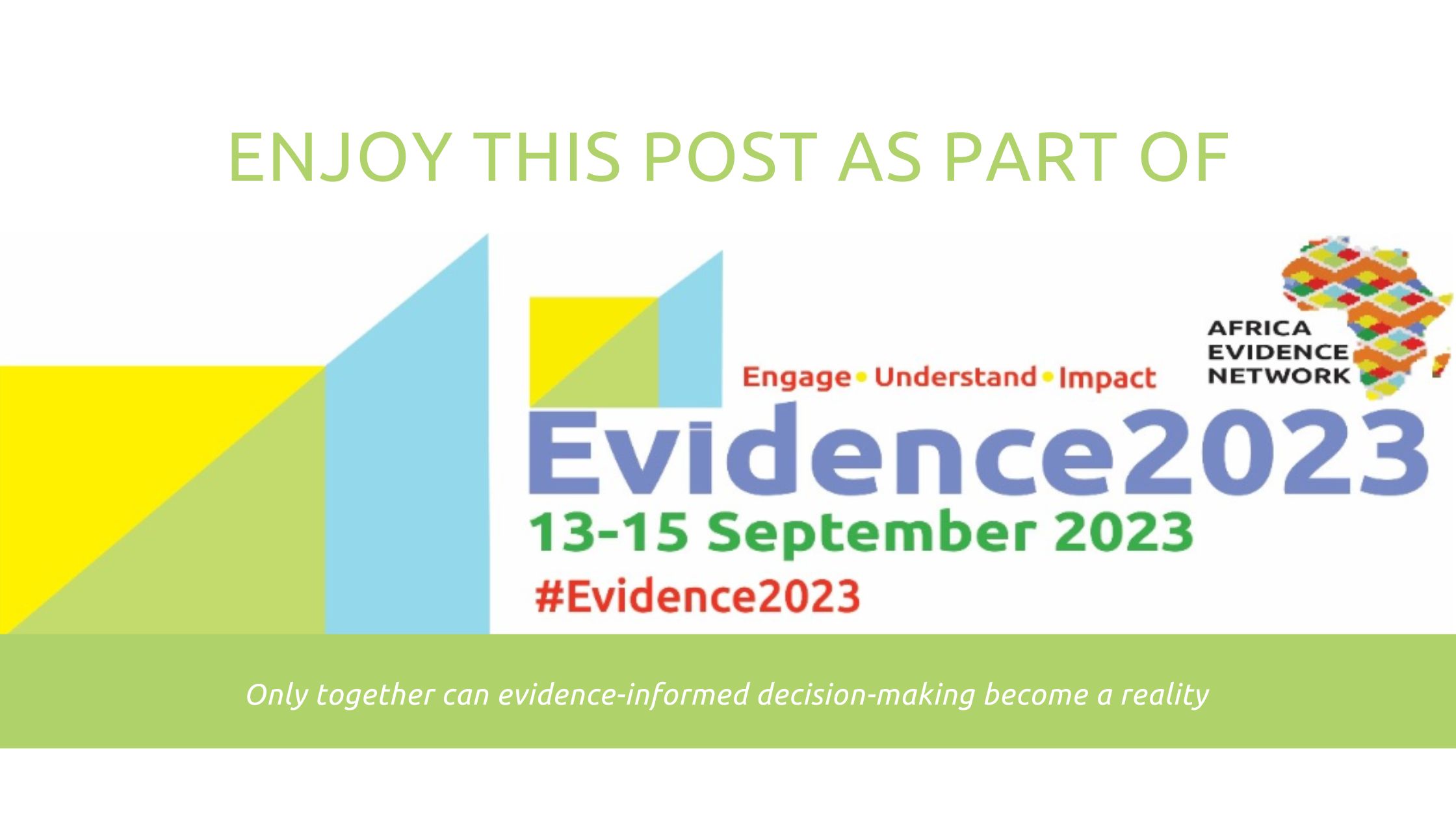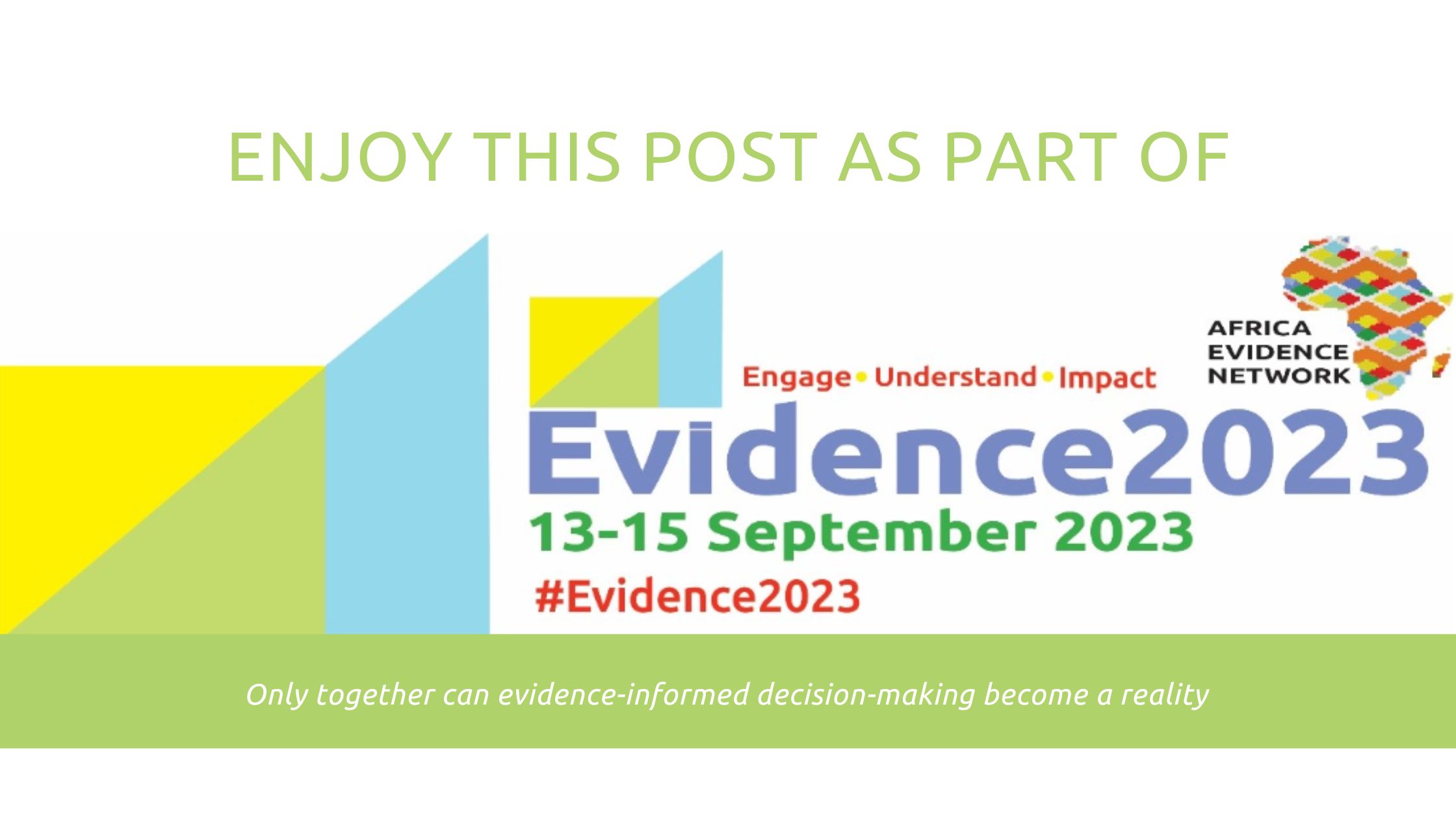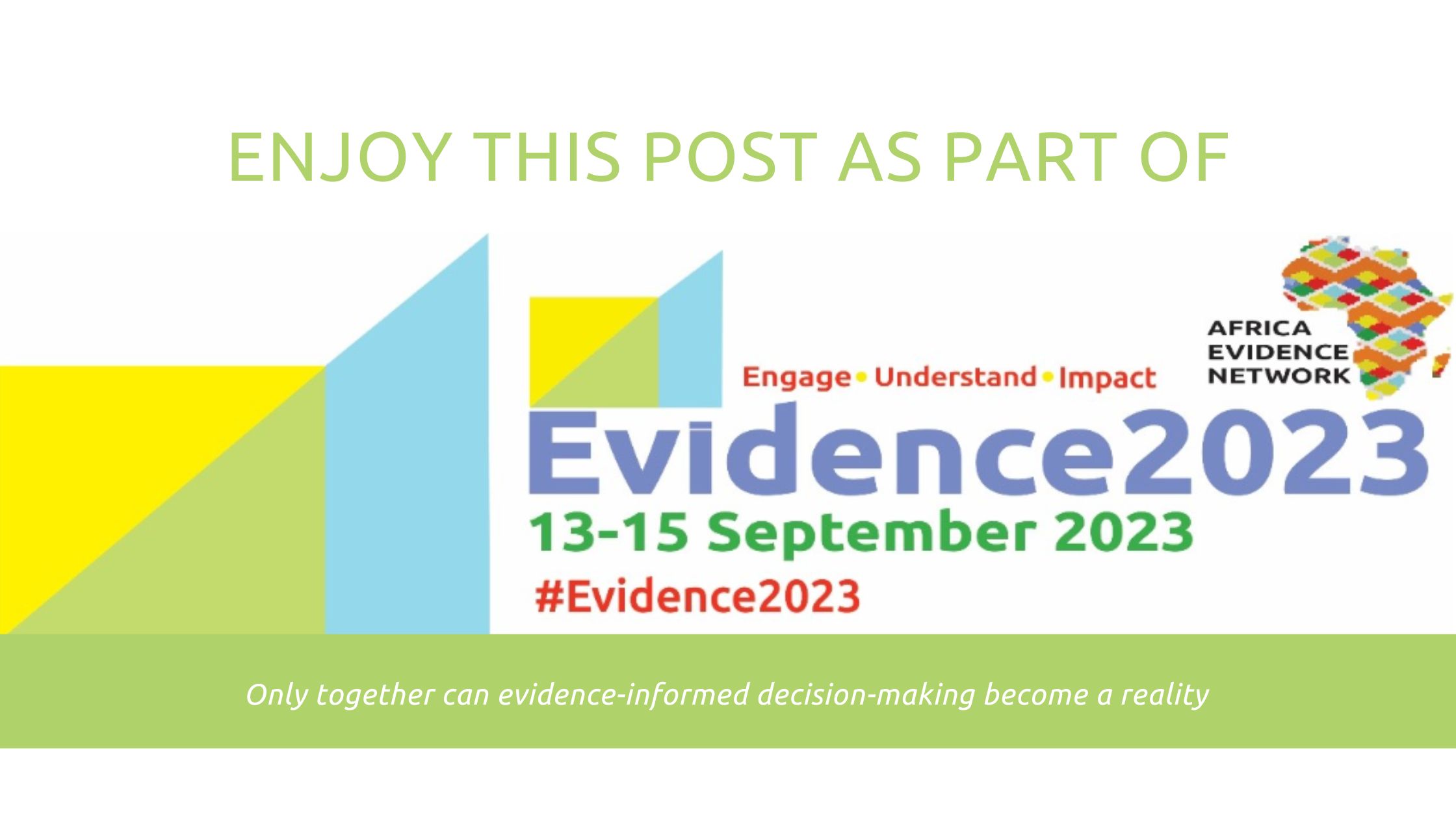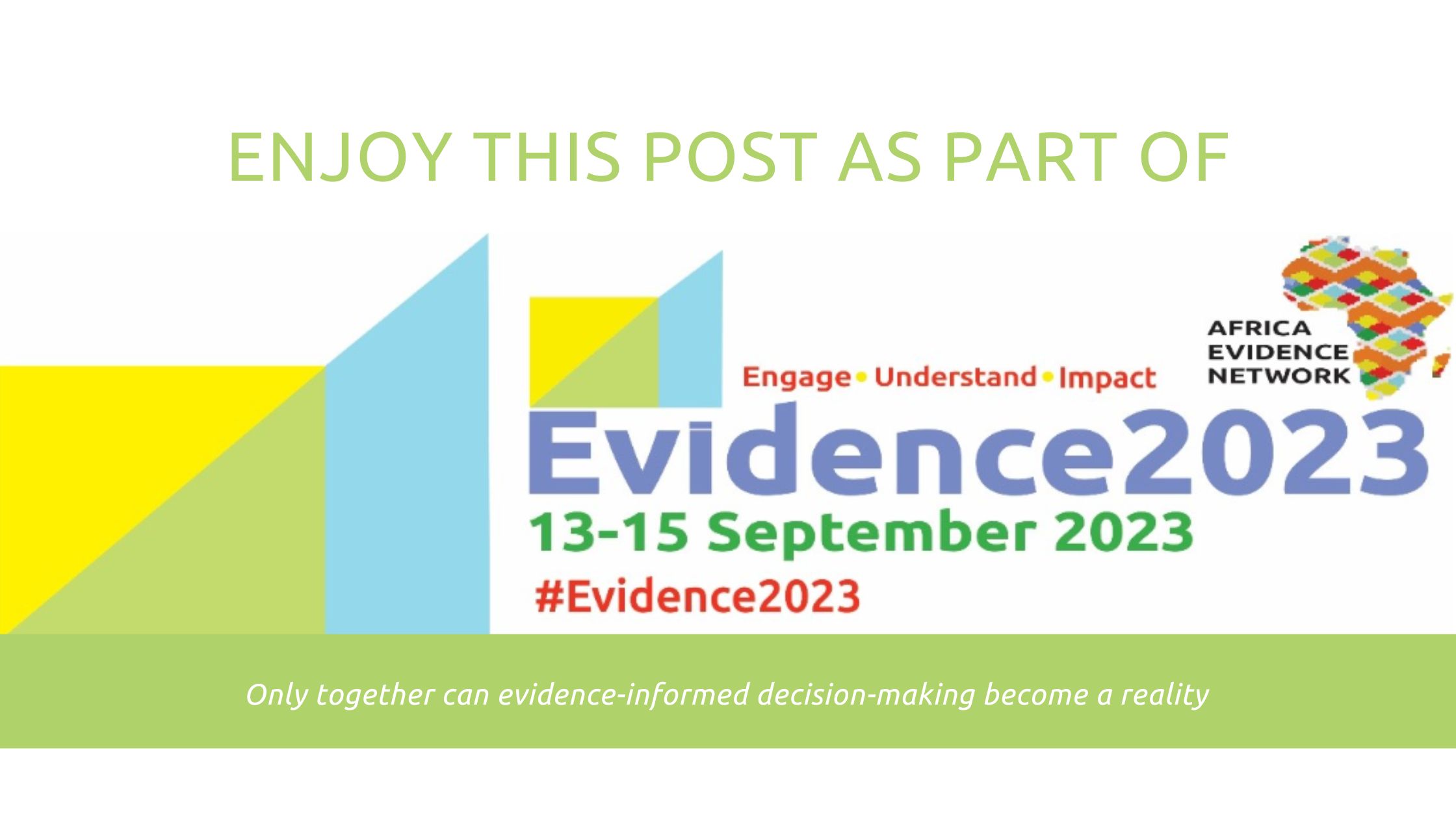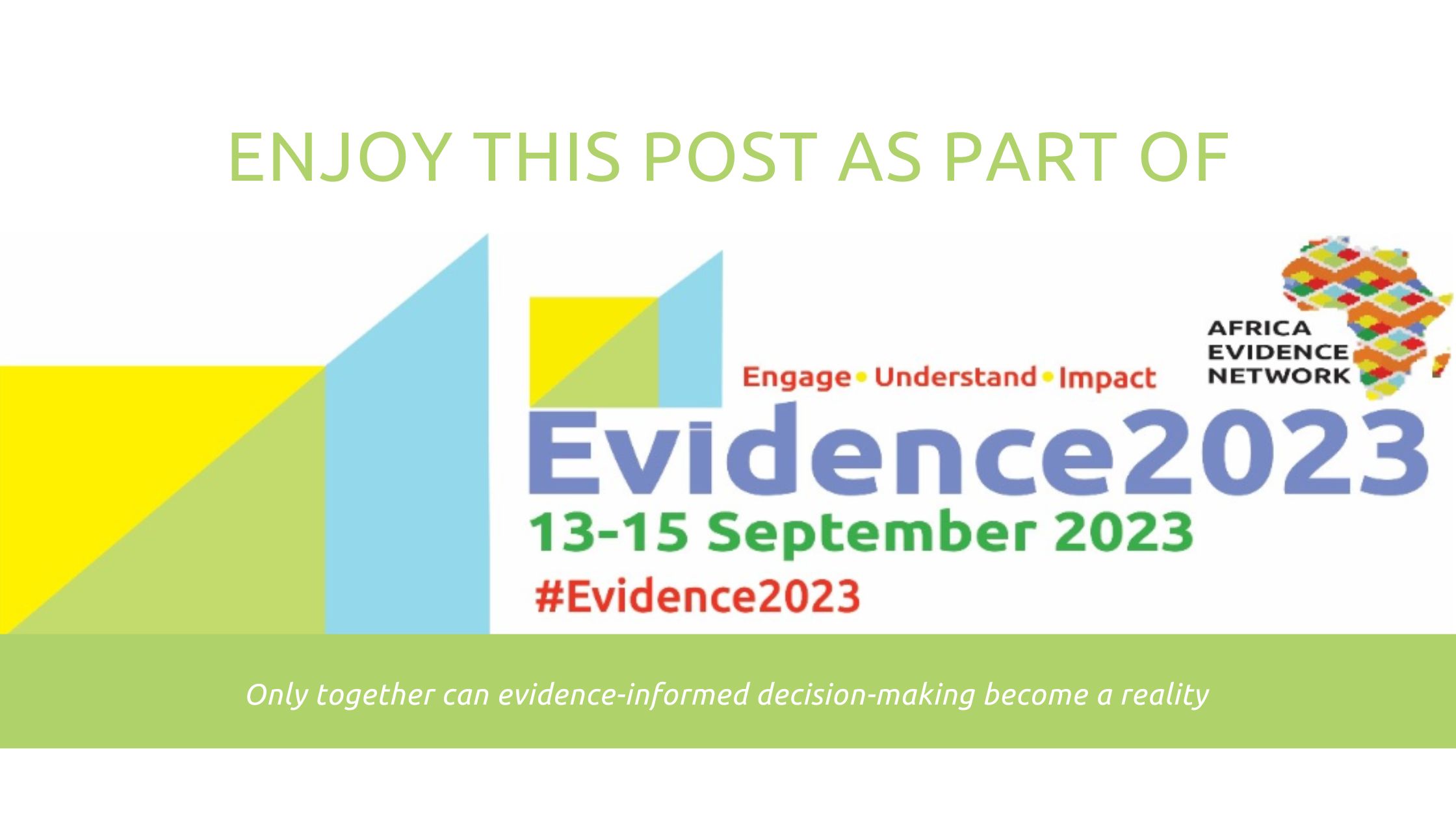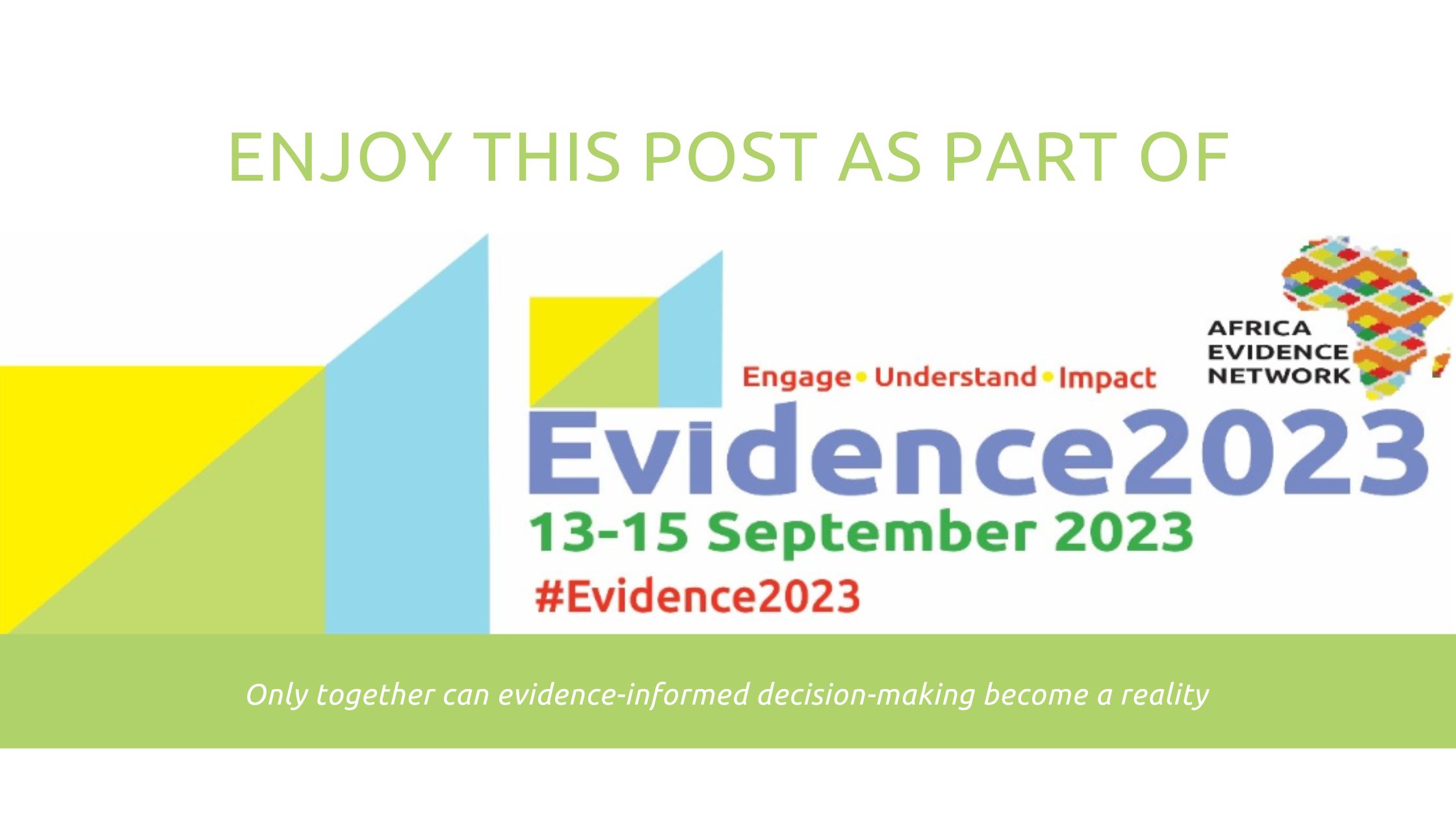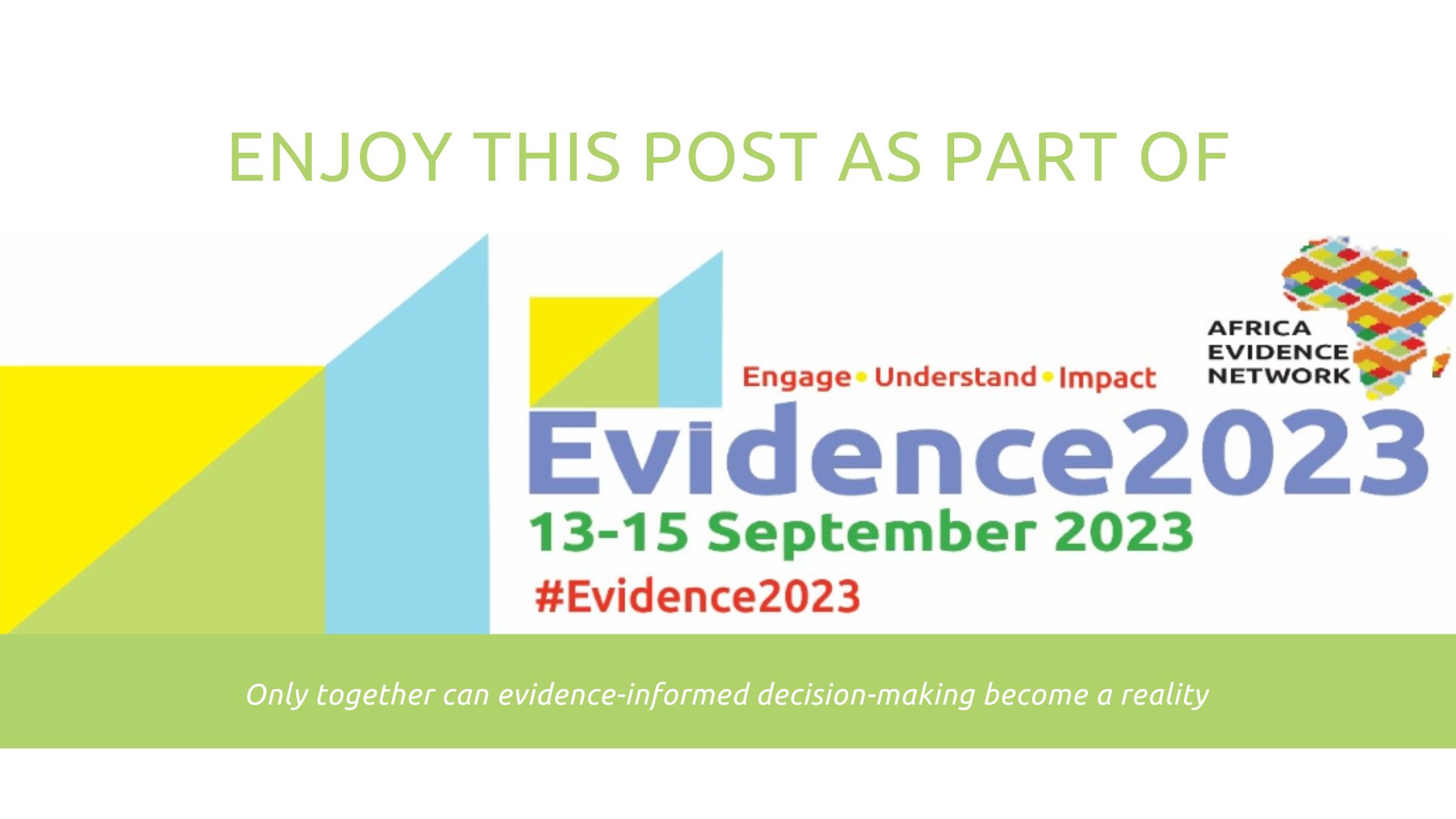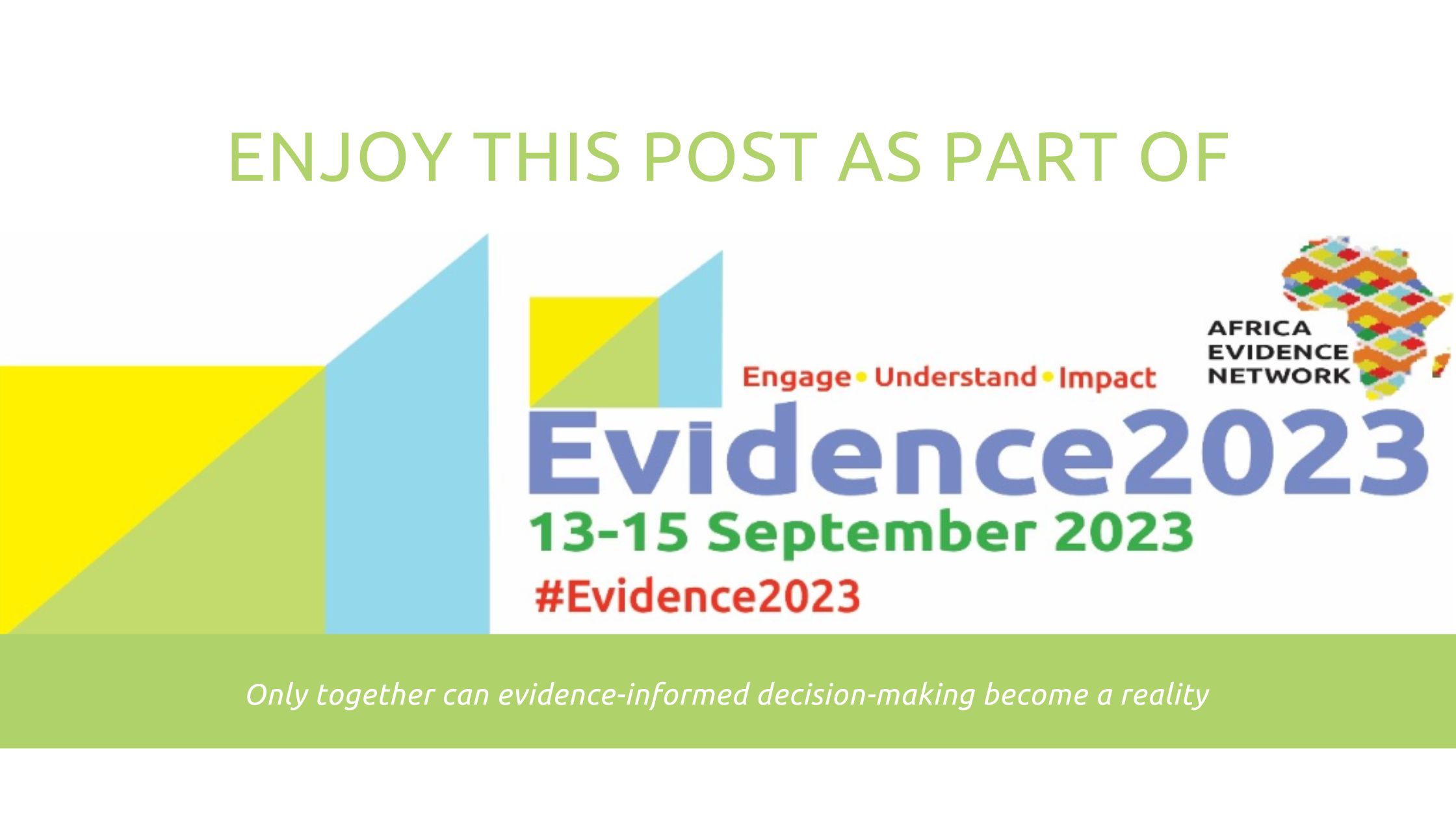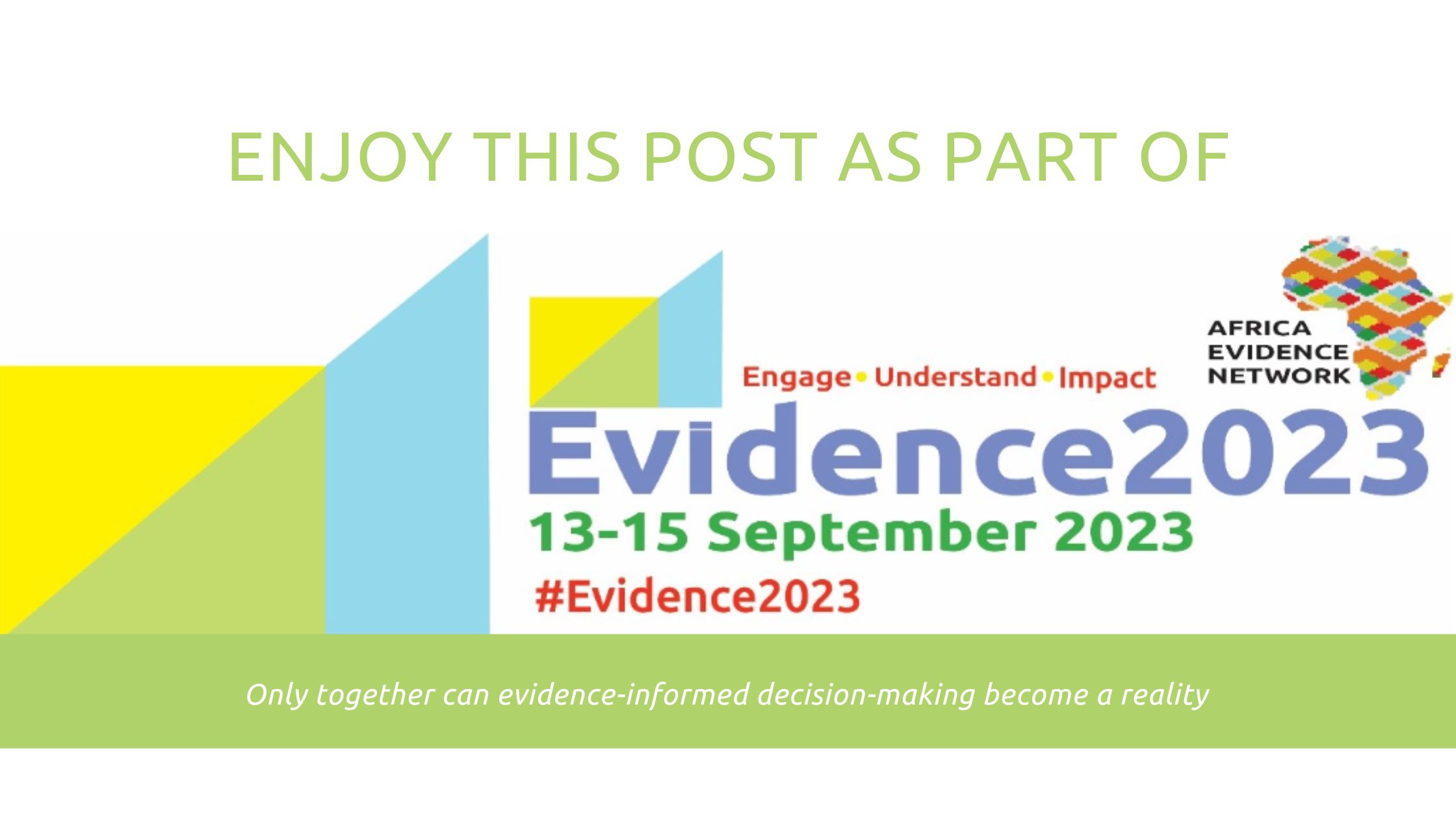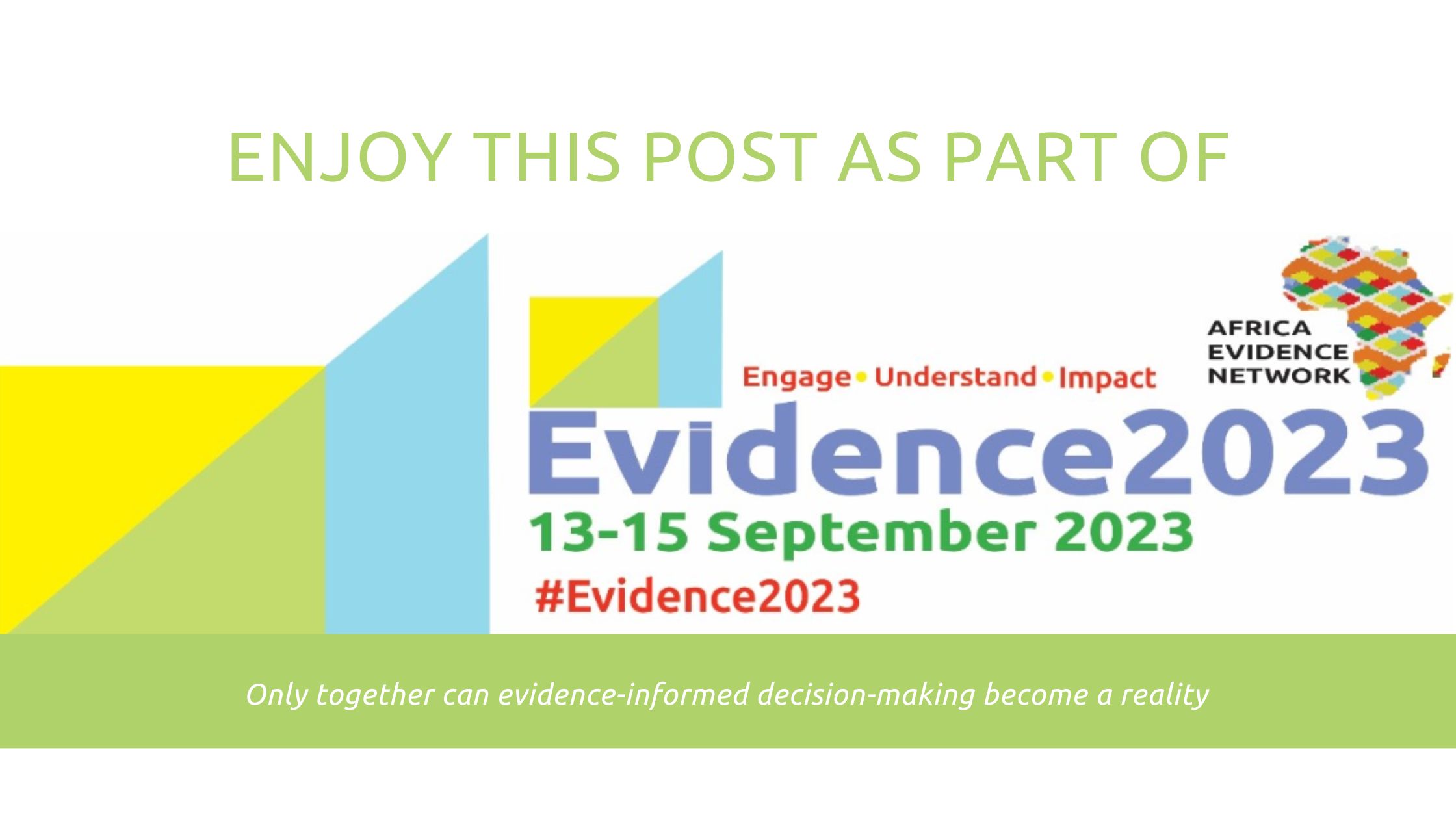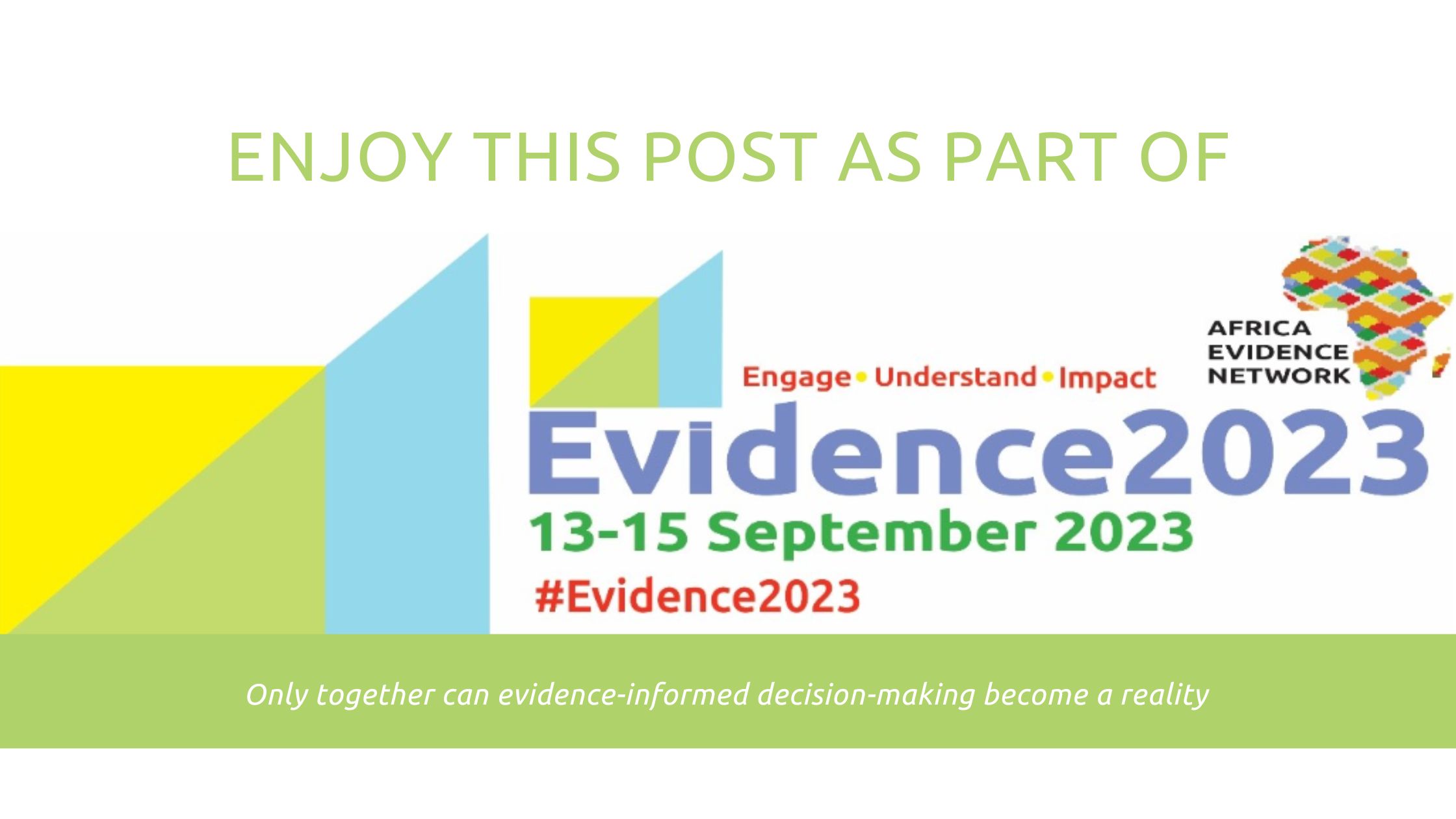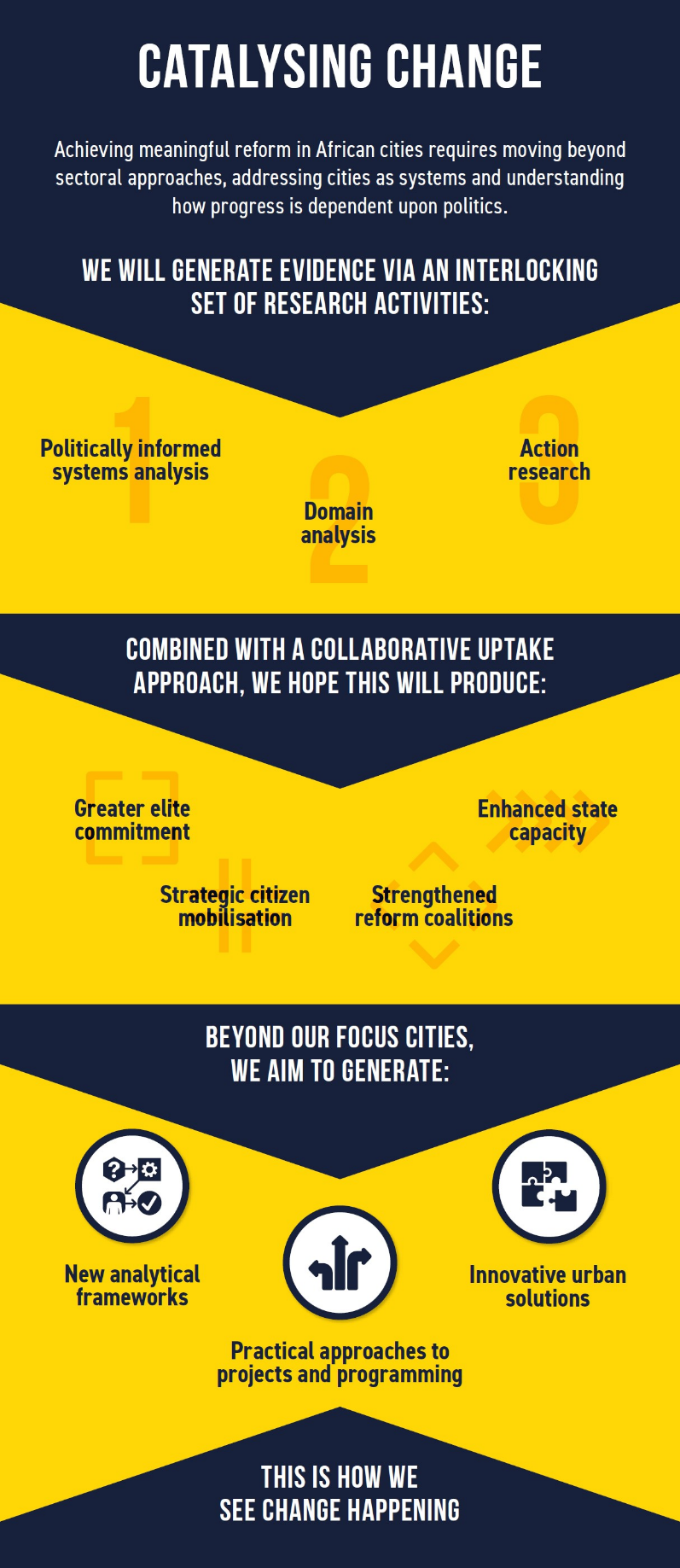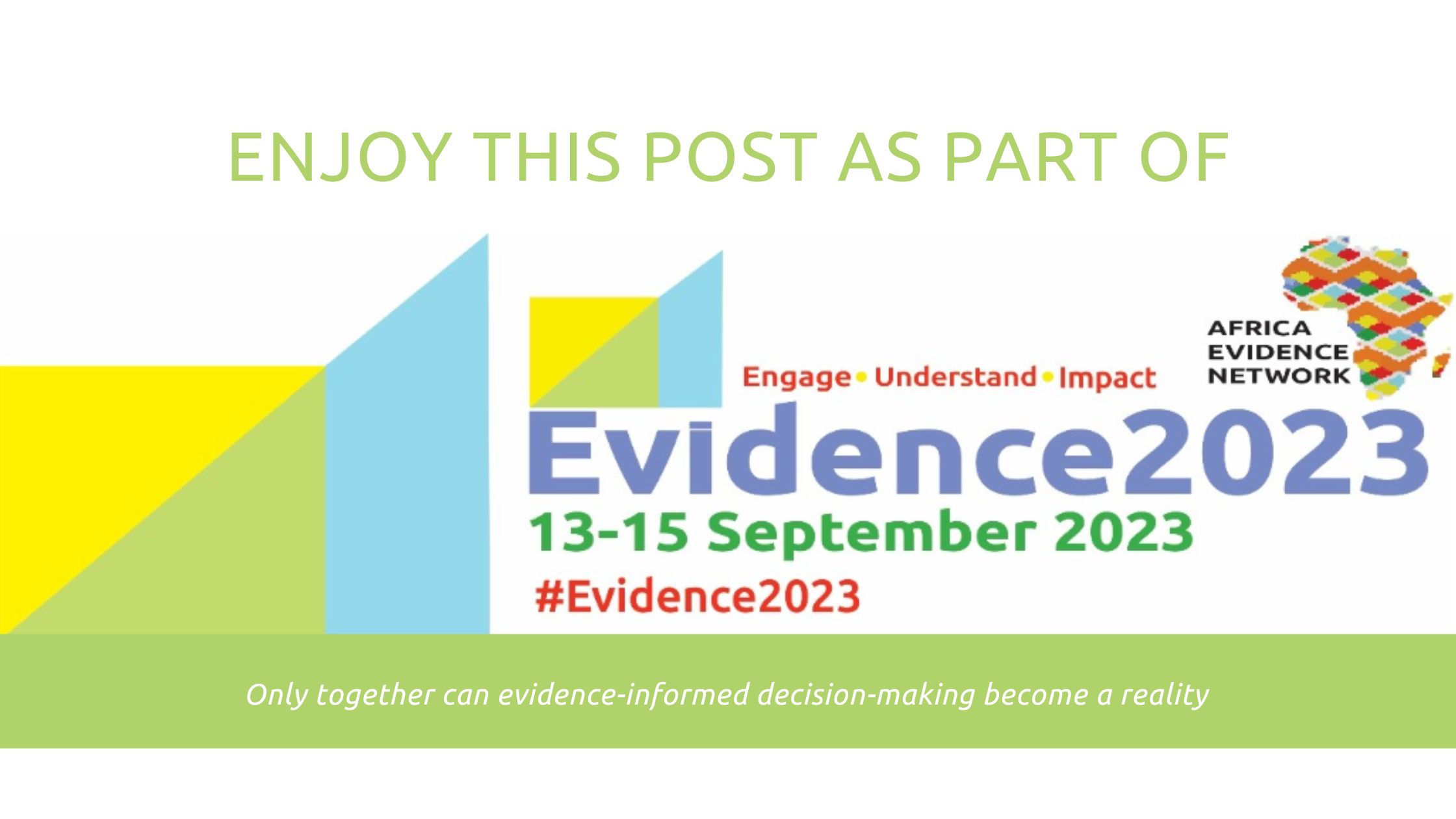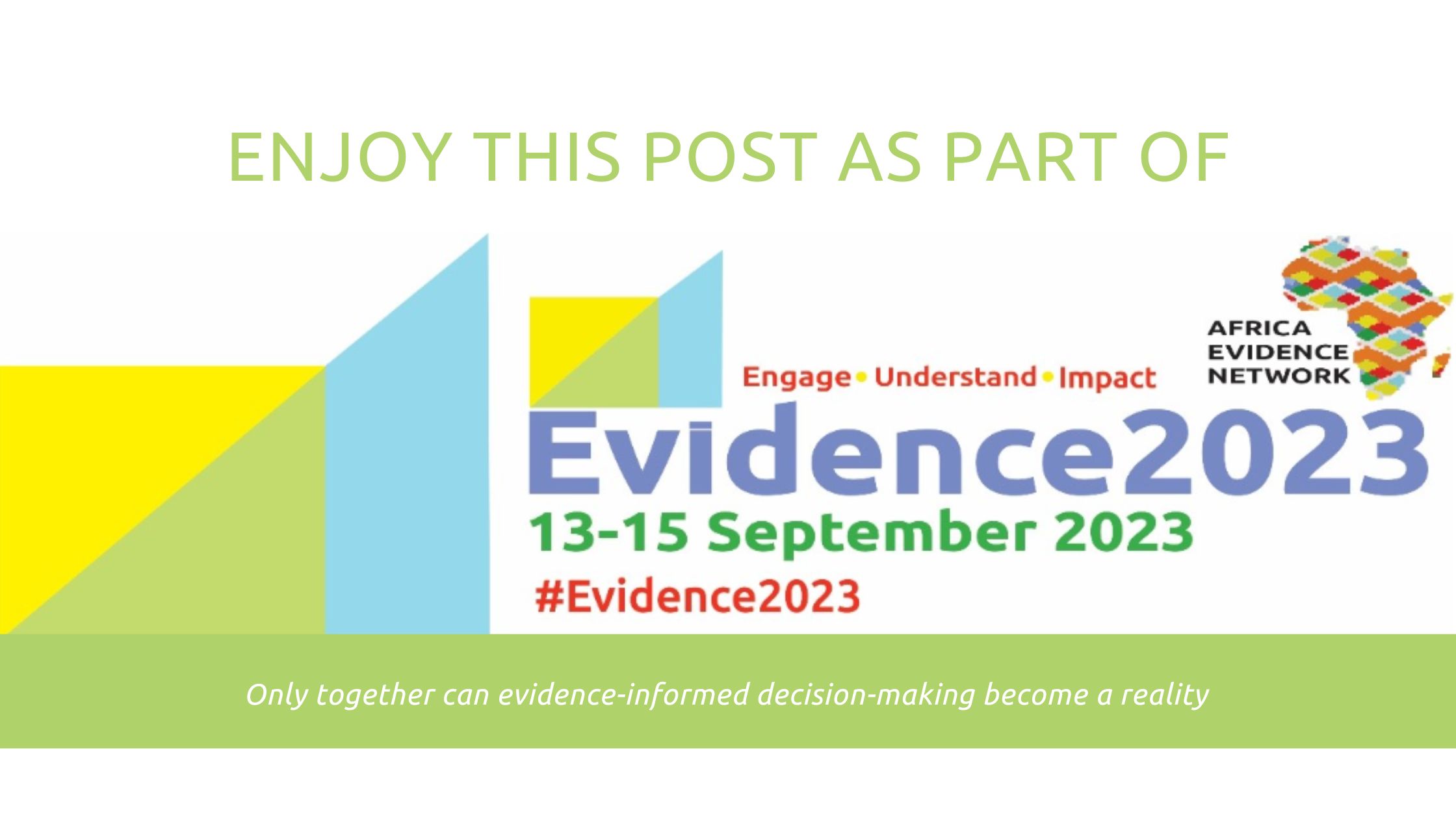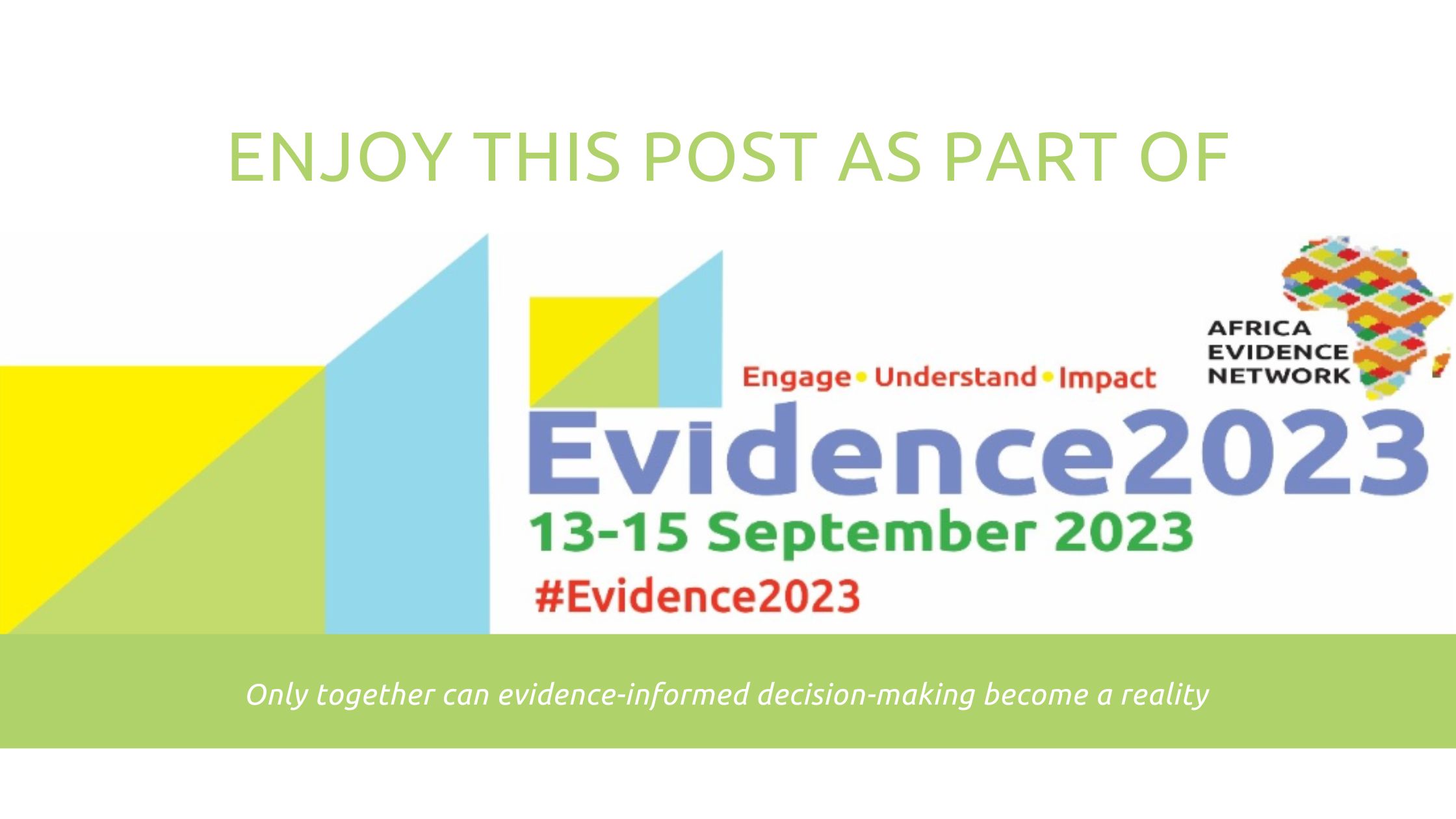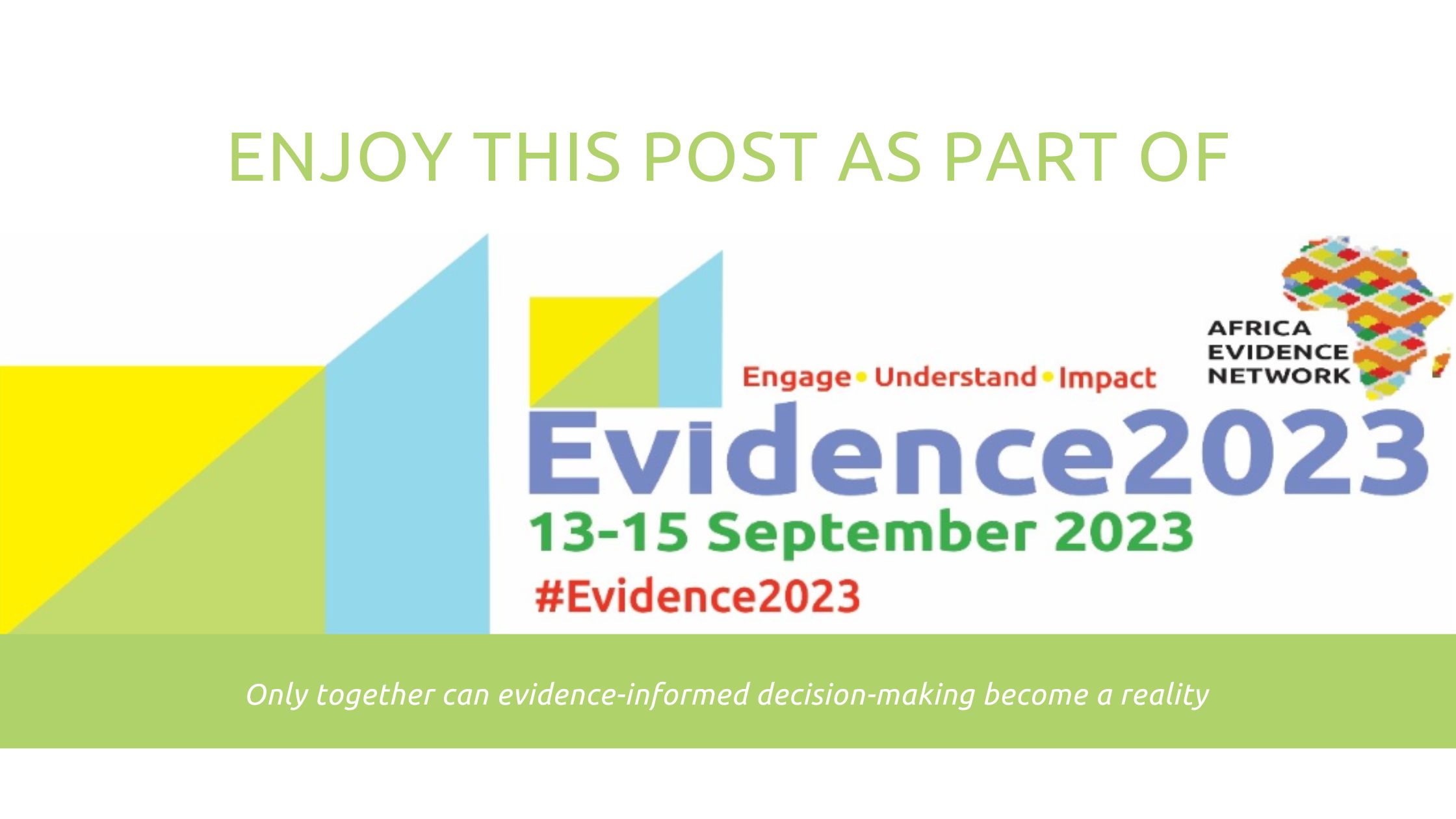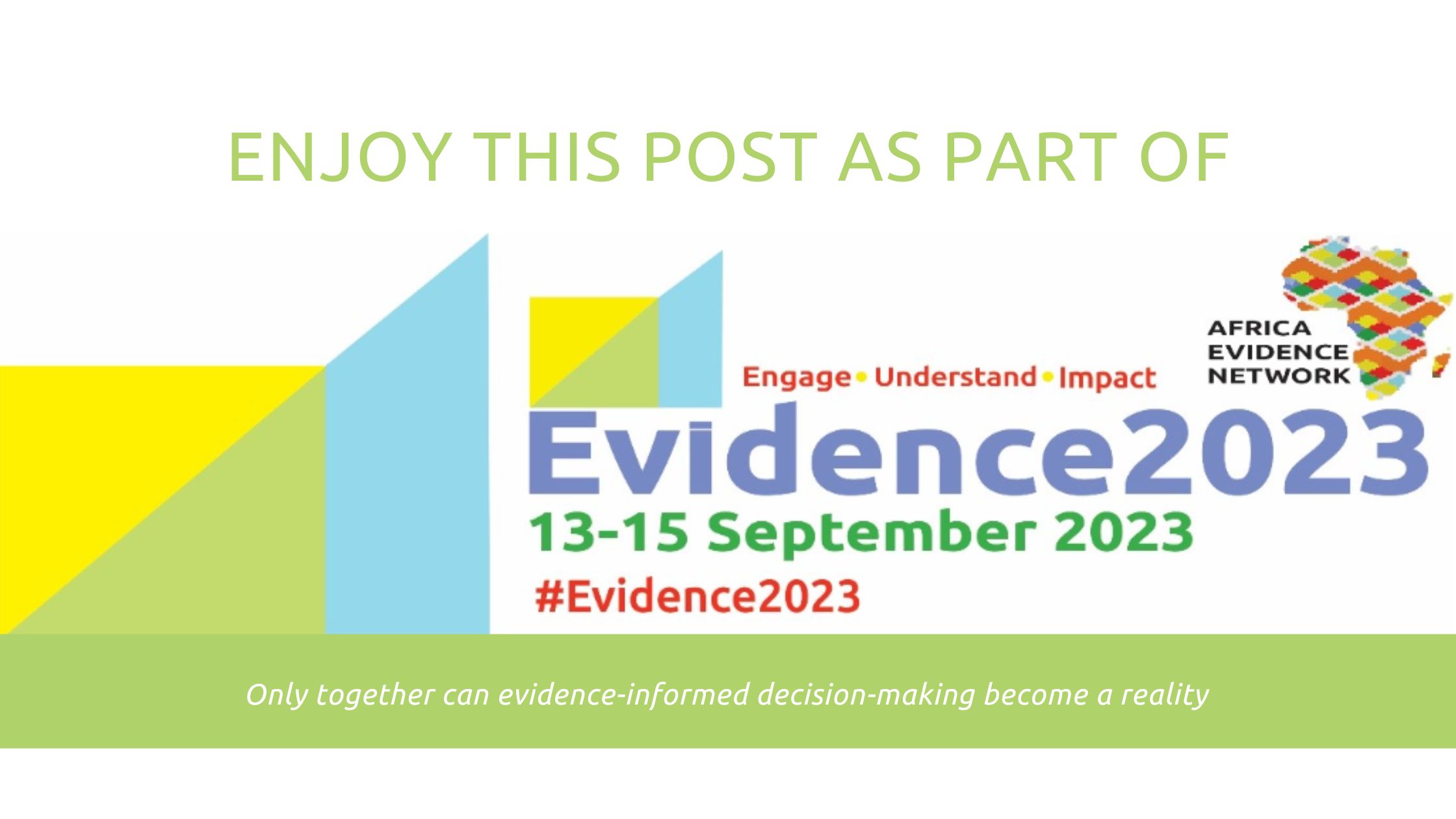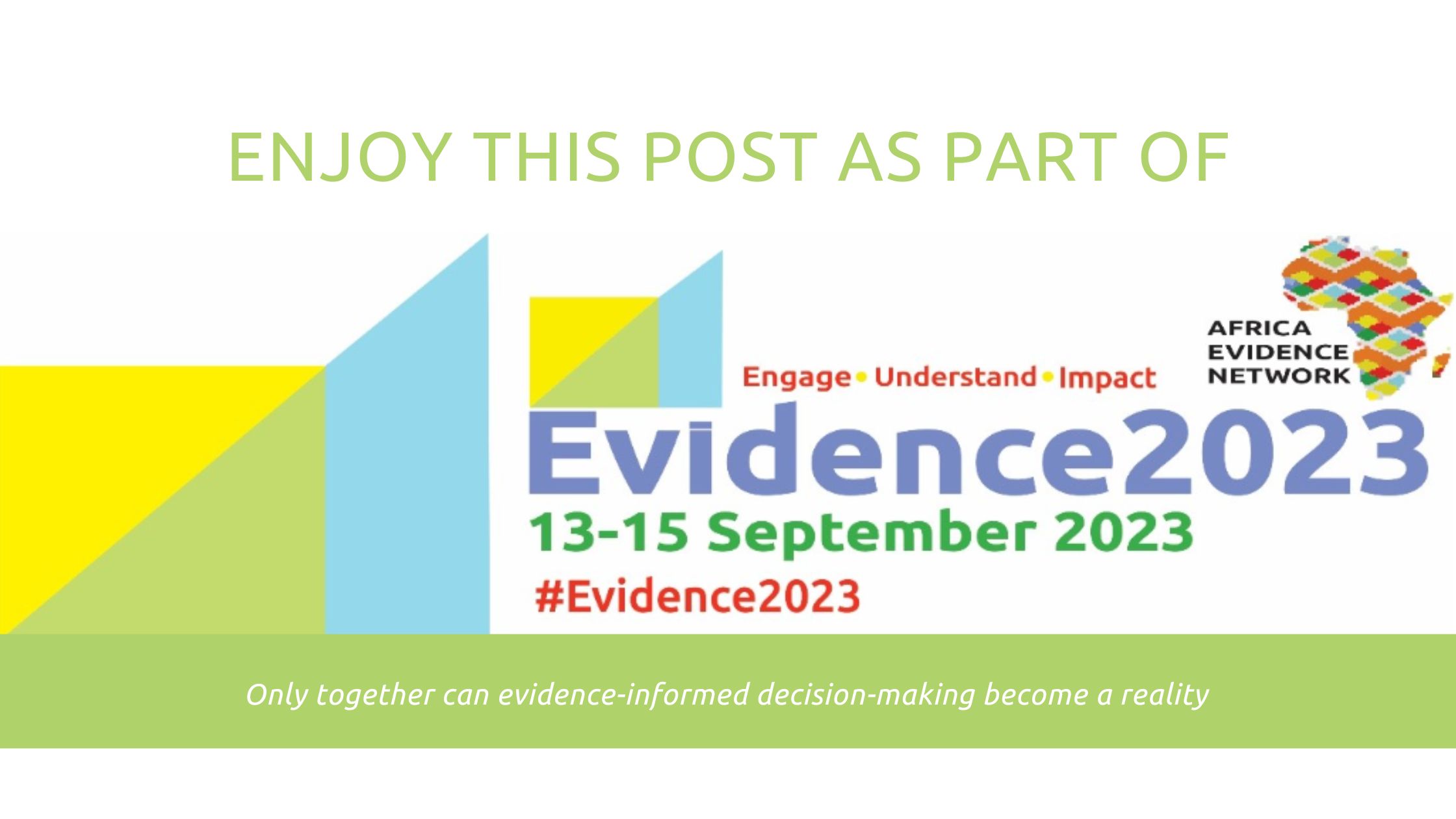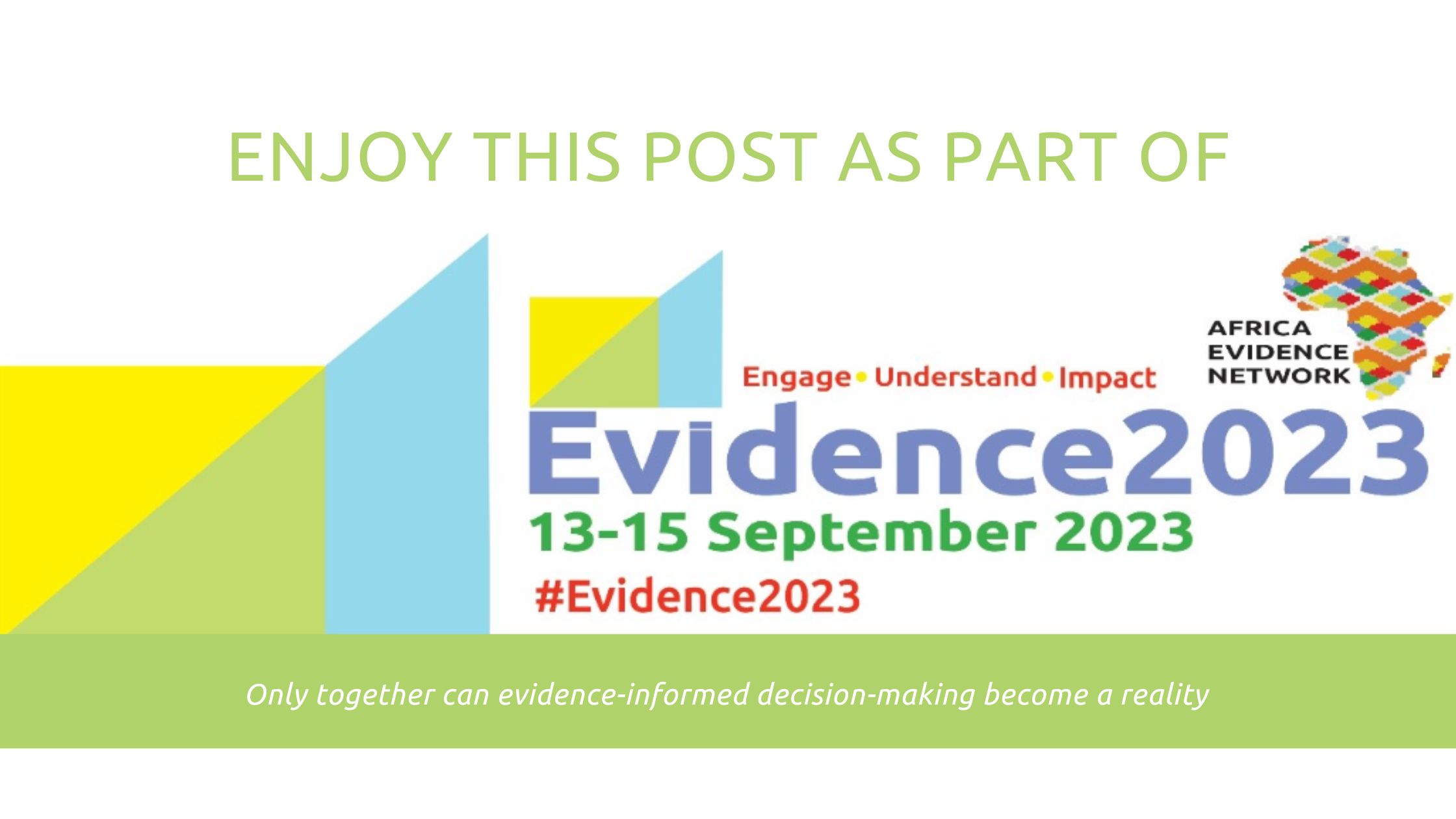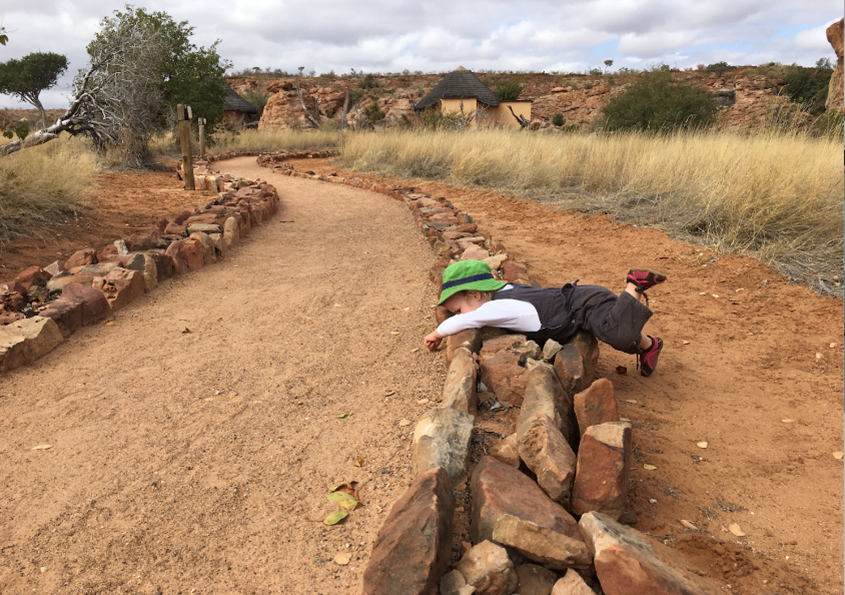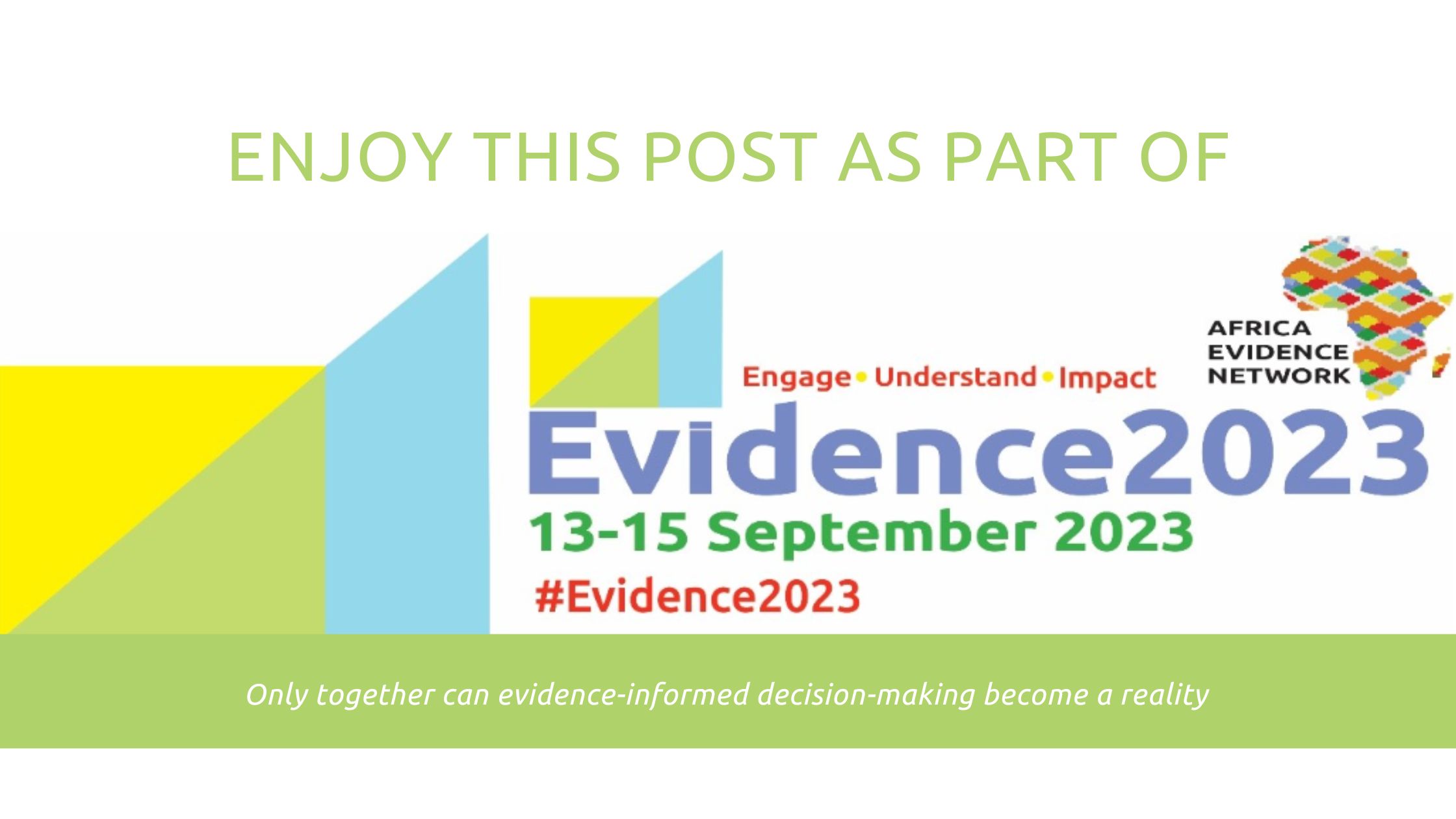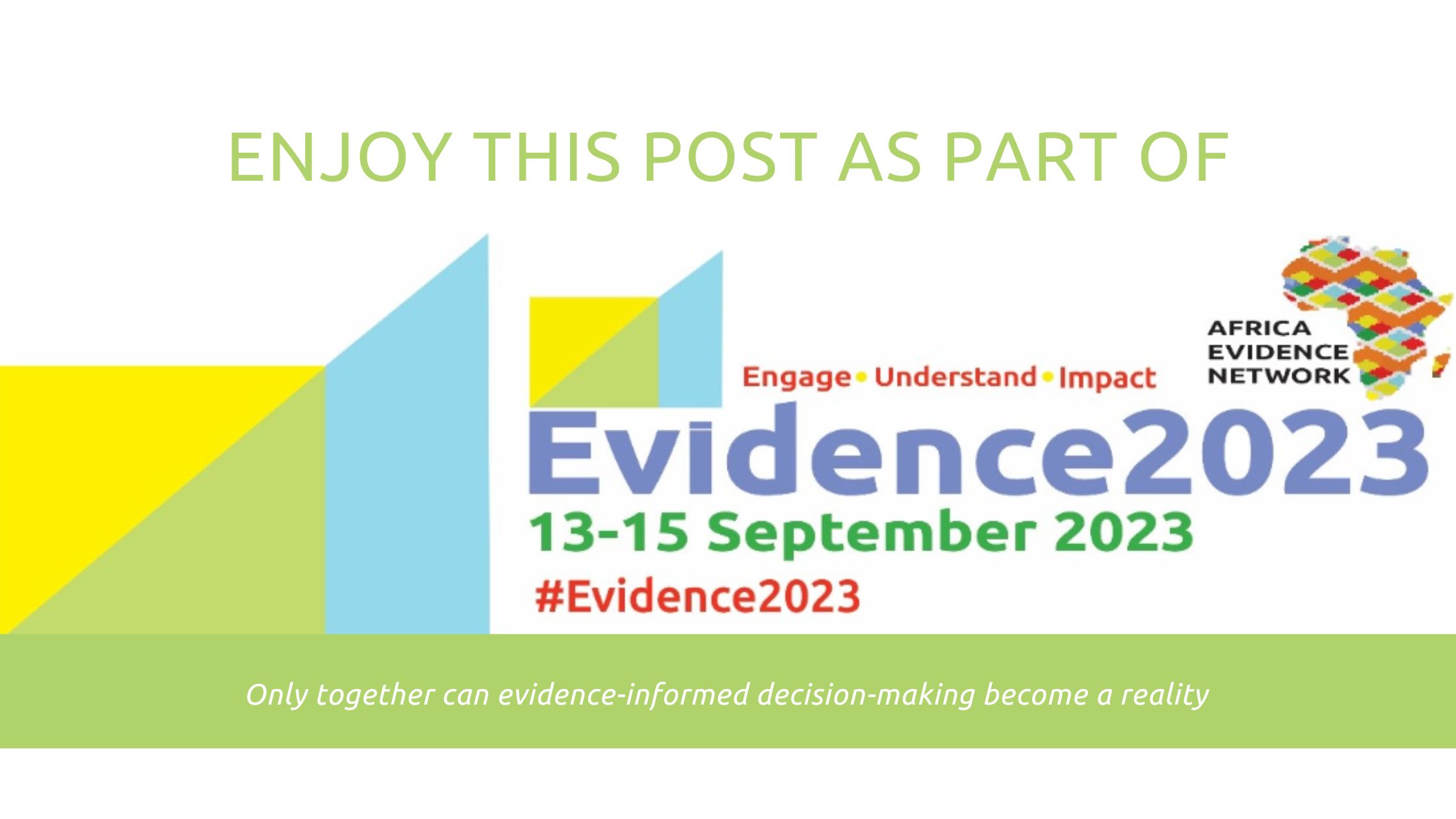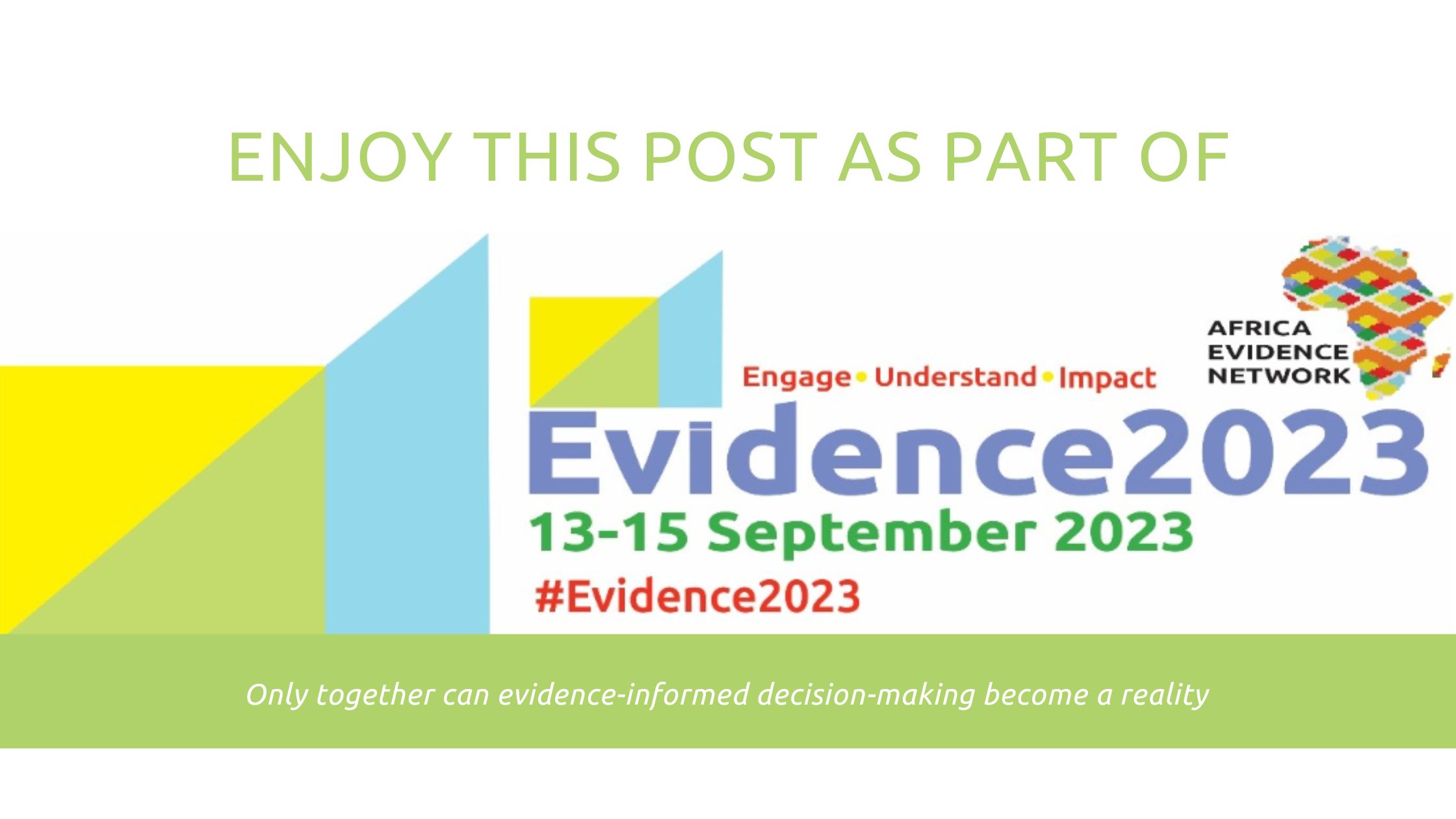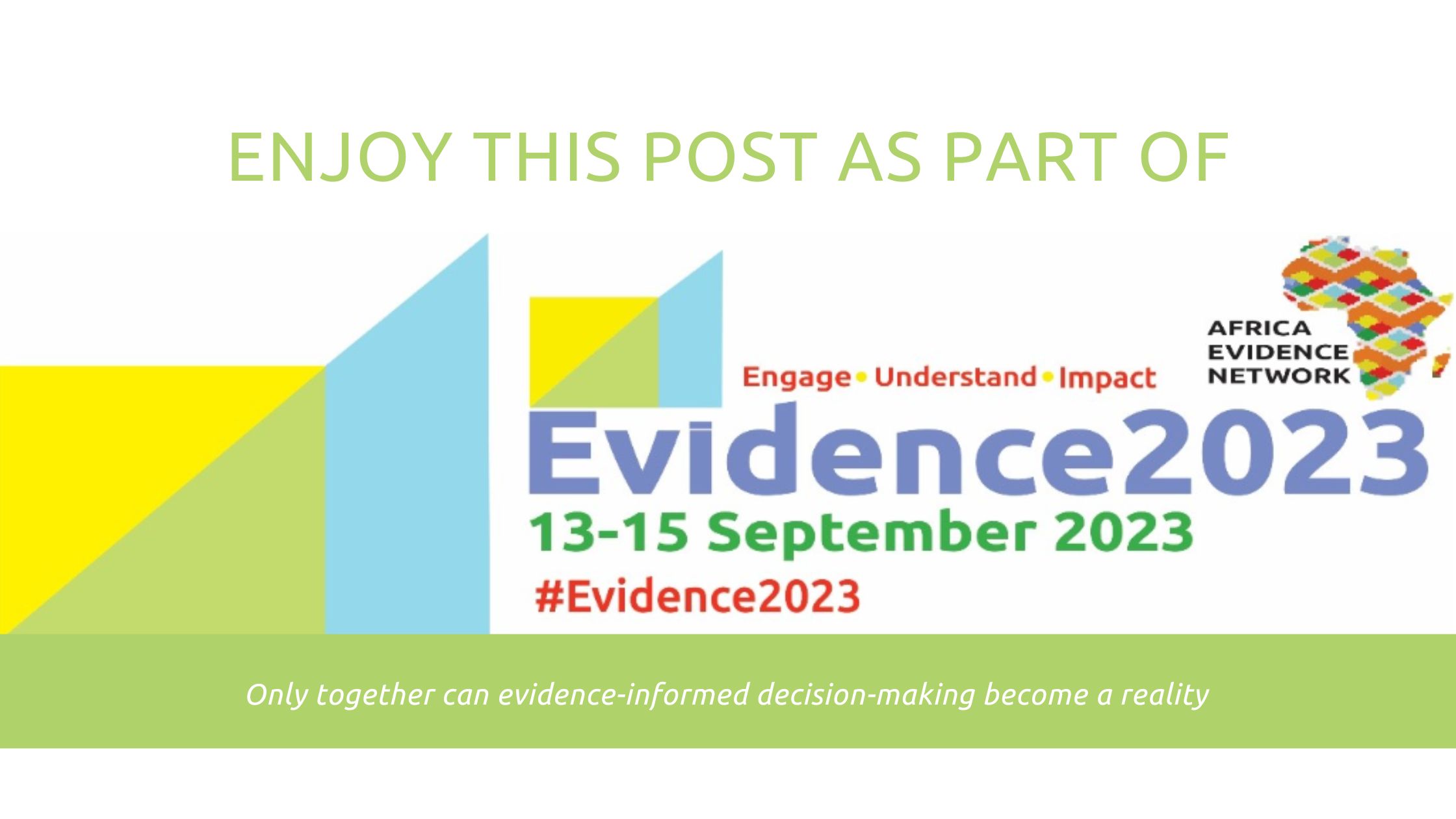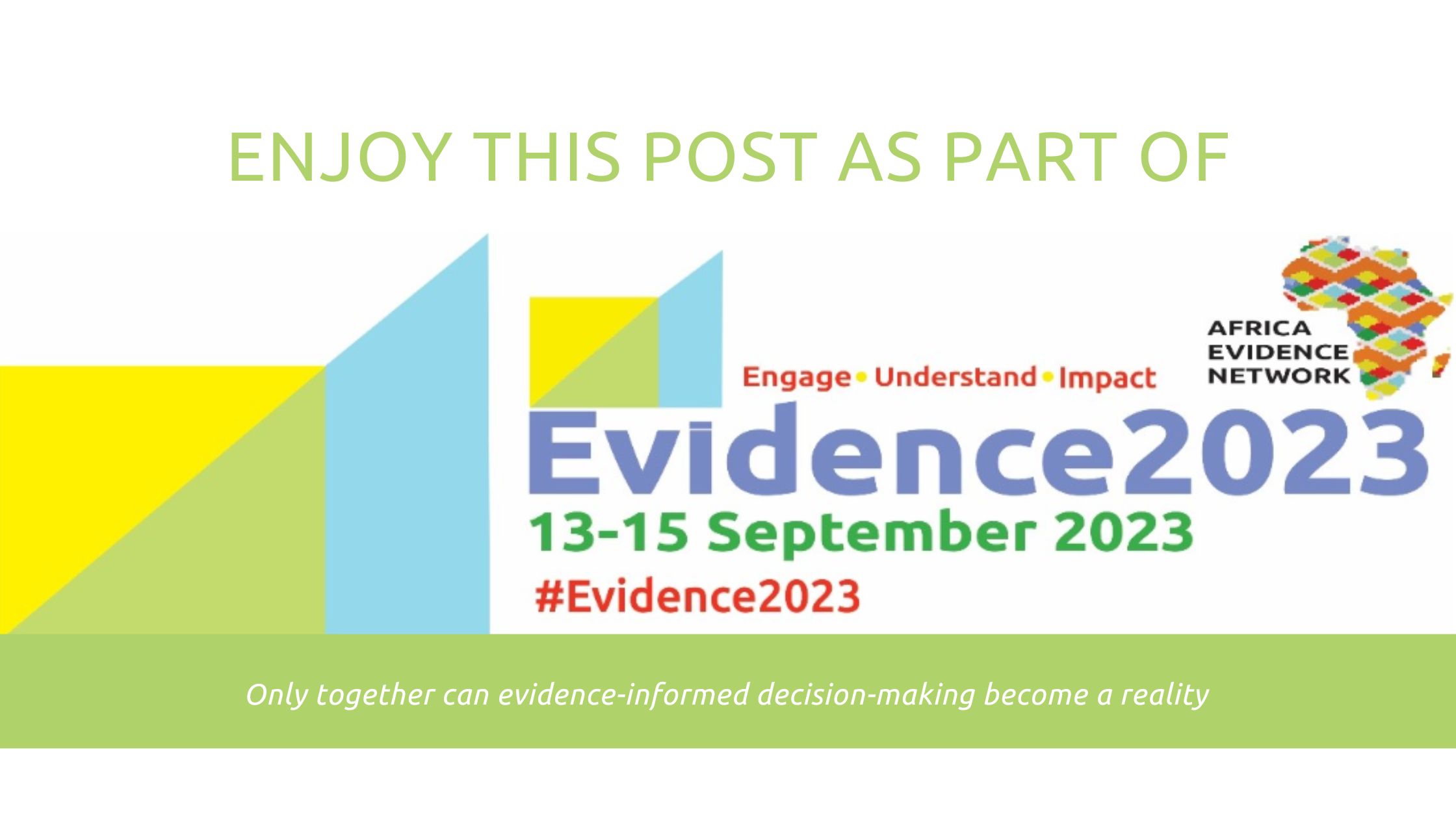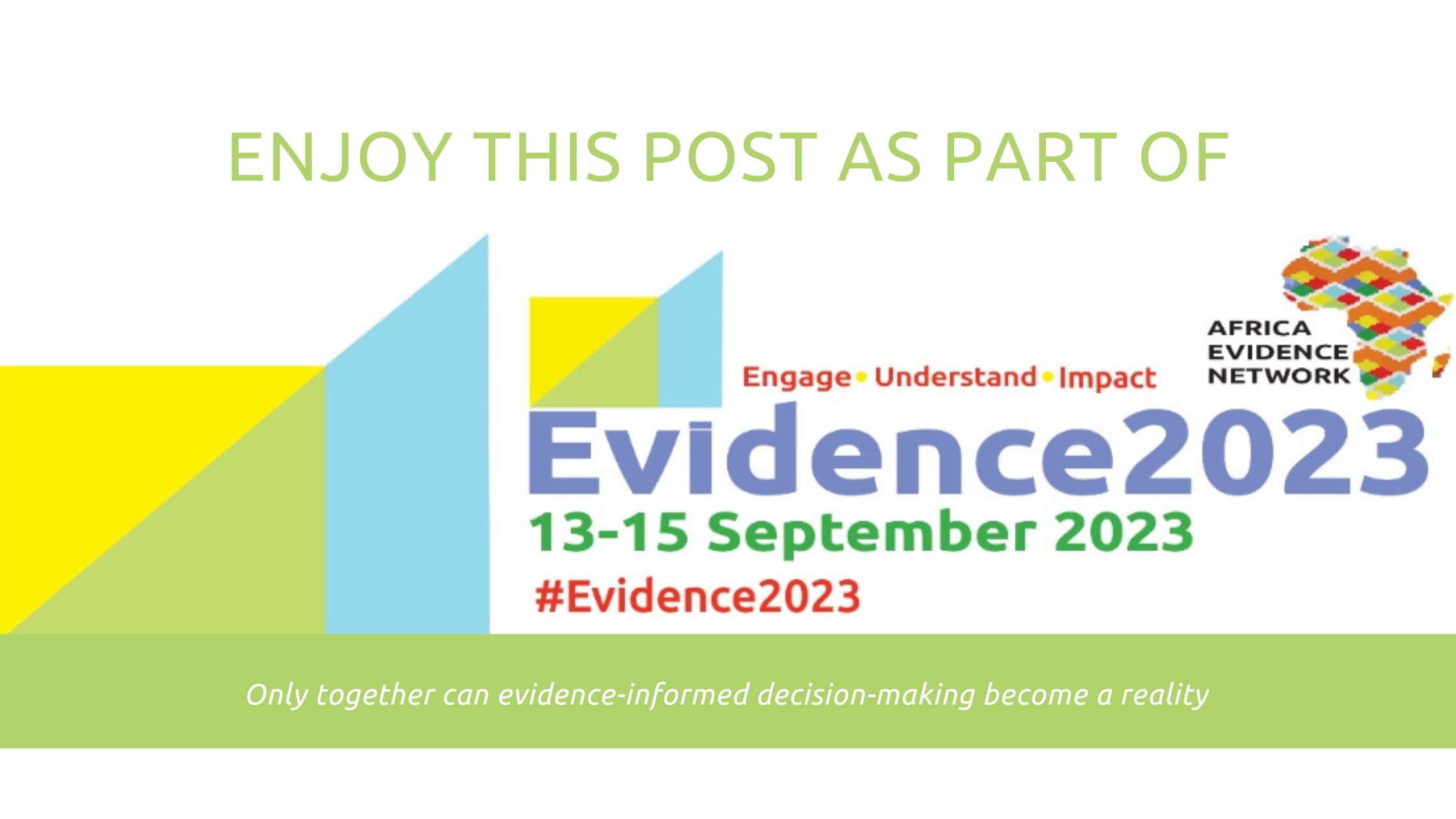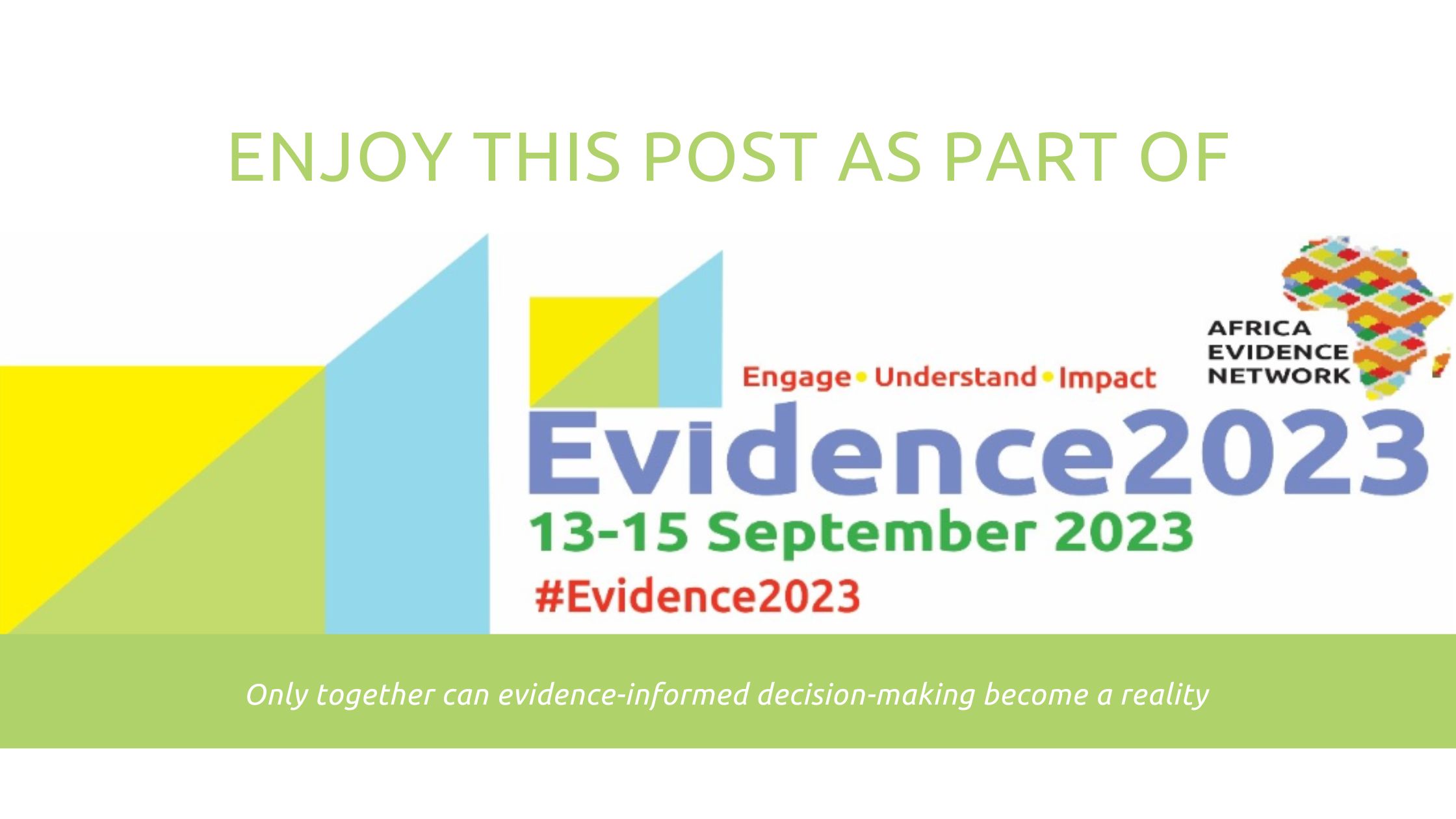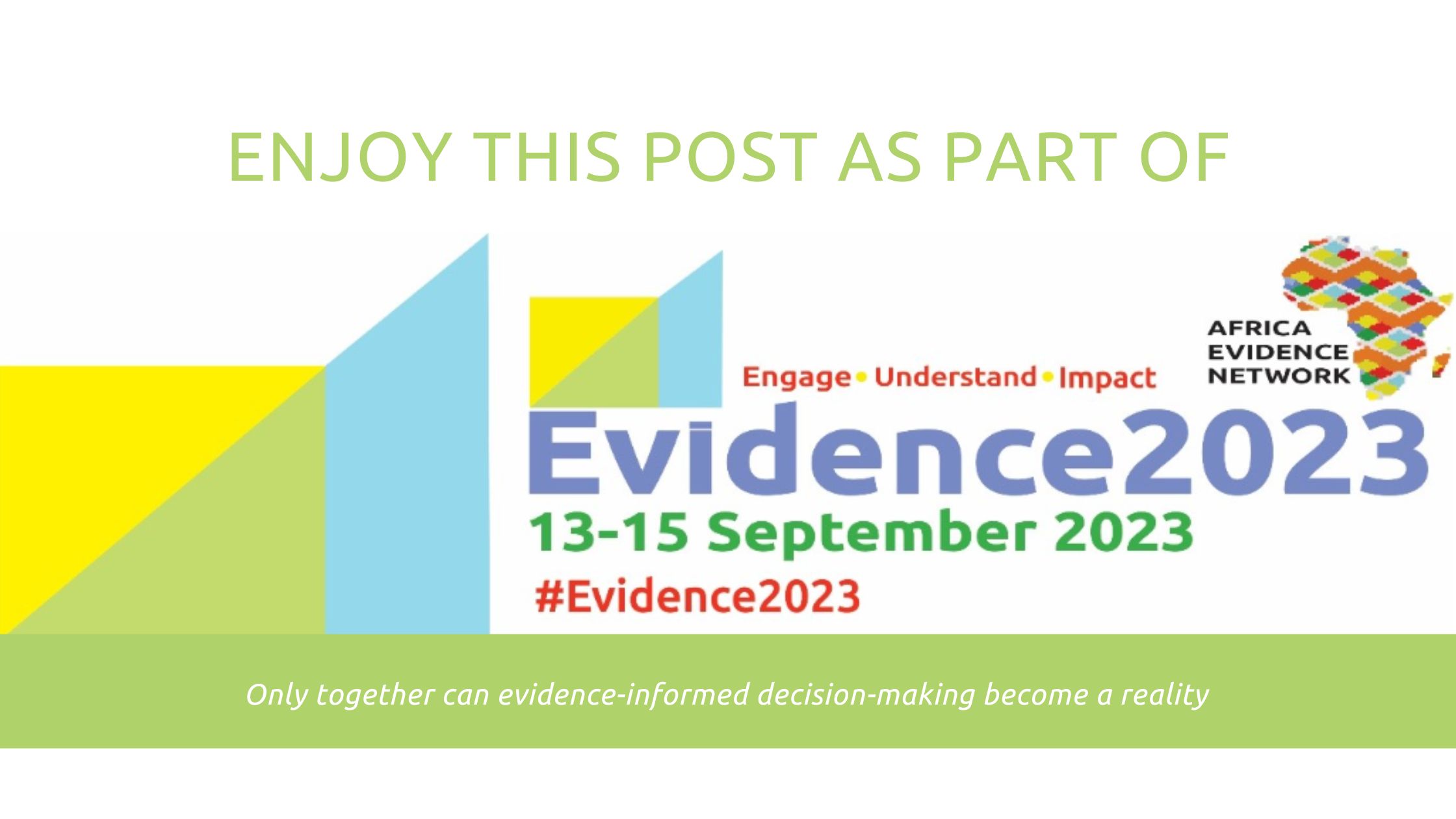
The use of evidence to inform decisions plays an important role in improving policy, programme, and practice. However, the weak capacity for evidence use in policy and programme decisions has attracted attention as one of the barriers to evidence use among researchers and policymakers specifically in Low- Middle- Income Countries (LMIC). Evidence-informed decision-making (EIDM) capacity strengthening remains a laudable, replicable, and sustainable initiative for effective institutionalisation. The Heightening Institutional Capacity for Government Use of Health Research (HIGH-Res) project share experience on the introduction of EIDM into existing university curricula as a strategy to institutionalise evidence-use culture in Malawi and Kenya. HIGH-Res is a partnership between Kenya, Malawi, and Uganda and is implemented by a consortium of institutions, working in partnership with the Ministries of Health (MoH) and led by the African Institute for Development Policy (AFIDEP).
EIDM institutionilisation approach
From 2020-2022, AFIDEP introduced a training module on EIDM targeting top management, postgraduate students, and technical officers through High-level engagement with leaders, a curriculum review, and a Training of Trainers (ToT) approach as a strategy for acquiring EIDM skills and ensuring long-term sustainability among policymakers. We piloted this intervention with four higher learning institutions in Kenya and Malawi where lecturers and educators underwent subsequent workshops followed by months of follow-up mentorship. Following the training, interviews were conducted to get the participants’ overall experiences and the impact of the interventions.
High-level engagement with leaders
Four institutes in Malawi (n=1) and Kenya (n=3) were purposively selected following prior high-level engagements and interest to introduce the EIDM curriculum within the institutes. The institutes included: (1) Kenya School of Government (KSG) -Kenya (2) Kenya Medical Research Institute (KEMRI) -Kenya, The Kamuzu College of Health Sciences (KUHeS) -Malawi, and (4) Jomo Kenyatta University of Agriculture and Technology (JKUAT) -Kenya. The EIDM capacity-building effort builds on AFIDEP’s longstanding work since 2014 to date where it has developed a comprehensive curriculum on EIDM that it has used to train technical staff/officers in the Parliament of Kenya and the Ministry of Health (as well as in other African countries). All four institutions committed to introducing EIDM by embedding EIDM modules into the existing post-graduate curriculum or by integrating the EIDM curriculum as a stand-alone course within the postgraduate programme.
“The EIDM skills will help us improve networks and communicate effectively with stakeholders (students, scientists, policymakers, etc.) in the institute and promote evidence-informed health decision-making by producing high-quality synthesized evidence”. JKUAT lecturer, 2022
Curriculum review and training of trainers
EIDM training curriculum was developed by AFIDEP (and partners) in 2014 and used to train technical-level ministries of health (MoHs) and Parliament to strengthen the technical capacity in accessing, appraising, interpreting, synthesizing, and utilizing research evidence in decision-making. The EIDM curriculum is comprised of five sub-modules summarized in the table below (Table 1).
Table 1: Curriculum module and description
|
Module
|
Description
|
|
Module 1: Foundation of Policy-Making
|
Provides an understanding of the policy-making process, including the factors and actors influencing decisions; the role of evidence in the policy-making process; the barriers and facilitators of evidence use; and guidance in defining a clear policy question or issue.
|
|
Module 2: Accessing Evidence
|
Develops knowledge and skills for conducting systematic searches for evidence and assessing evidence sources, as well as establishing and maintaining meaningful links with researchers.
|
|
Module 3: Appraising Evidence
|
Builds on knowledge of how to assess the quality and rigor of research and other evidence before deciding to use it. It provides a basic review of various research designs and methodologies and the kinds of evidence they produce; critical appraisal of the strength of research articles and bodies of evidence; measures of strength.
|
|
Module 4: Synthesizing Evidence
|
Develops knowledge and skills in determining the usability of evidence; synthesizing a wide range of evidence for decision-making; and developing effective policy or evidence briefs from the synthesized evidence.
|
|
Module 5: Applying Evidence
|
Builds understanding of the indicators of evidence use and developing and implementing effective communication strategies to share evidence for decision-making.
|
The curriculum review process was a three-day event that led to the customisation of the curriculum to include additional modules like the public policy module and monitoring and evaluation module (Table 2). This was noted with KSG specifically where they added two modules to the training module to suit their audience.
Table 2: Additional modules following the curriculum revision process.
|
Module
|
Description
|
|
Module: Foundation of Public Policy
|
Provides an understanding of the public policy concept, and policy-making process, including the factors and actors influencing decisions; the actors in the policy-making process, and defining a policy question or issue.
|
|
Module: Monitoring and Evaluation
|
Describes the monitoring and evaluation (M&E) processes and tools in policy engagement and evidence uptake efforts. It elucidates what to measure and how to measure it when it comes to policy engagement and evidence-uptake efforts.
|
The Training of Trainers five-day workshop introduced the EIDM training curriculum with a focus on training lecturers in delivering the course. This was to equip the institution-selected lecturers with the skills needed to conduct the EIDM training course.
“The engagement introduced us to the systematic processes of developing a curriculum for researchers and the best methods to deliver effective training and/or communication for the targeted audience. KEMRI lecturer, 2022
The ToT heightens the capacity and learning culture within the trained lecturers at the institute” KSG lecturer, 2022.
Mentorship
The EIDM training was followed by a one-six-month remote mentorship to support learners to apply their knowledge and skills by producing a policy brief. The mentorship phase was optional and with examples from the KEMRI team, the team underwent the ToT training followed by a 6 month mentorship process to guide the EIDM curriculum introduction. In Dec 2022 during the mentorship phase, the KEMRI Graduate School offered EIDM training among researchers at KEMRI with the development of policy briefs as the end product.
“The mentorship received as part of the training made it easier for the various concepts to easily sink in and was a key learning resource for me” KEMRI lecturer, 2022.
Successful introduction of the EIDM course.
During the study period, EIDM was introduced within the institutes as a short course or by embedding selected EIDM modules into the existing post-graduate curriculum. For example, KEMRI Graduate School managed to introduce the EIDM Curriculum as a short course while KUHeS and JKUAT embedded select EIDM curriculum modules onto the various post-graduate curriculum. Within KUHeS and JKUAT, since 2021, the adapted modules were trained to BSc in Clinical Services, MSc in Public Health, Ph.D. & MSc students, and MSc in Medical Laboratory Sciences students.
In Dec 2021 within KEMRI, the school introduced the curriculum to researchers in KEMRI as a way to pilot the concept and the EIDM curriculum. During the five-day training, the trained lecturers conducted the training with support from AFIDEP. The learners were supported by the KEMRI-trained lecturers to identify one evidence product that they worked on and produced following the workshop (e.g., policy brief, position paper, cabinet paper, etc.). The learners were encouraged to focus their evidence products based on evidence needs in their department. Overall, there was a clear interest and satisfaction from the trainees in learning the concepts and development of knowledge translation tools such as the policy and evidence briefs.
“The most interesting part was learning the concepts of developing policy briefs for policymakers that would enhance uptake of research evidence to inform policy and practice”. KUHES lecturer, 2022.
In 2023, the KEMRI Graduate School went ahead to train the external public on the EIDM curriculum. The training had a wide range of applicants with positive reception among the public to signify the demand for the curriculum.
KSG experienced a delay in the curriculum’s introduction and roll-out due to COVID-19 restrictions that halted KSG annual conference where the EIDM sensitization and course introduction to stakeholders was scheduled. After the planned conference period the team experienced a leadership change that affected the roll-out plan.
“The planned EIDM sensitization and rollout during the annual conference did not take place as anticipated due to the COVID-19 pandemic. We therefore need to seek alternative funding mechanisms to support this noble course” KSG lecturer, 2022.
“EIDM course roll-out delay was occasioned by changes in the school’s leadership team that had earlier received the EIDM sensitisation and training.” JKUAT lecturer, 2022.
Overall, a key limitation to a stand-alone EIDM course was resource and time constraints where the institutional curriculum review process to include EIDM as an independent course follows a long bureaucratic process within the institute.
“Standalone EIDM courses curriculum review and revision are a resource-intensive exercise that takes a long time, and the project did not have the resources to support this process.” AFIDEP staff
Conclusions and recommendations
The introduction of EIDM into universities is a long-term process that will promote both the decision at individual and institutional the use of EIDM to inform levels, we are optimistic that this critical mass of knowledge will improve how evidence is understood and importantly, how it is used. The curriculum roll-out implementation process needs to be deliberated and documented to enhance cross-learning among the institutes.
Funding: The study is funded under Heightening Institutional Capacity for Government Use of Health Research (HIGH-Res) Project. The HIGH-Res project received financial support from the Alliance for Health Policy and Systems Research (the Alliance) at the World Health Organisation, and Wellcome Trust. The funders had no role in study design, data collection, and analysis, decision to publish, or preparation of the manuscript.
Acknowledgements: The author(s) is solely responsible for the content of this article, including all errors or omissions; acknowledgements do not imply endorsement of the content. The author is grateful to Siziwe Ngcwabe, the content committee and the Africa Evidence Network team for their guidance in the preparation and finalisation of this article as well as their editorial support.
Disclaimer: The views expressed in published articles, as well as any errors or omissions, are the sole responsibility of the author/s and do not represent the views of the Africa Evidence Network, its secretariat, advisory or reference groups, or its funders; nor does it imply endorsement by the afore-mentioned parties. We hope you enjoyed this blog teaser. Be sure to watch our newsletter for when the full blog post is published after Evidence 2023.
